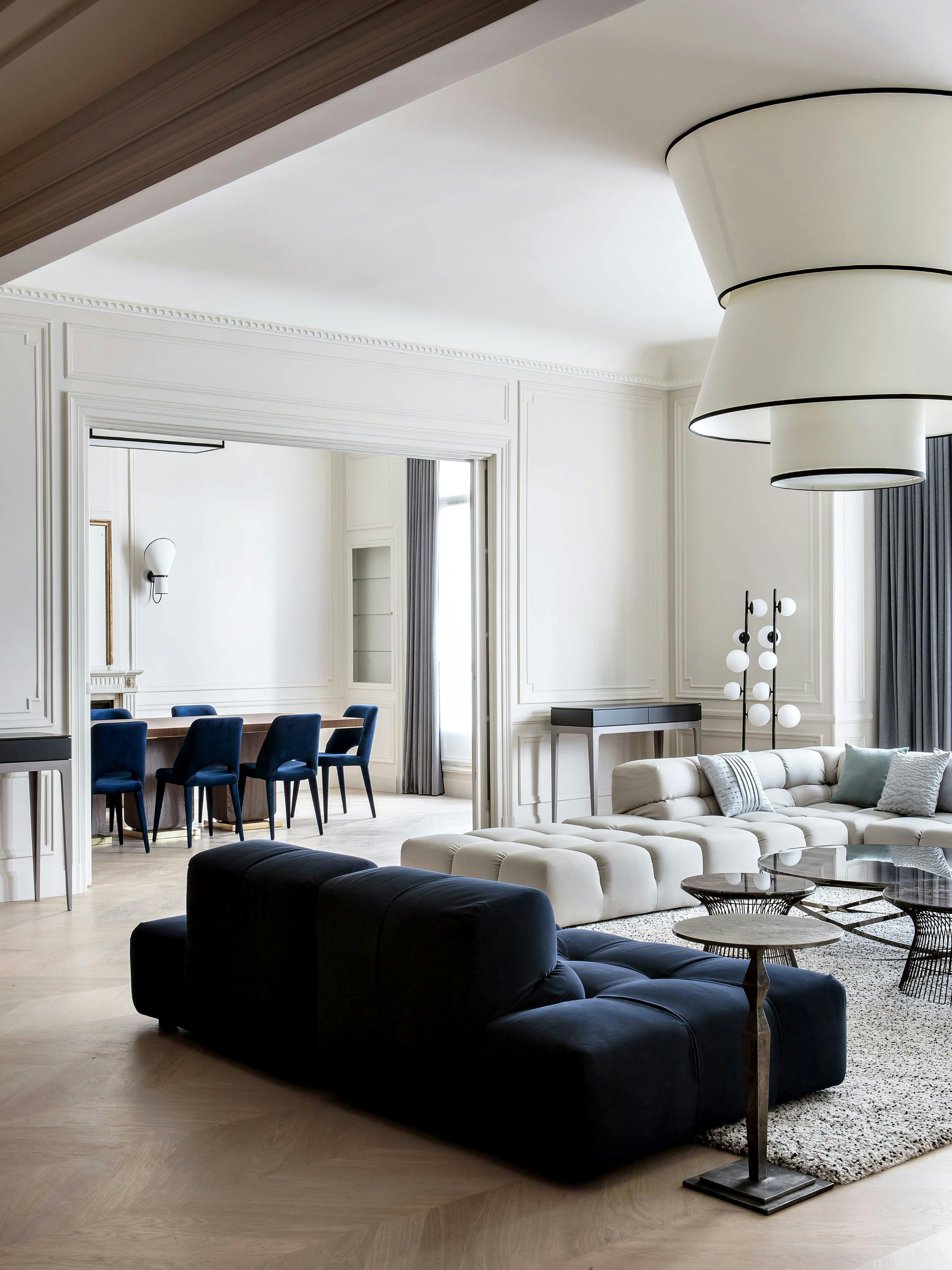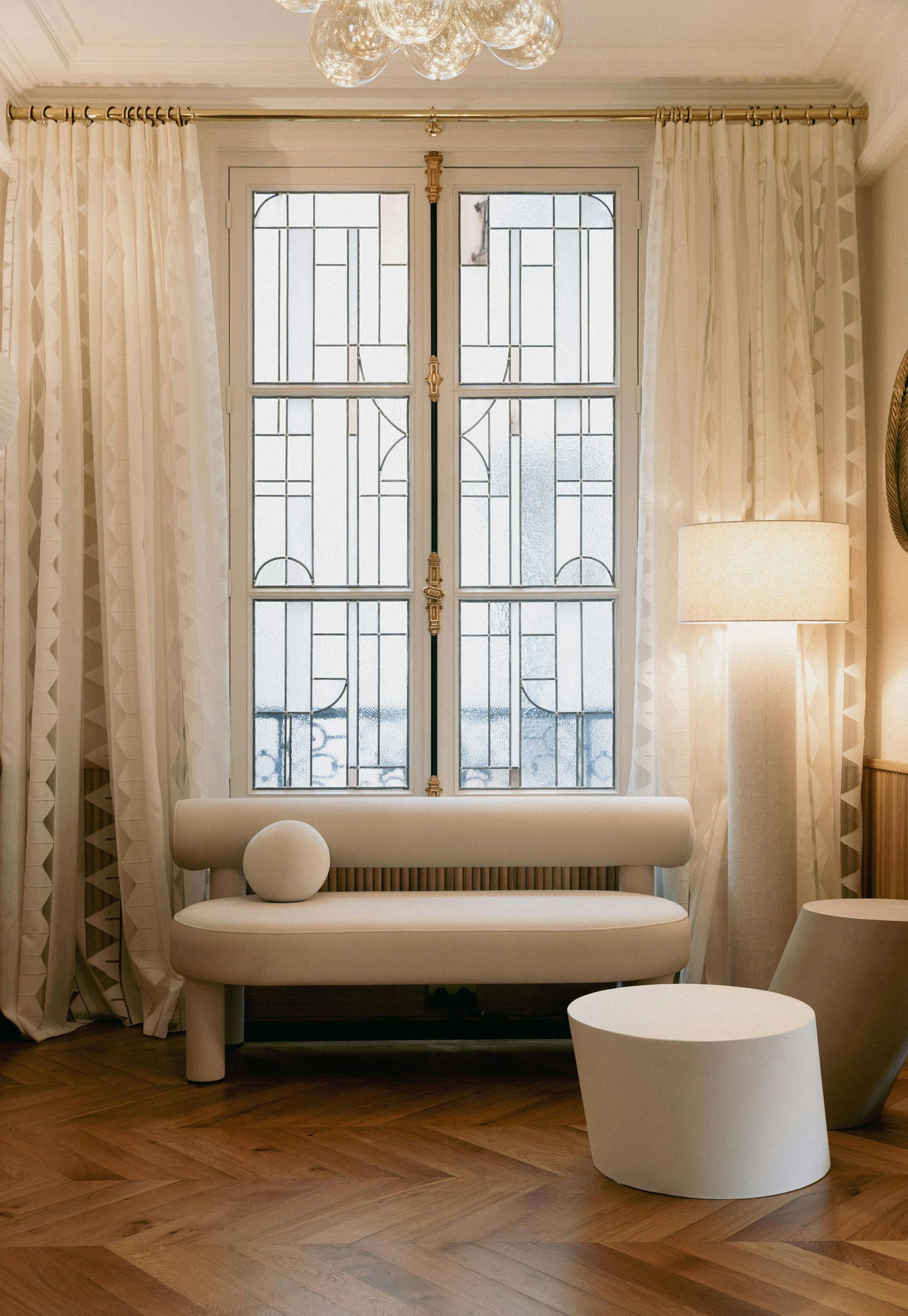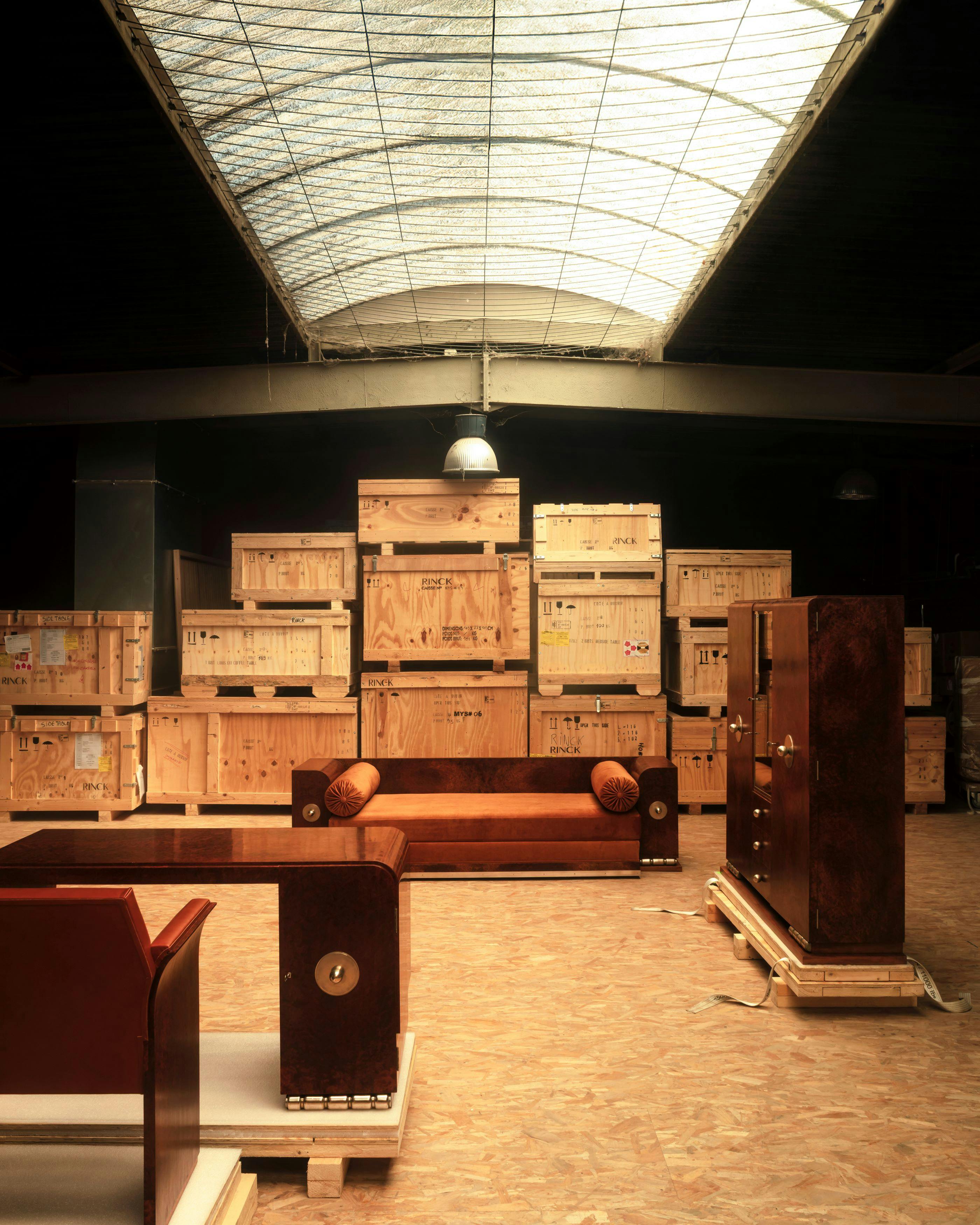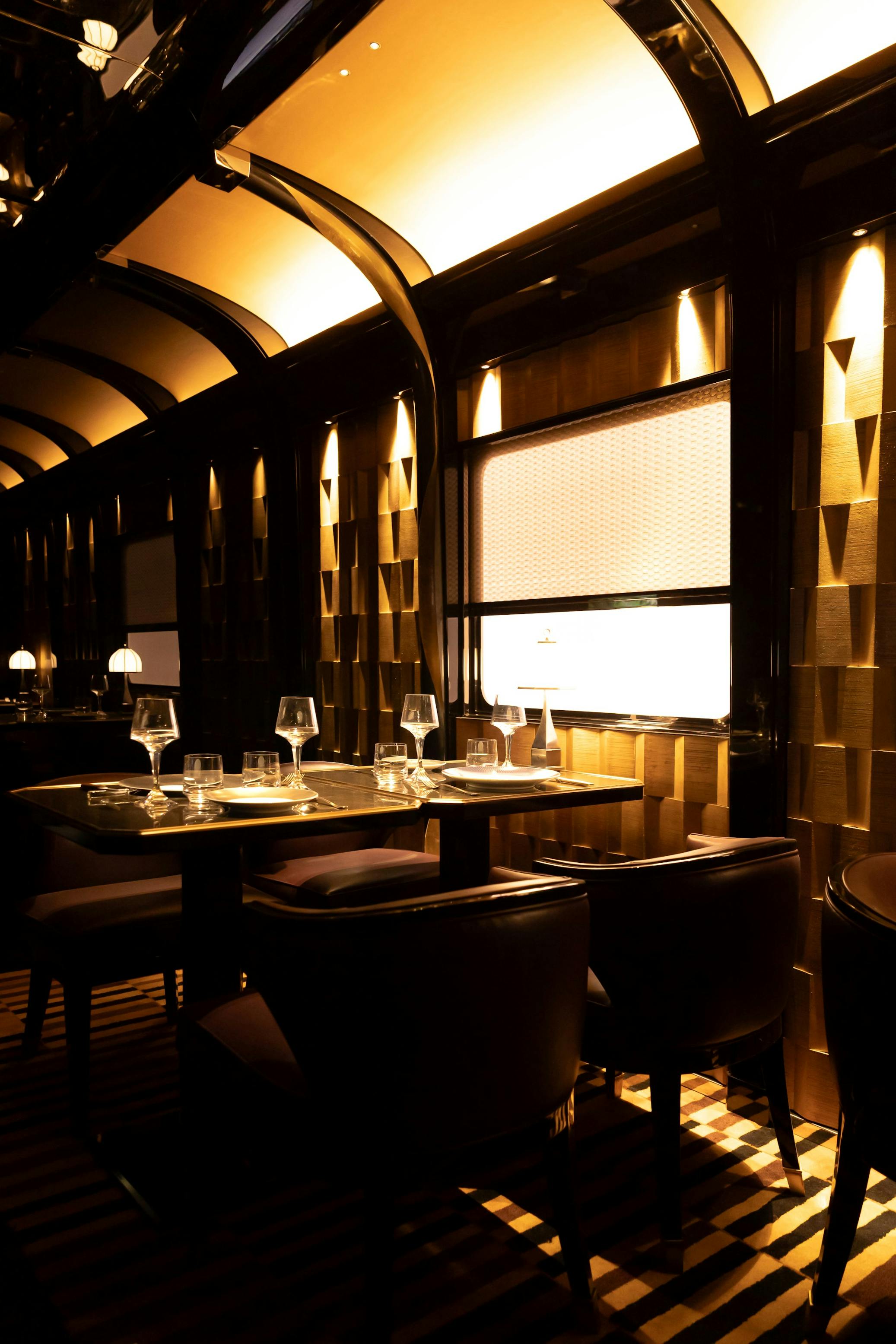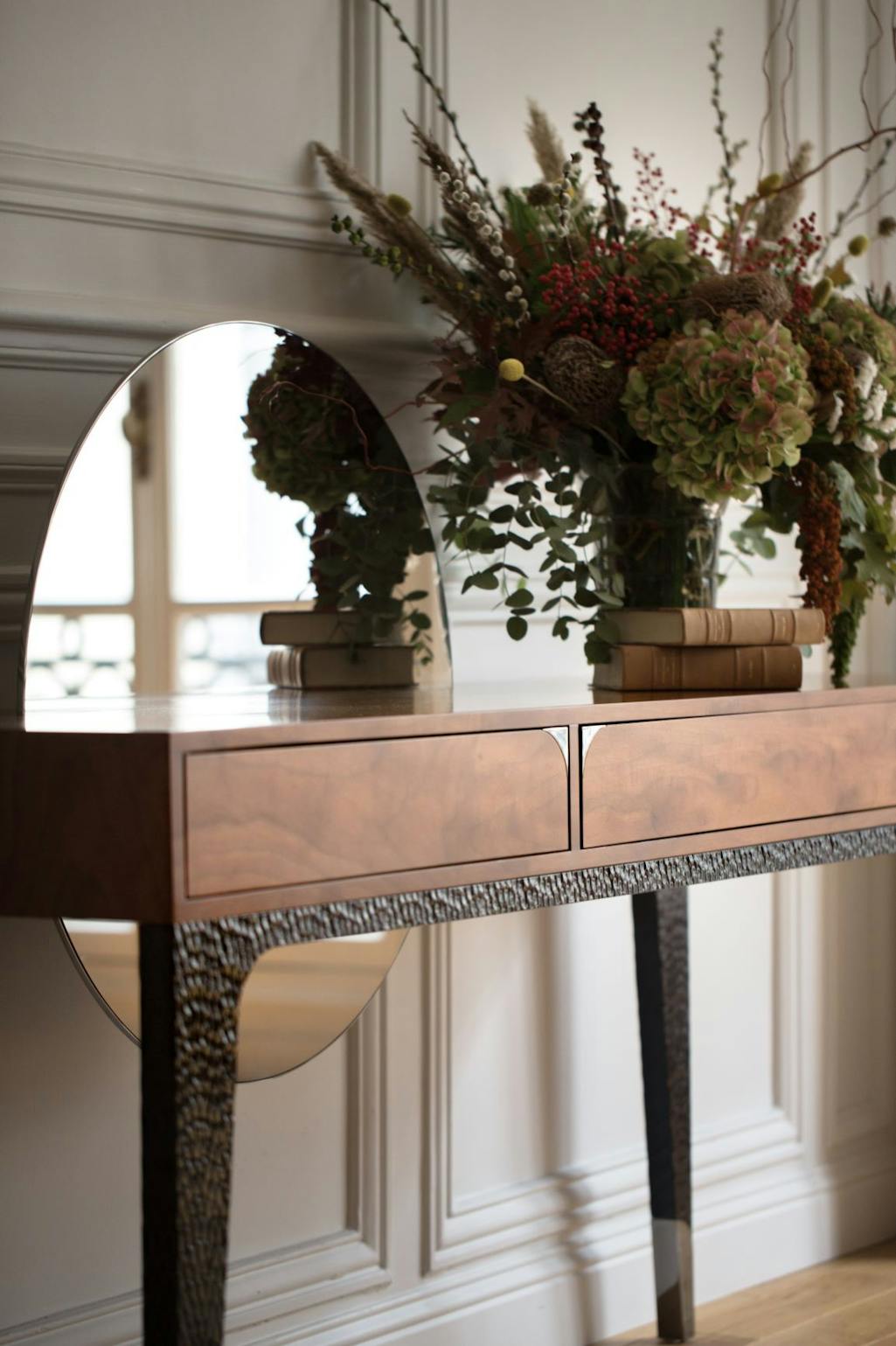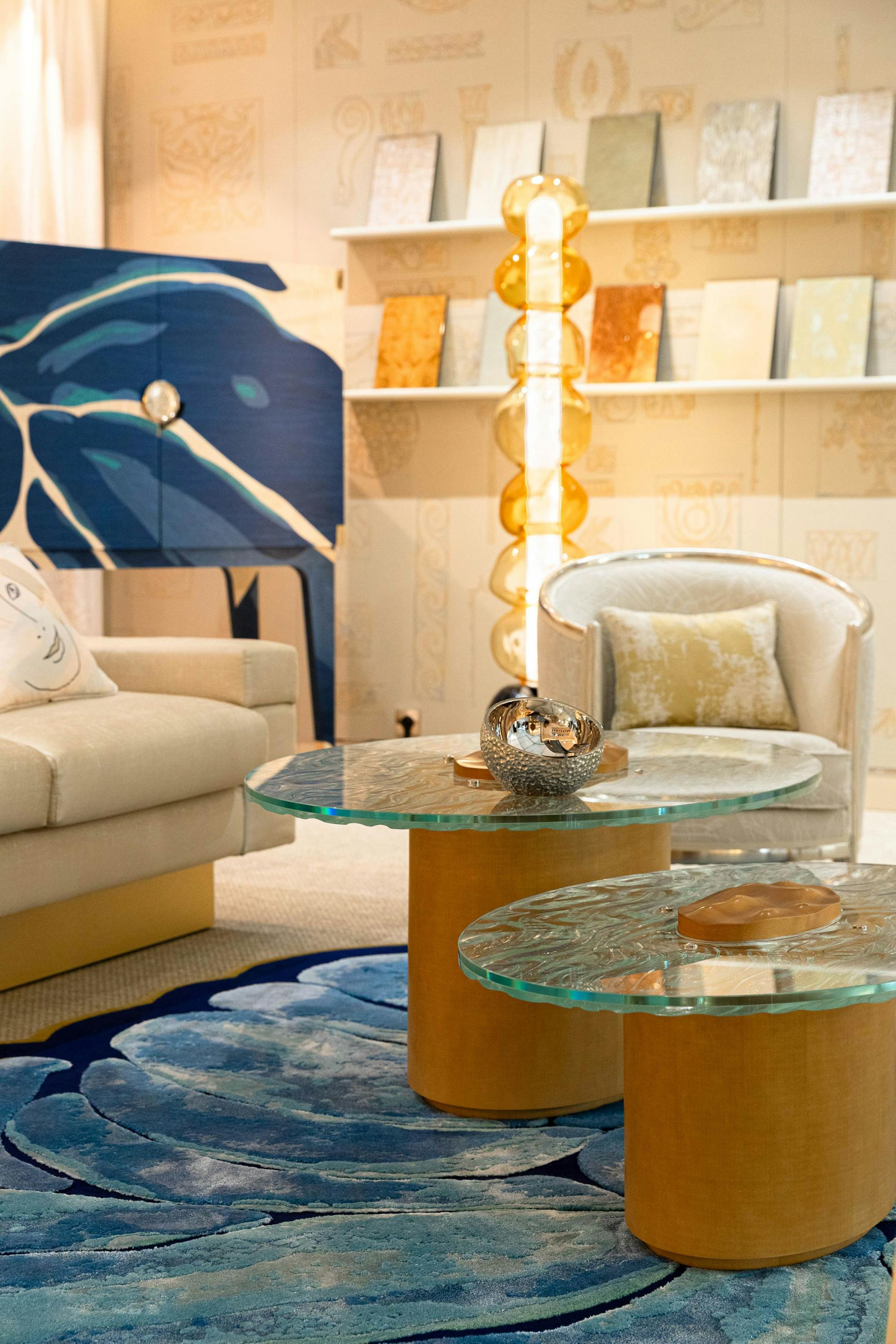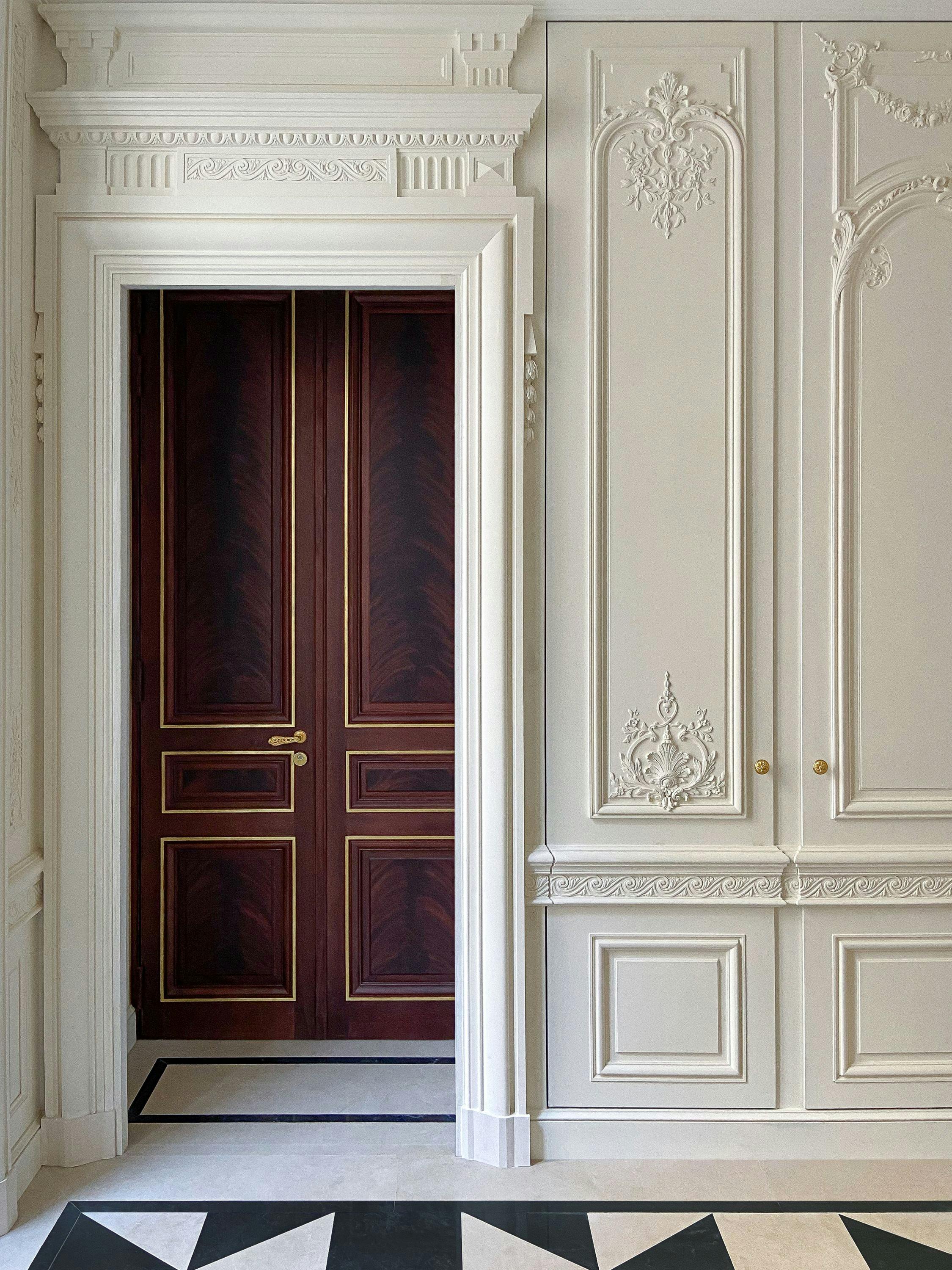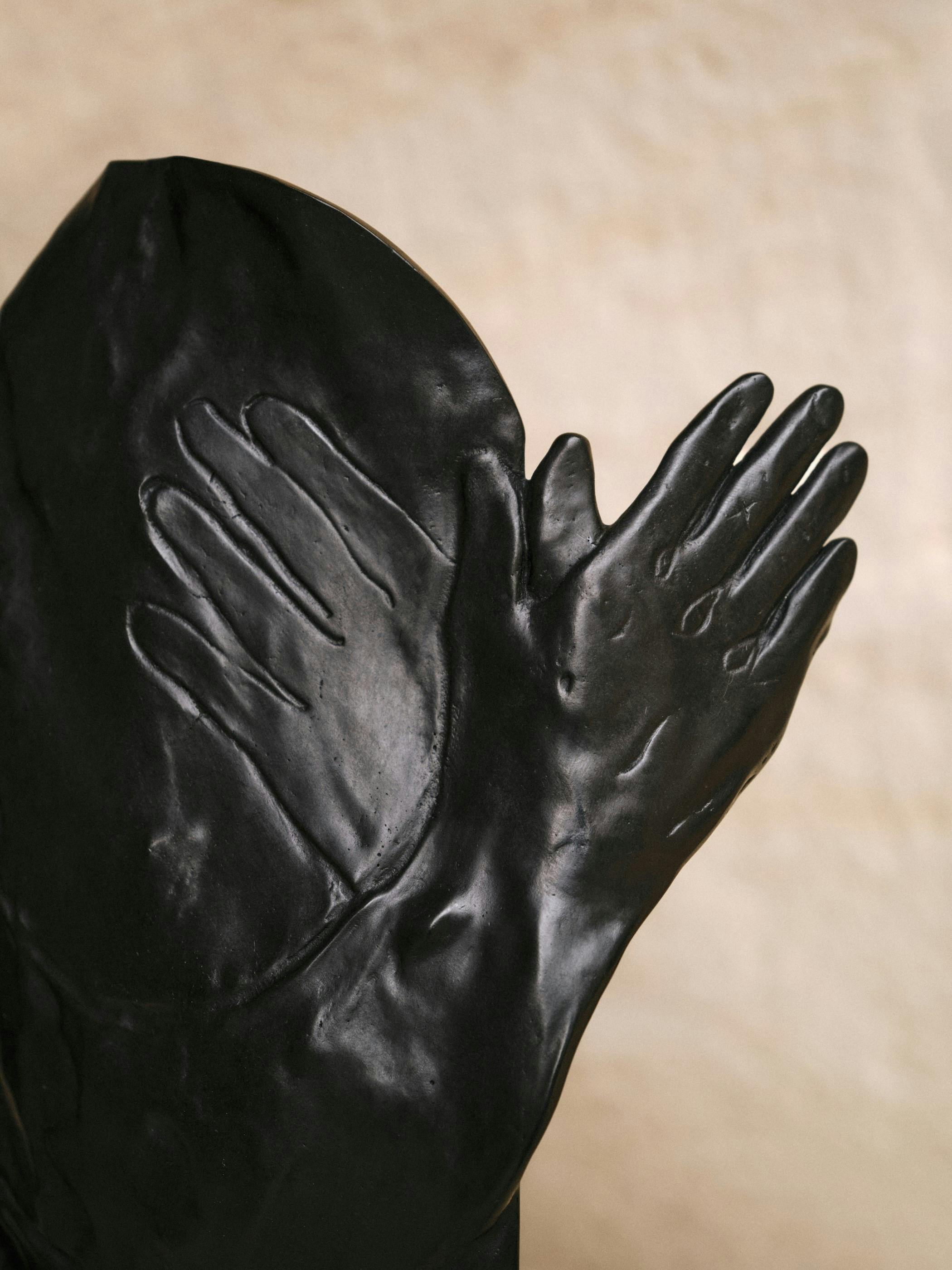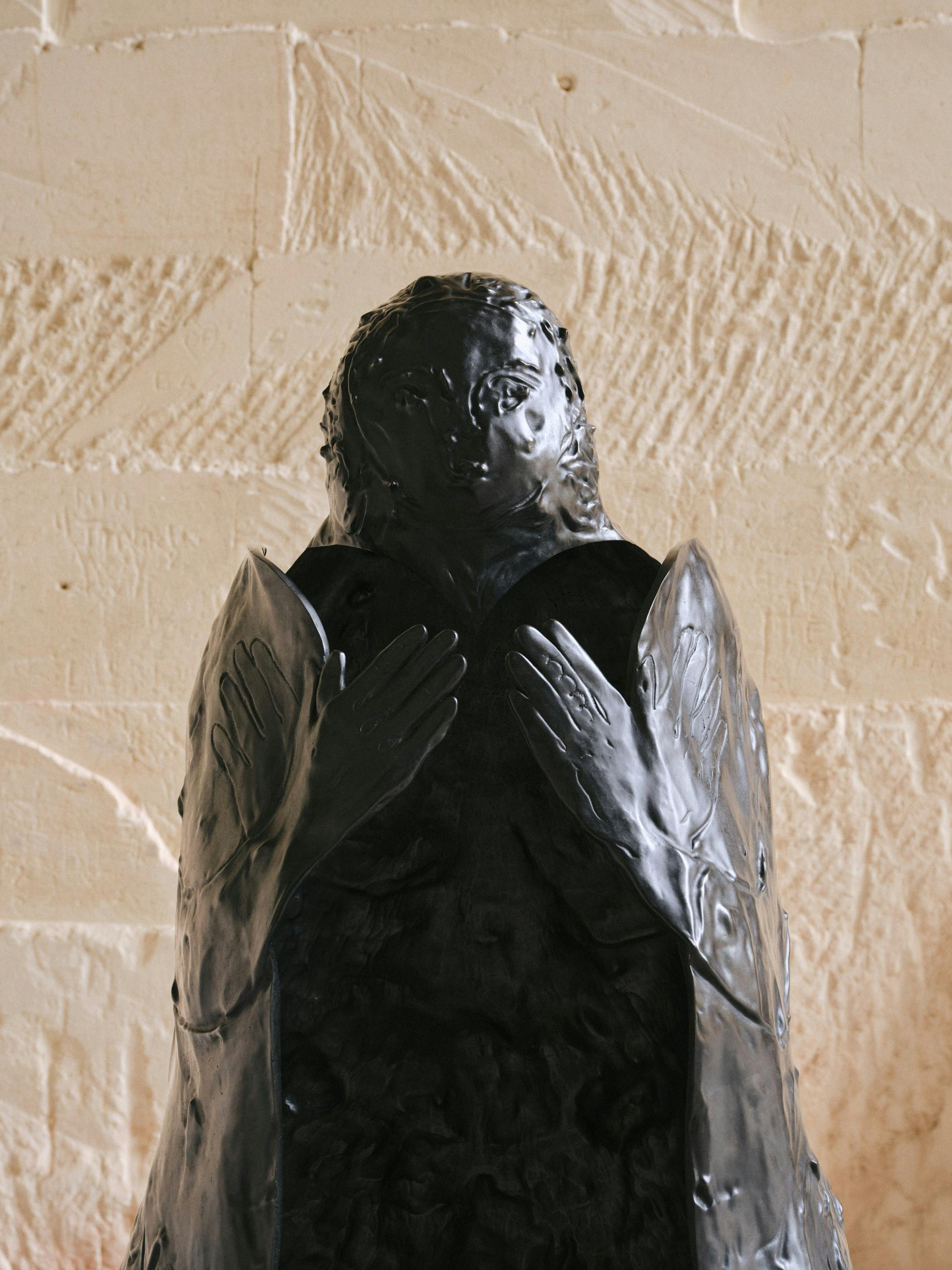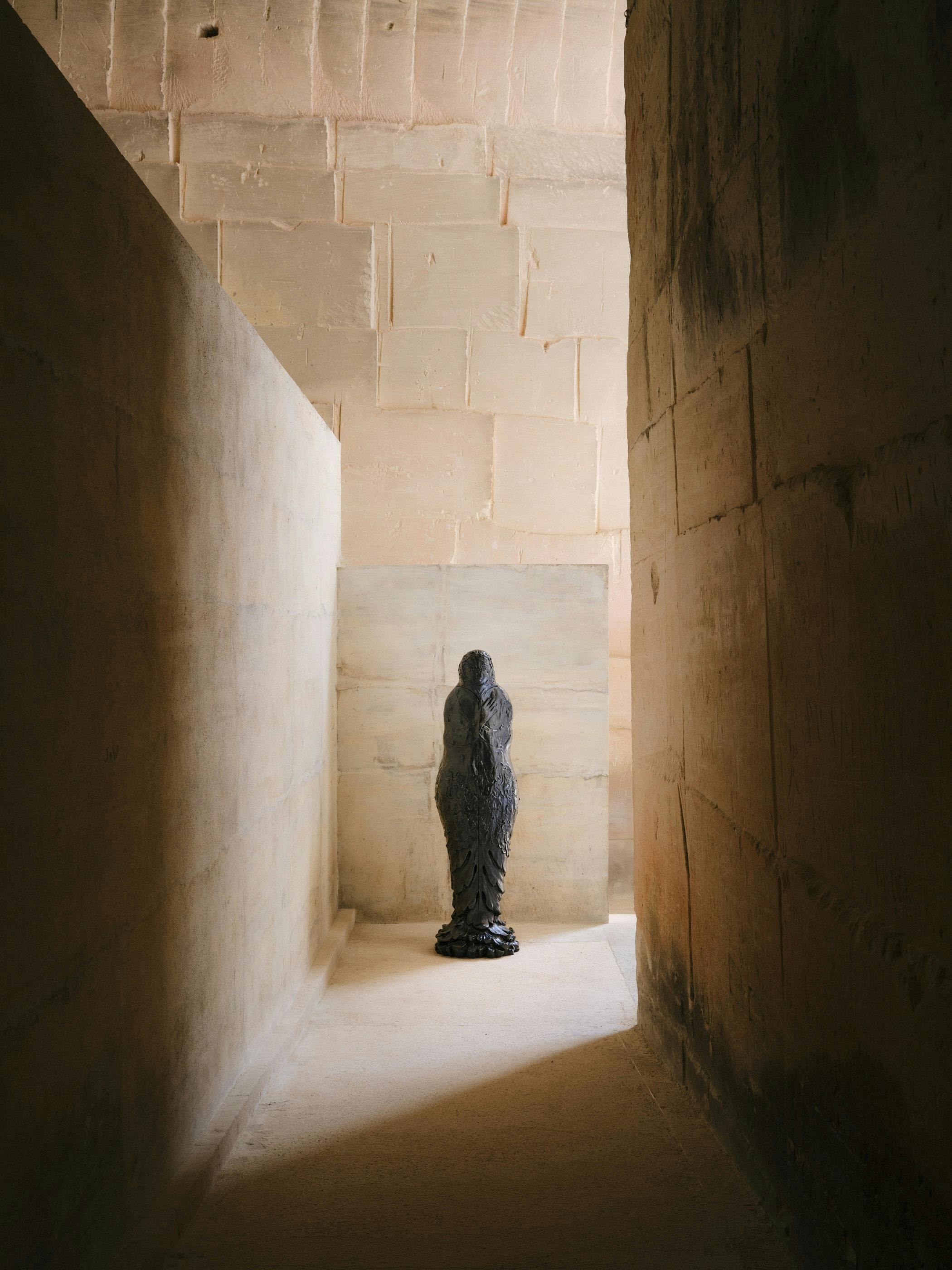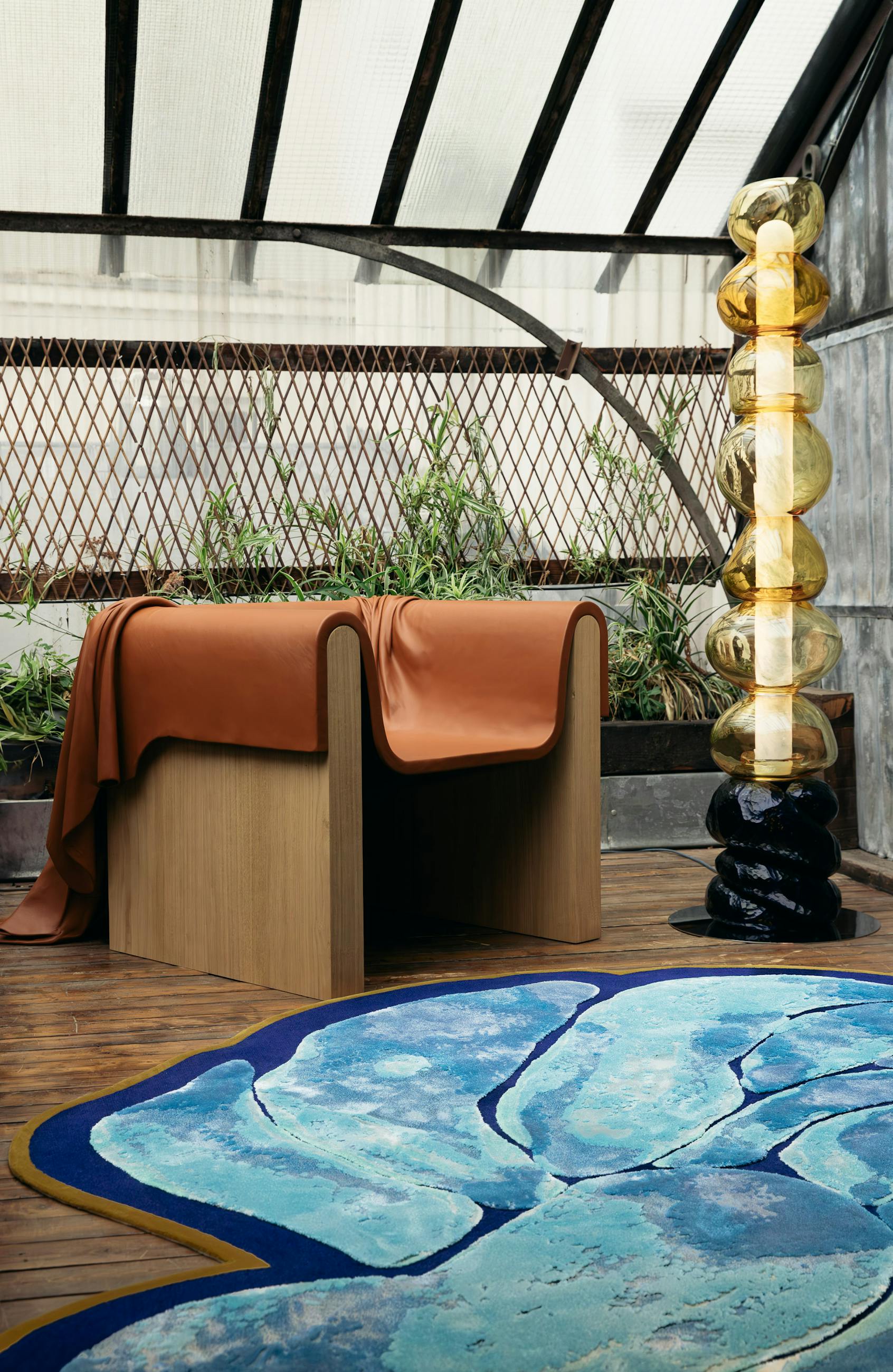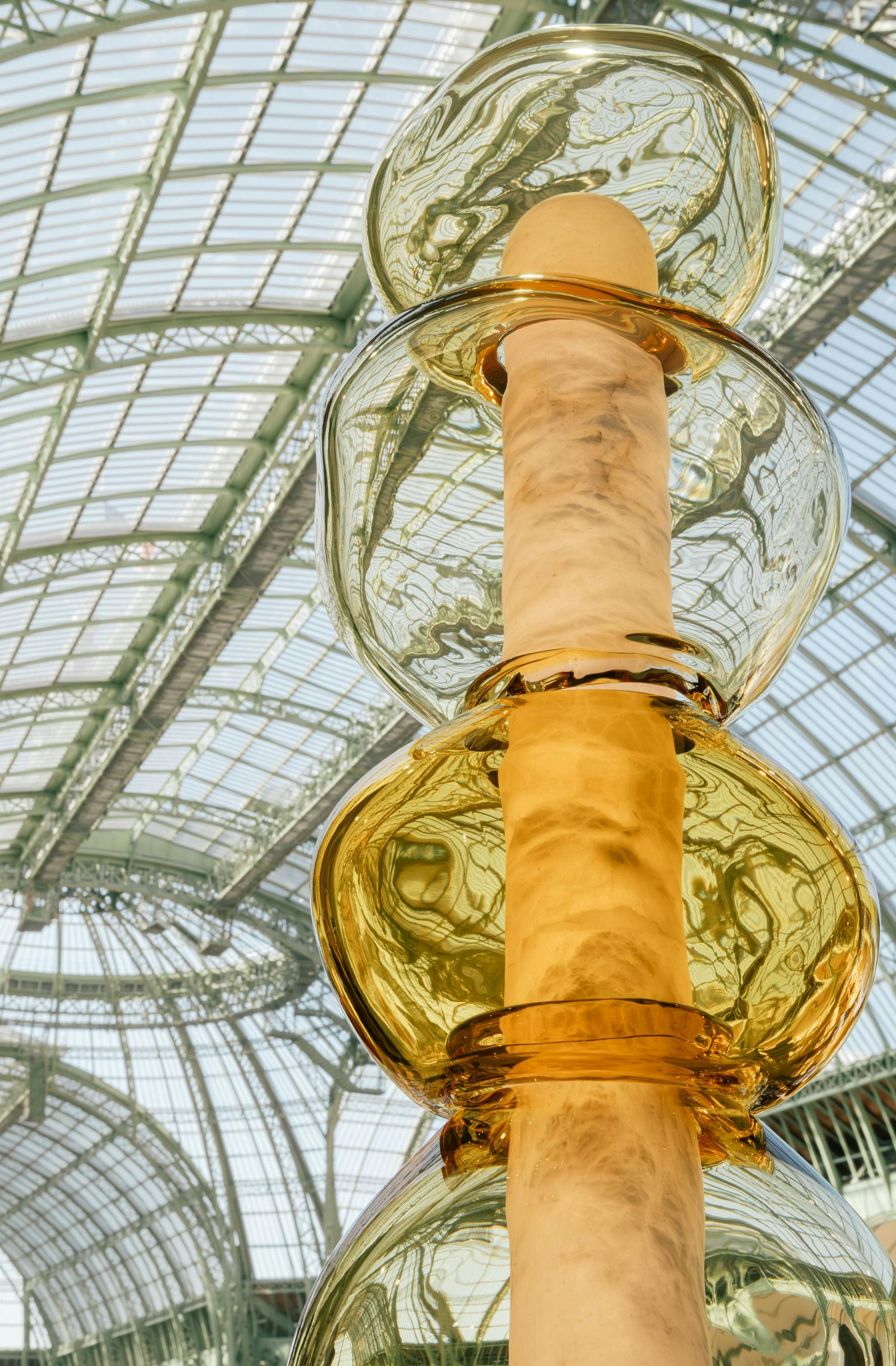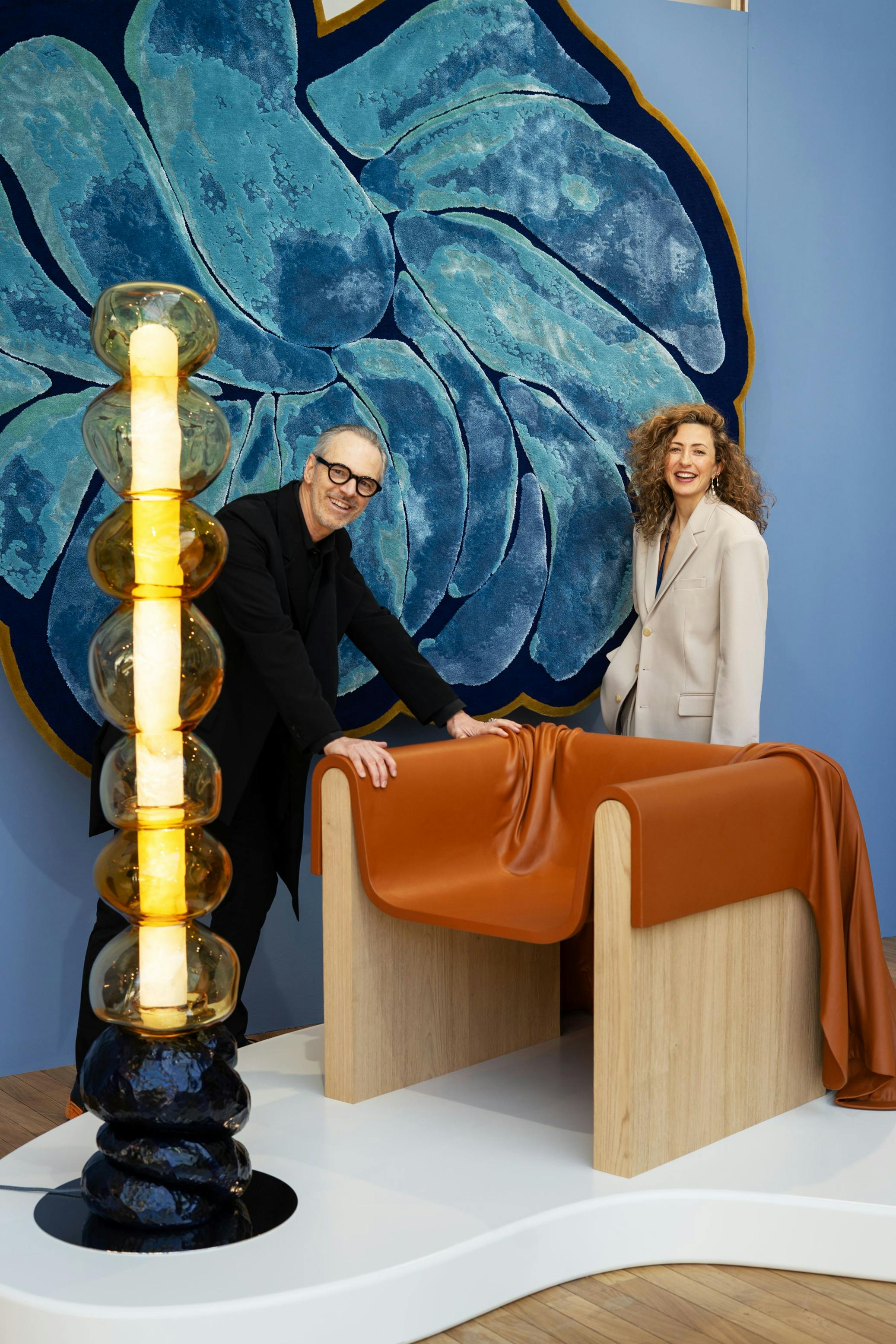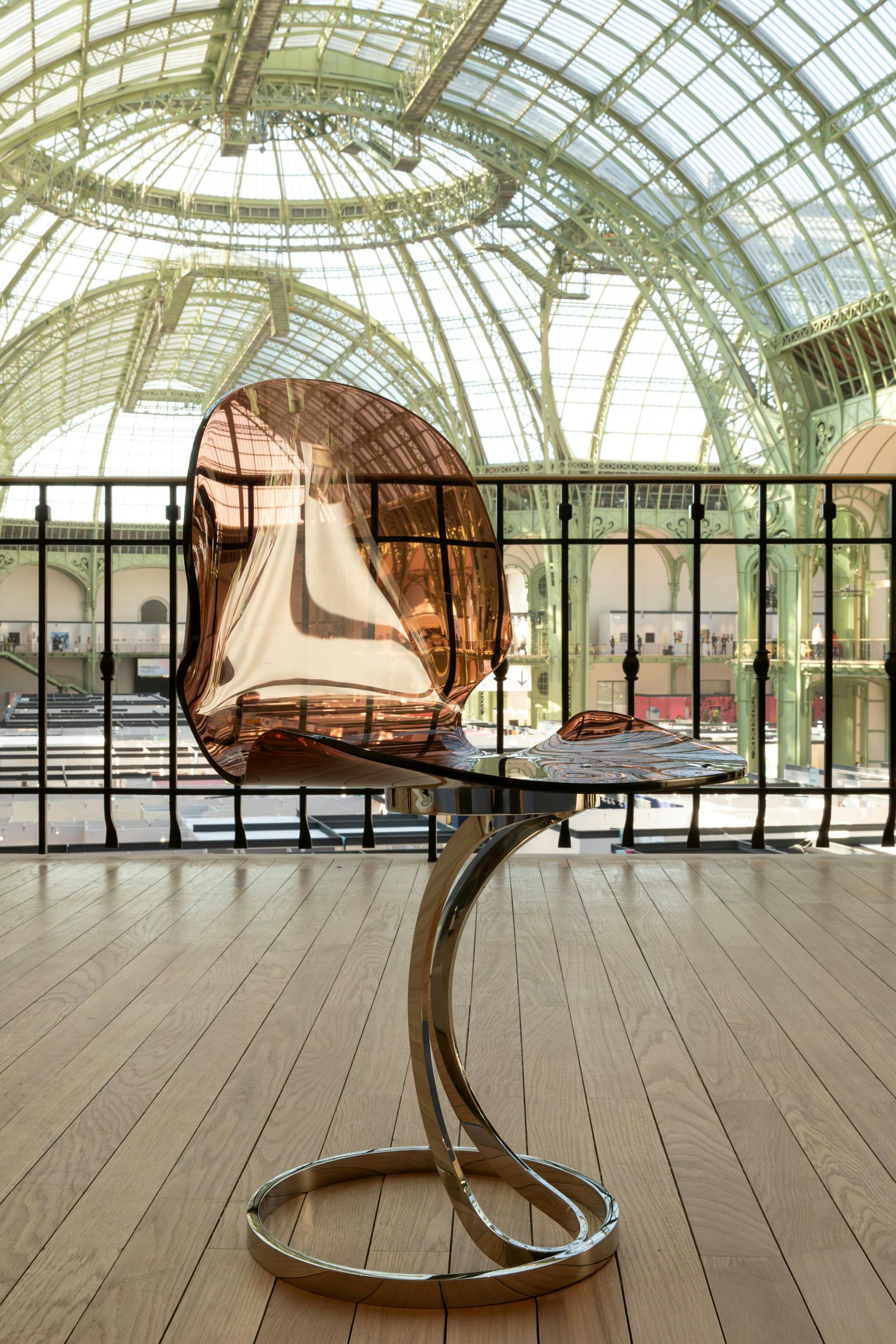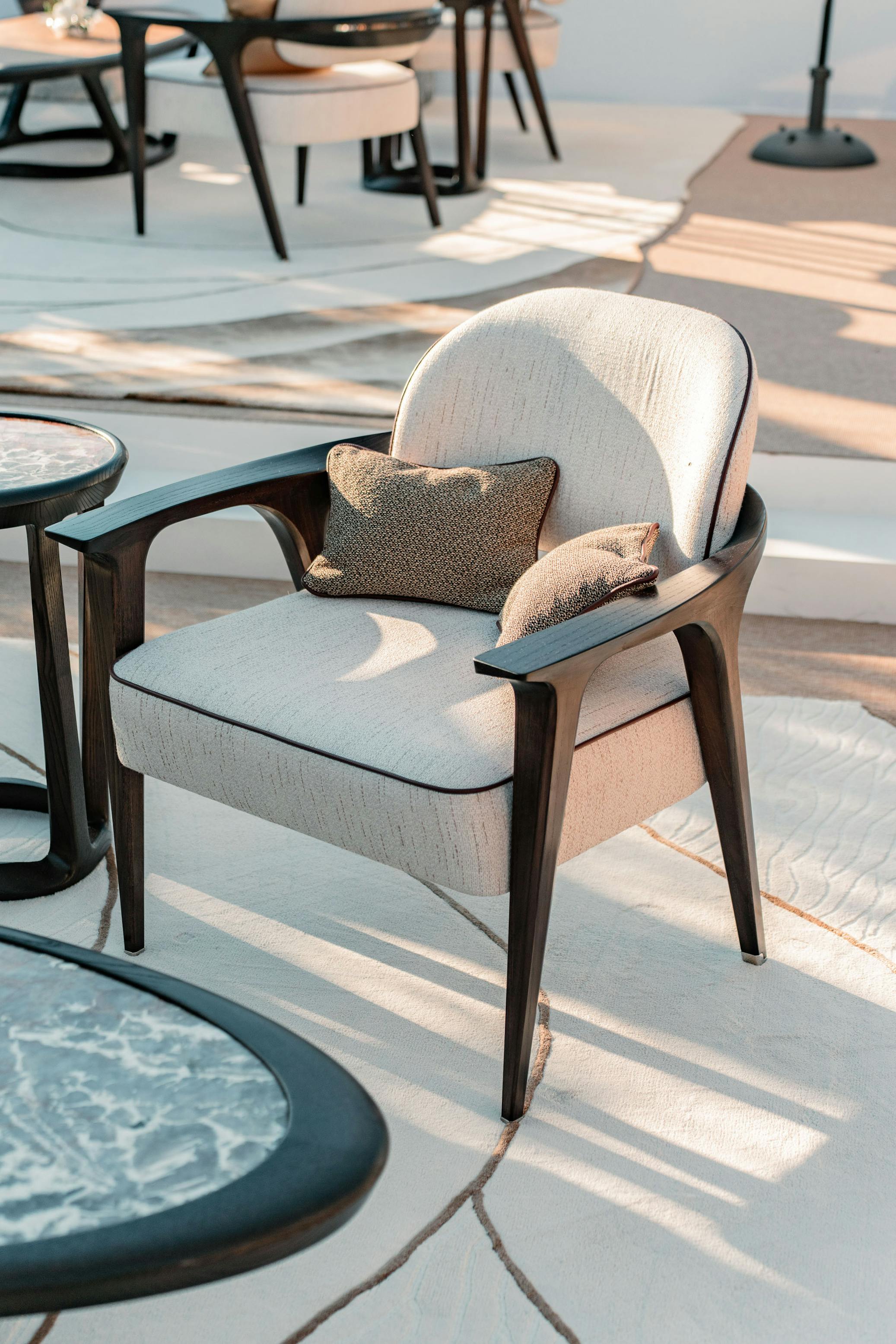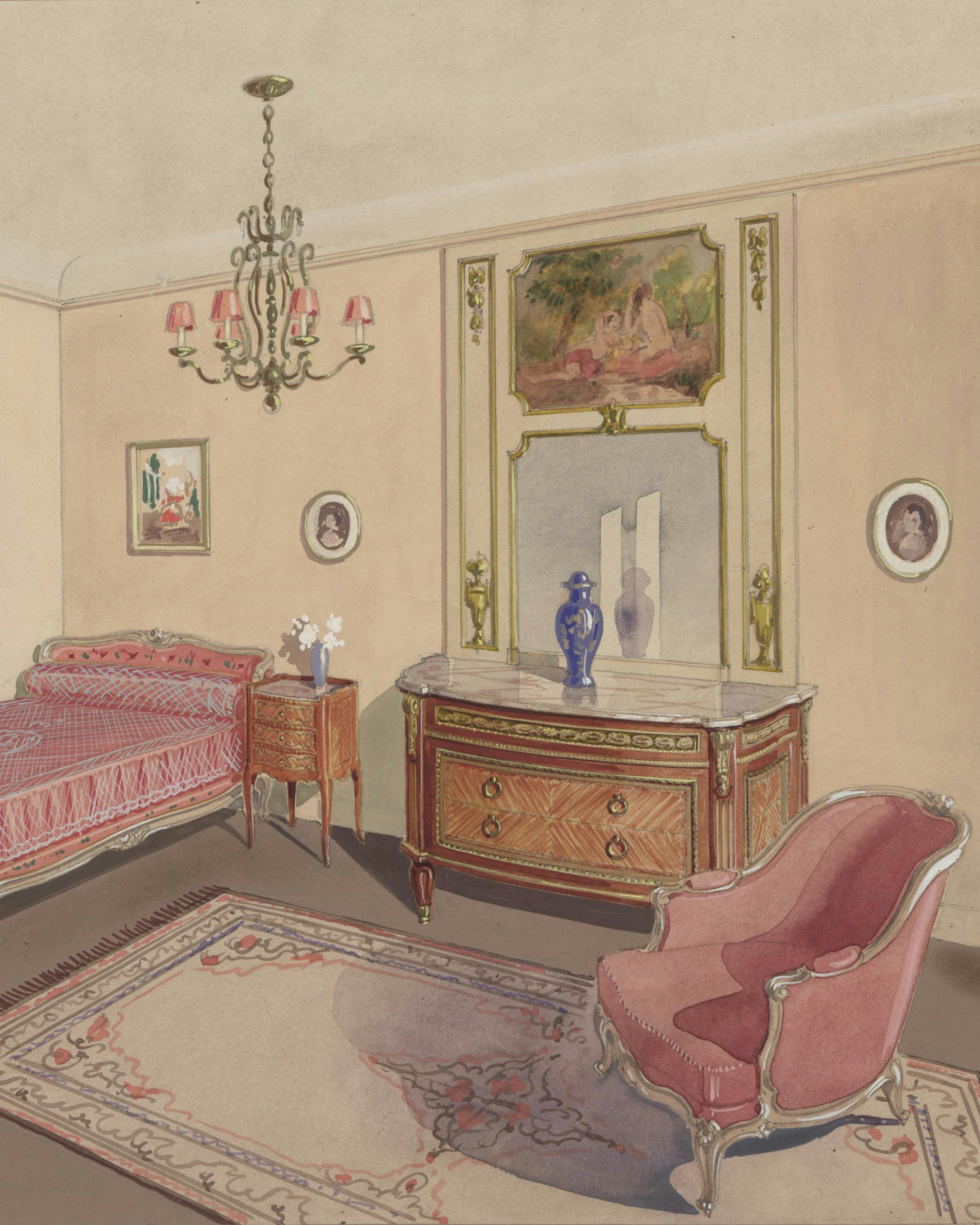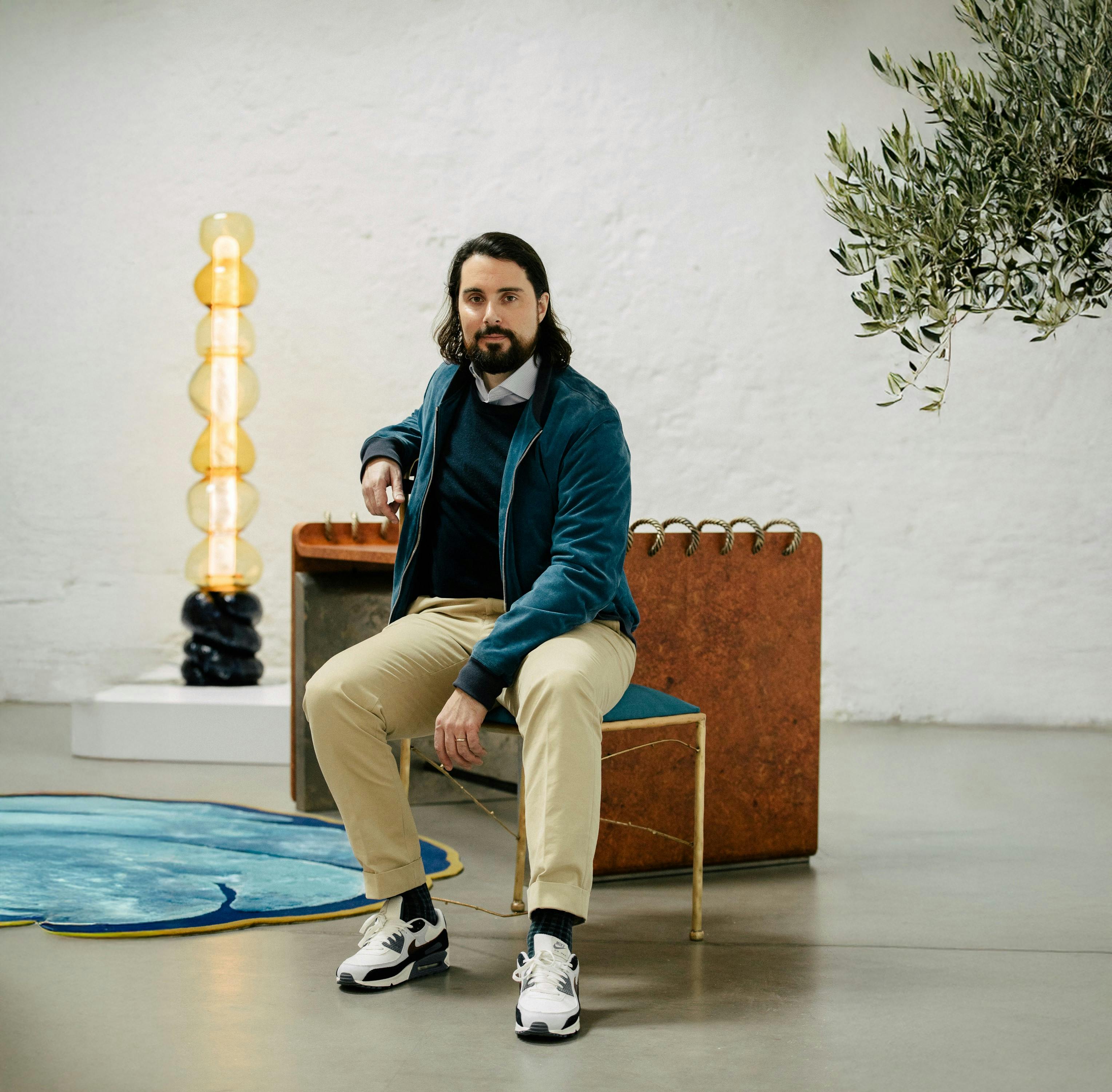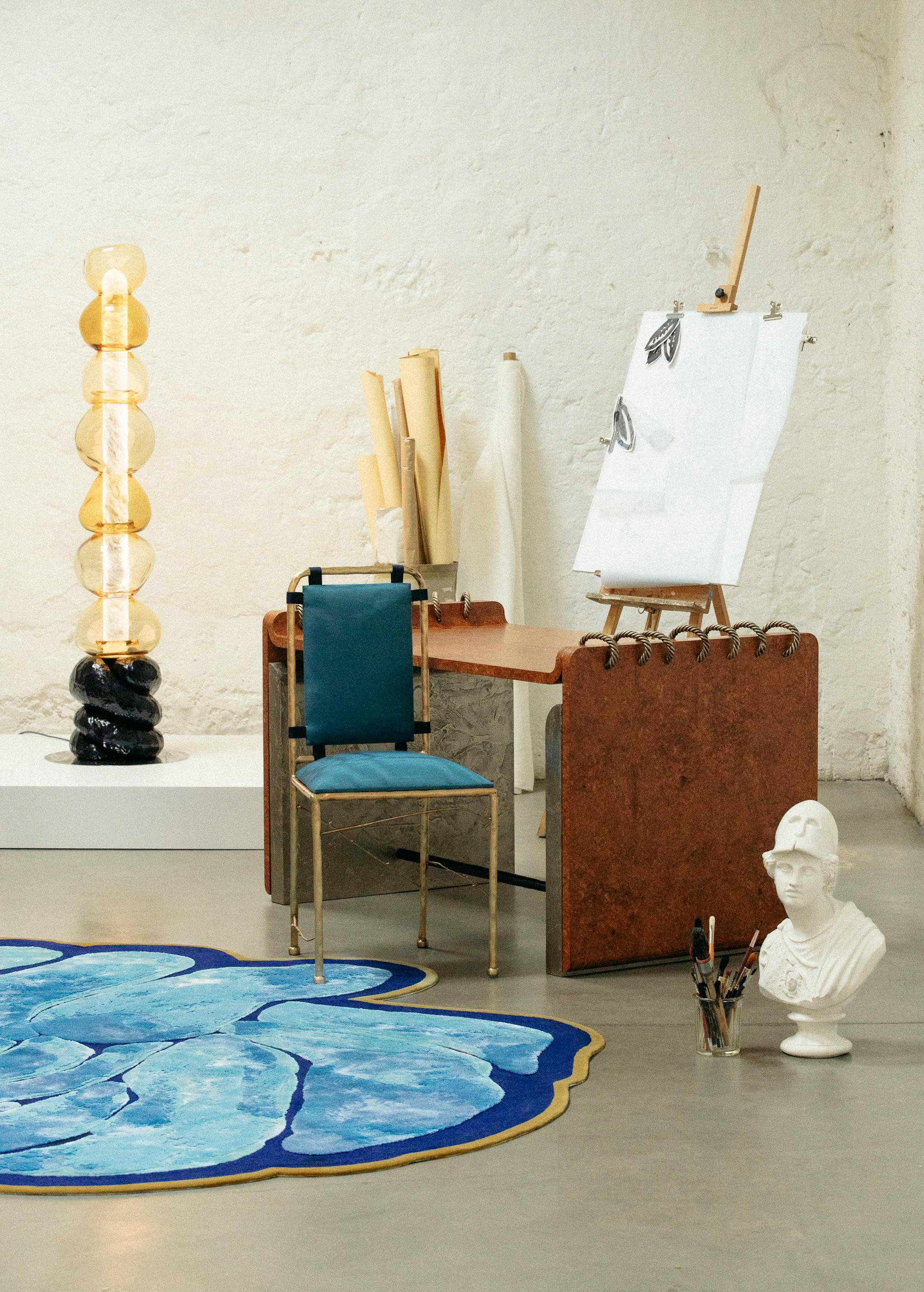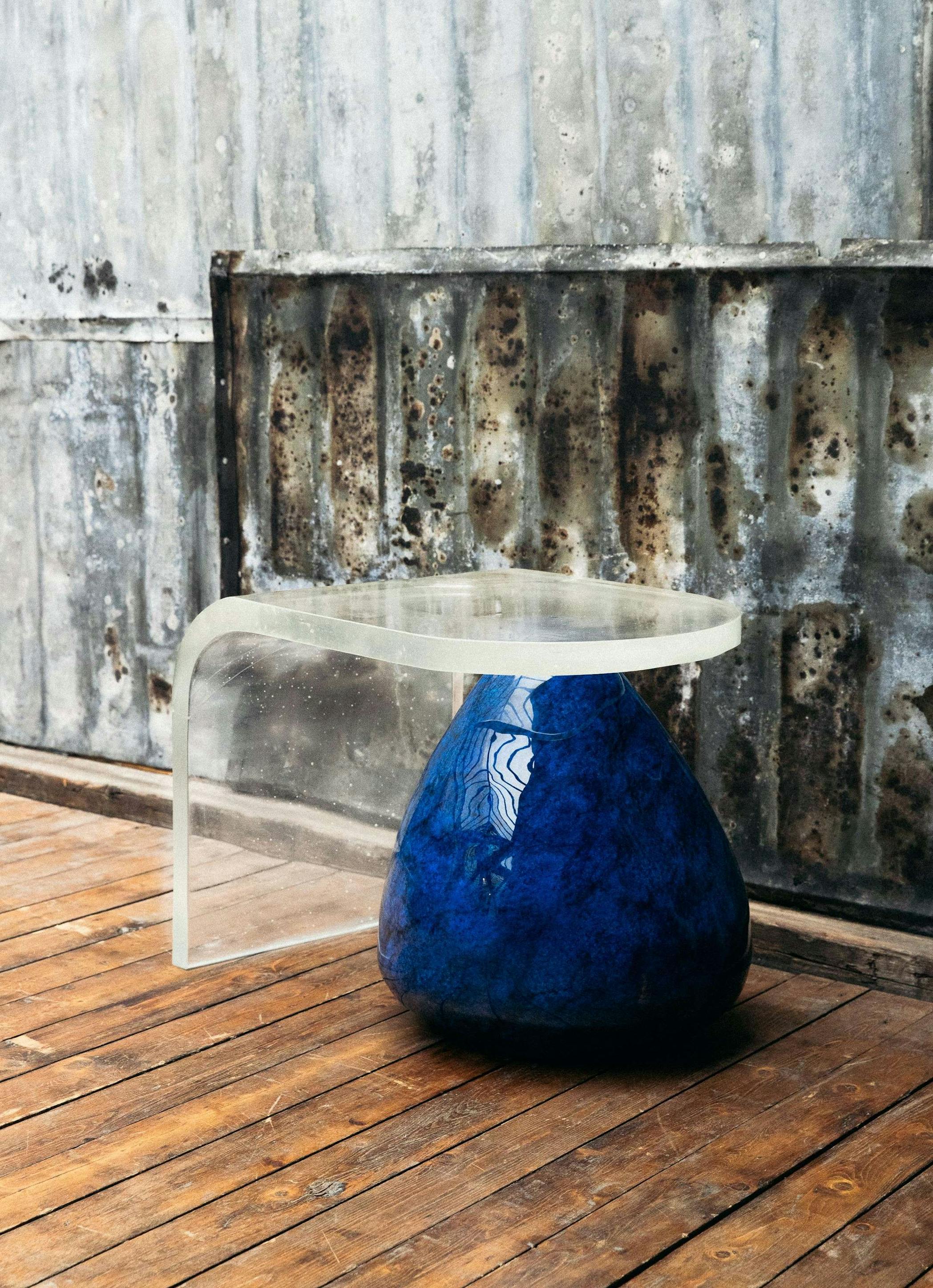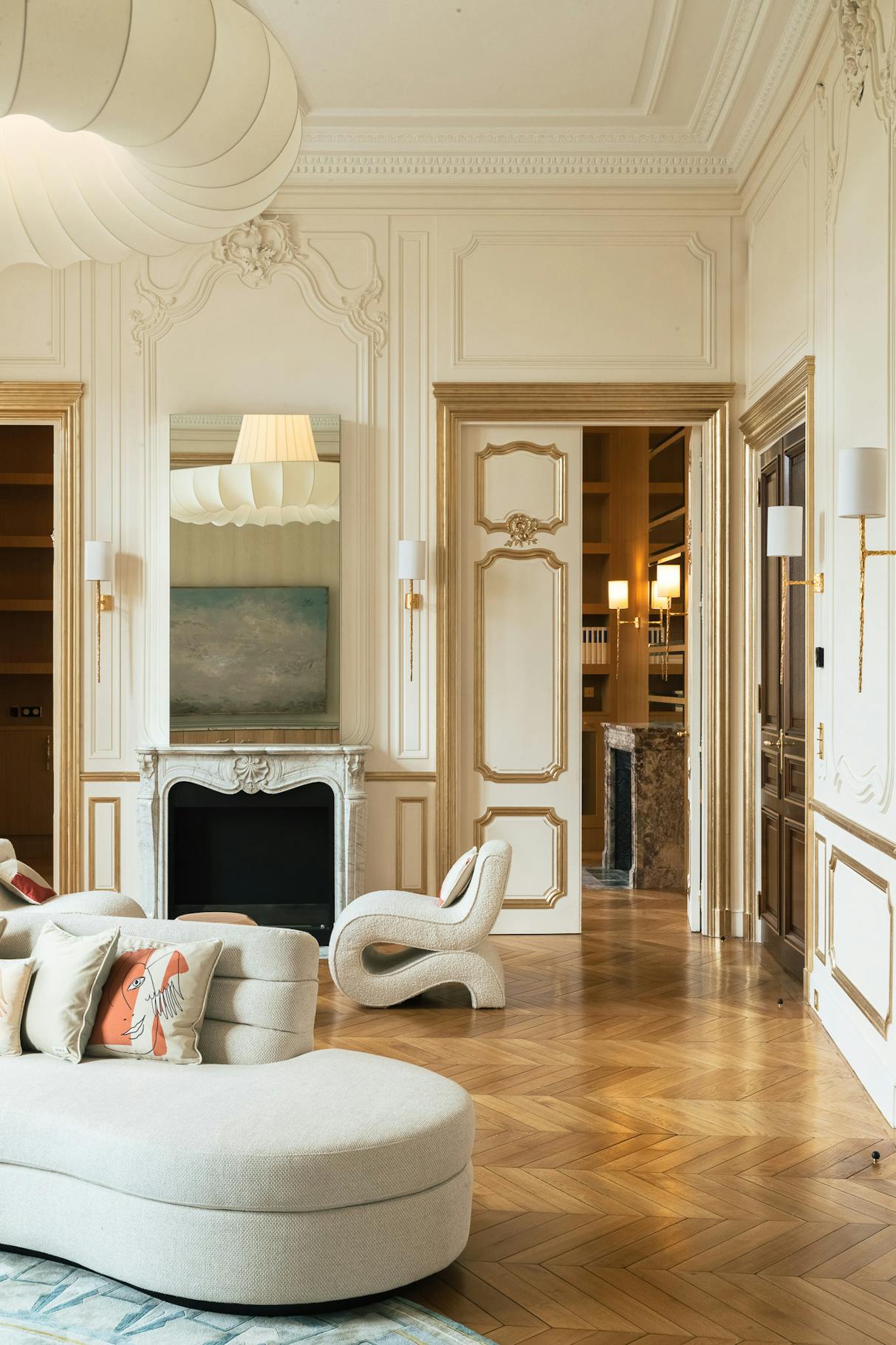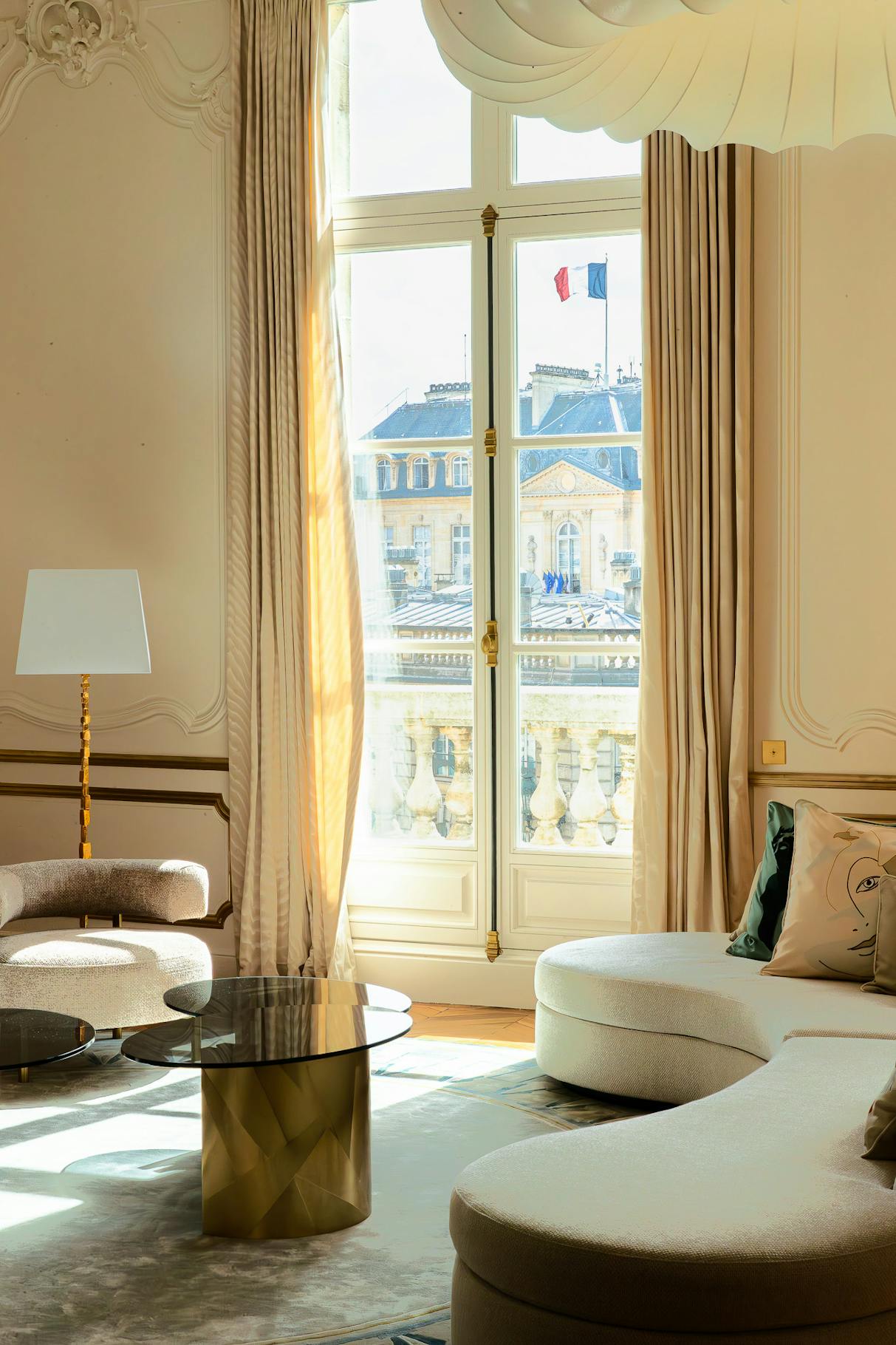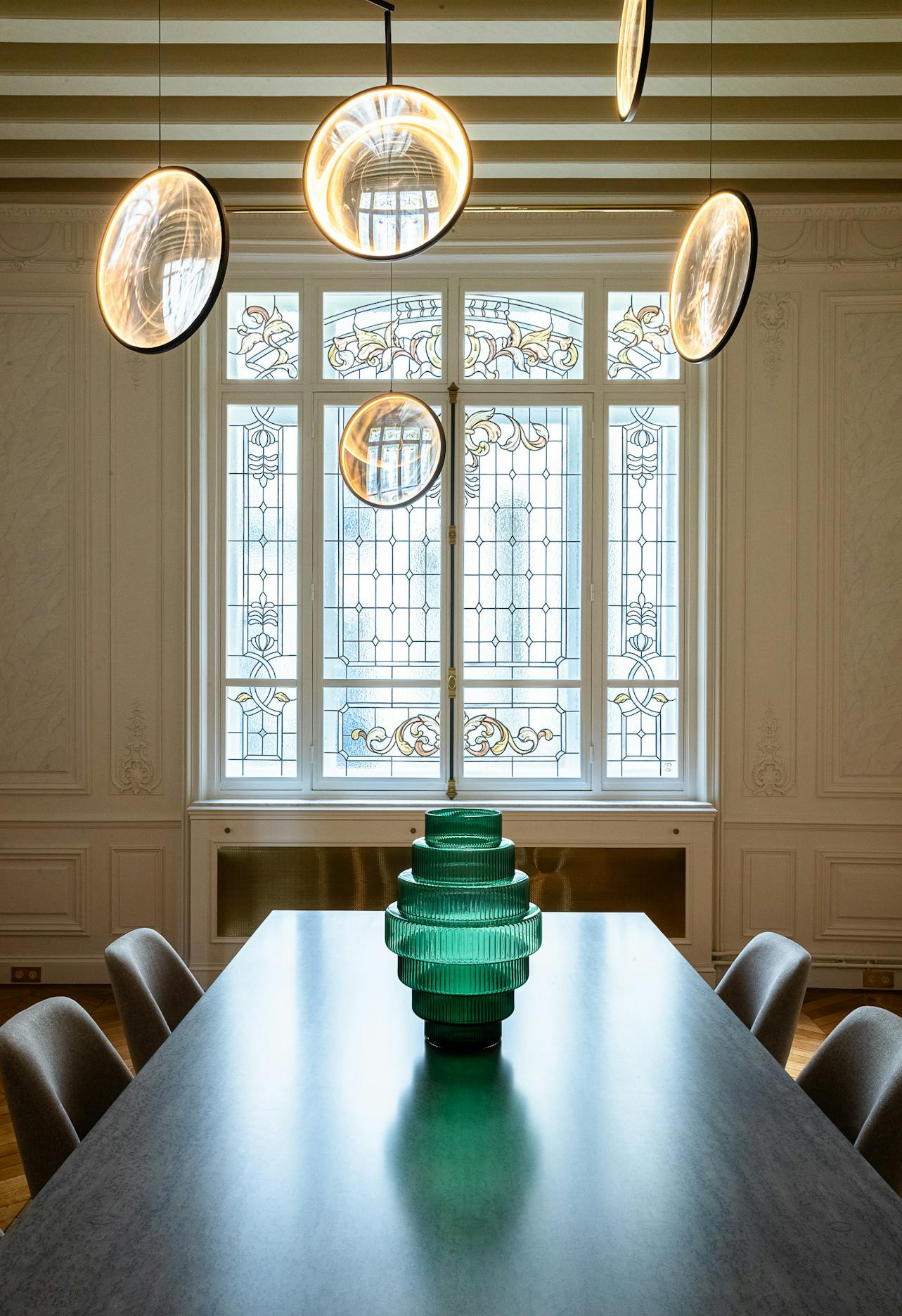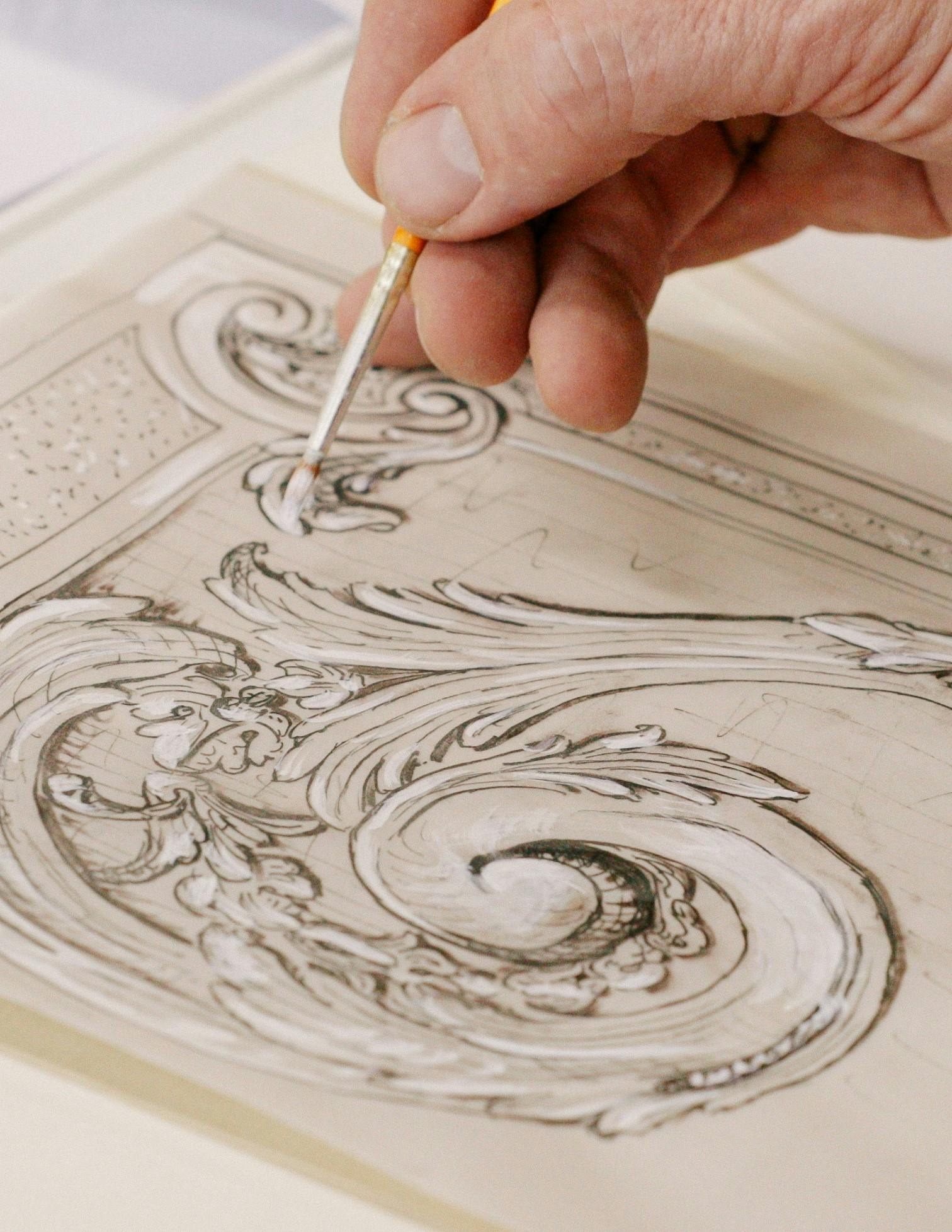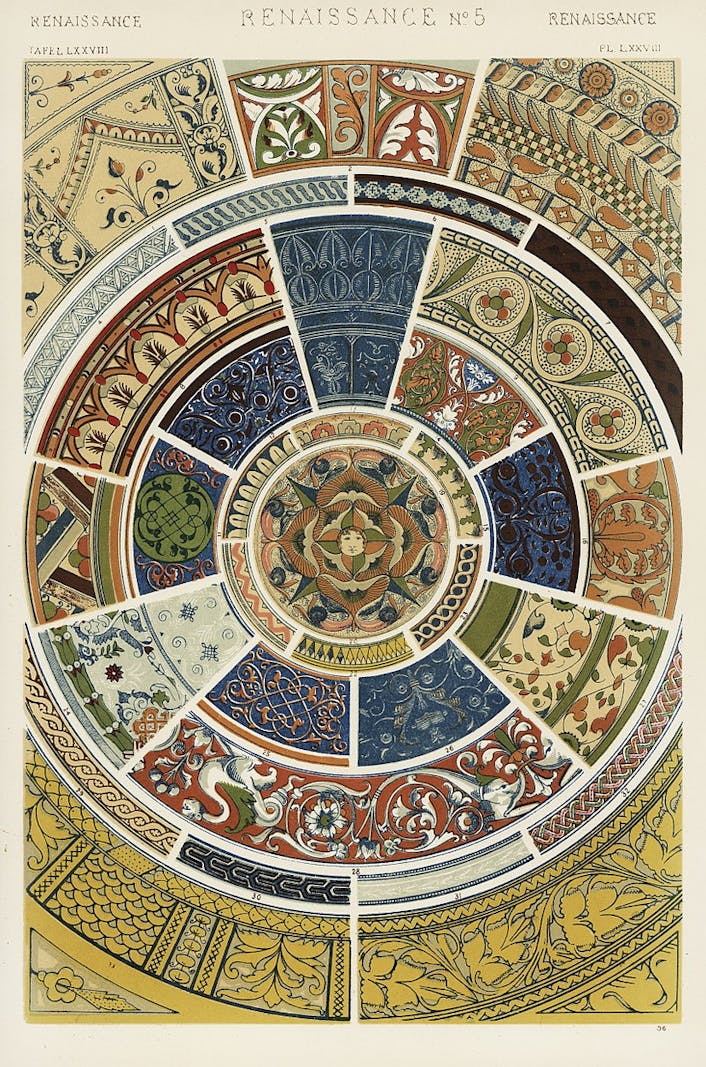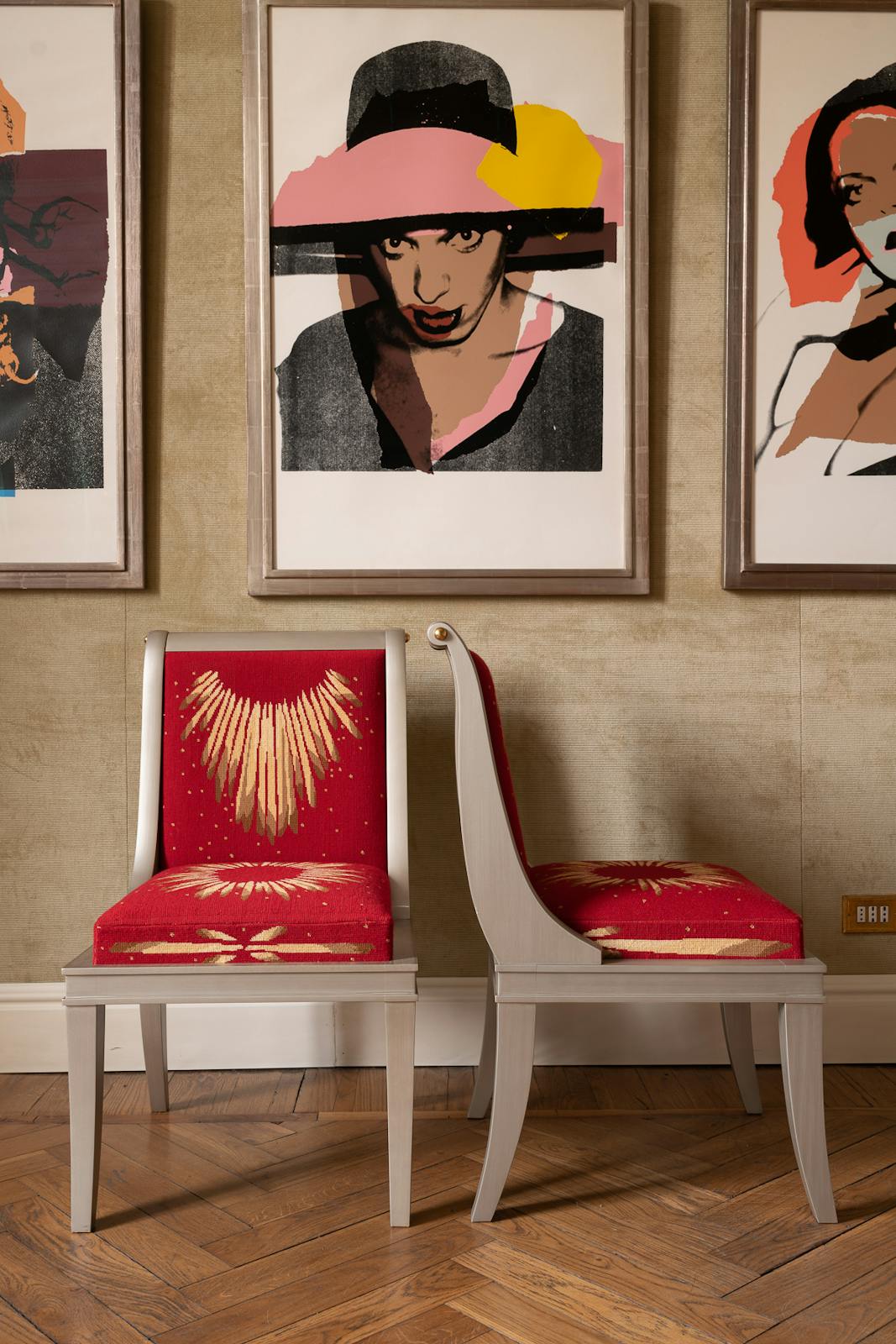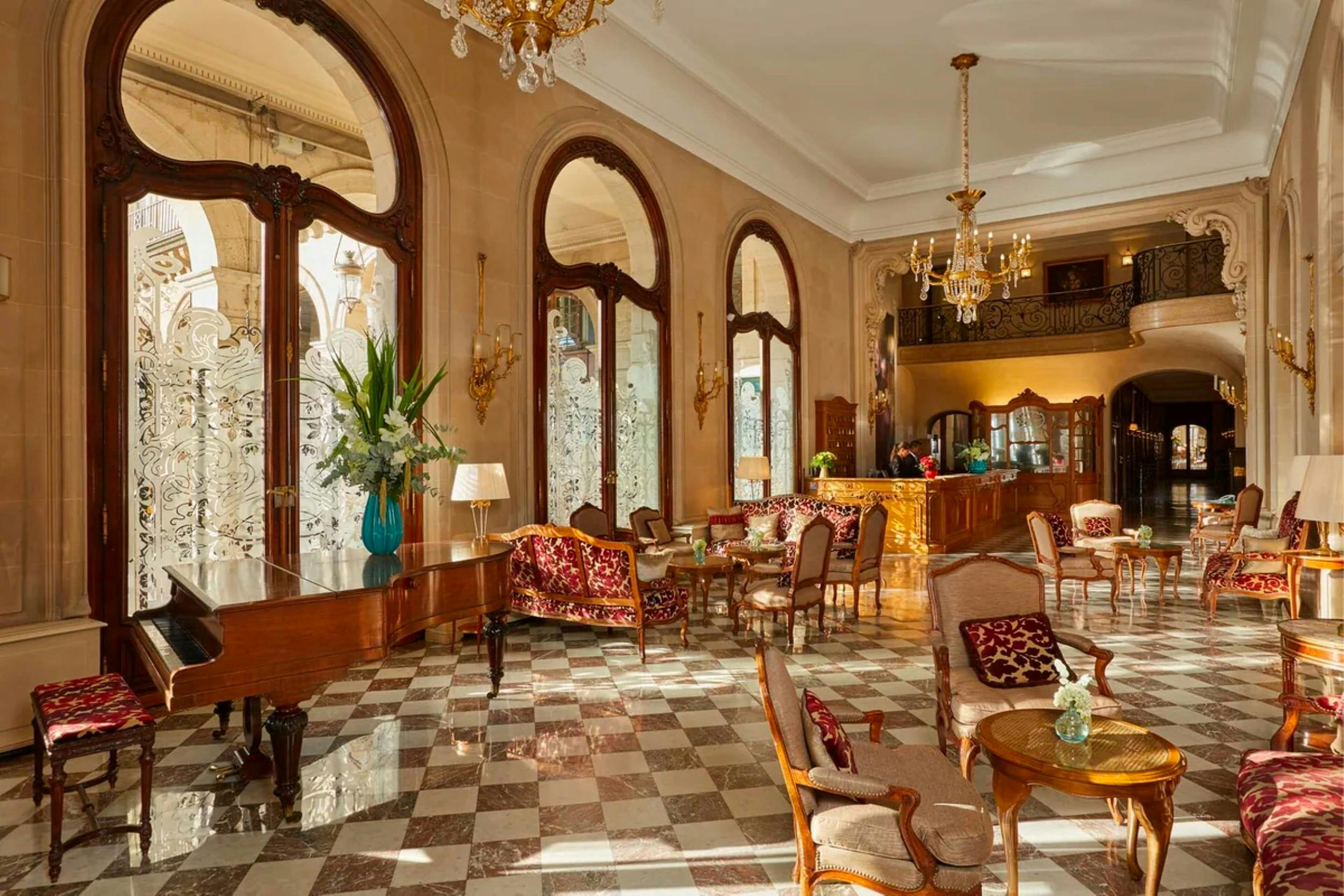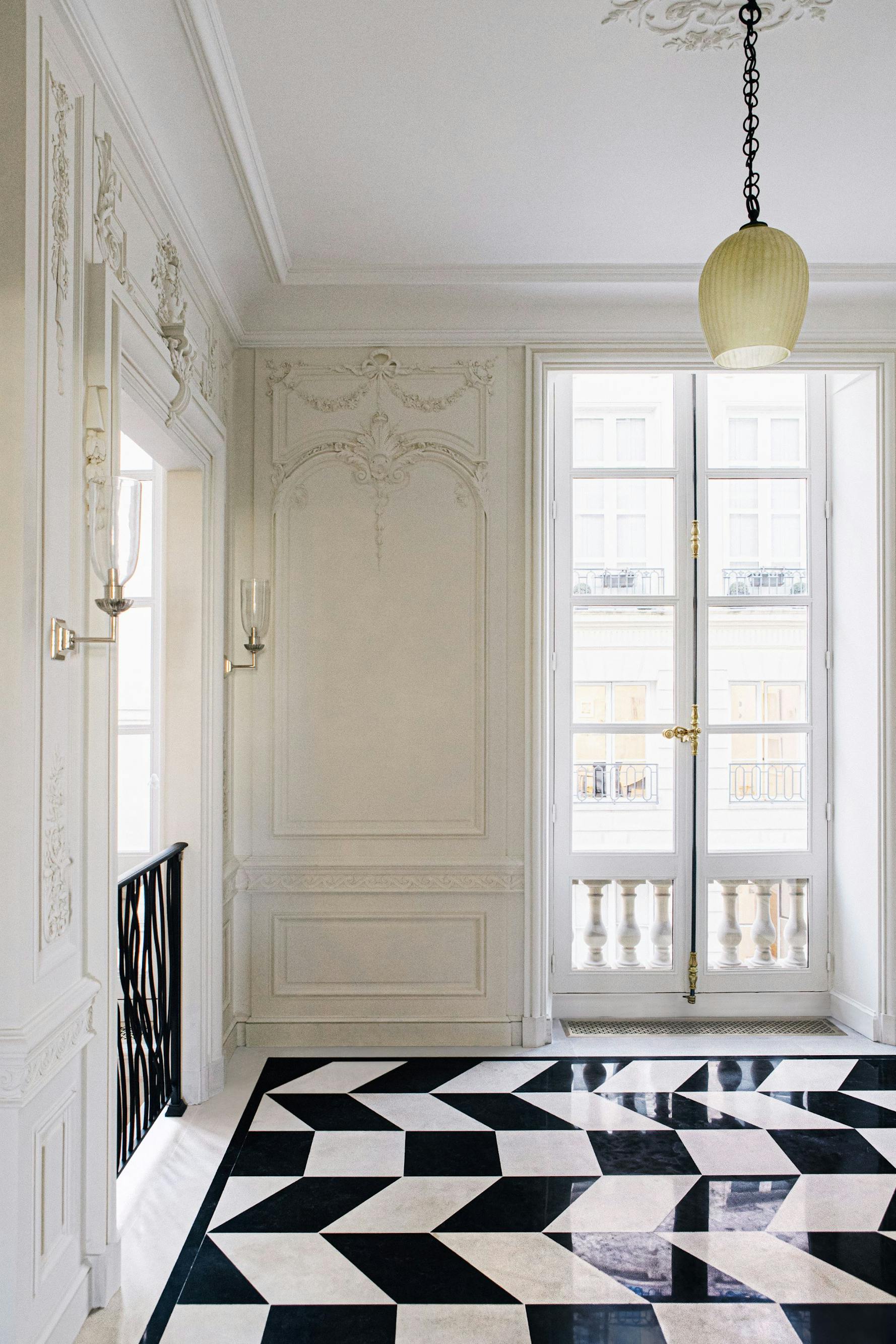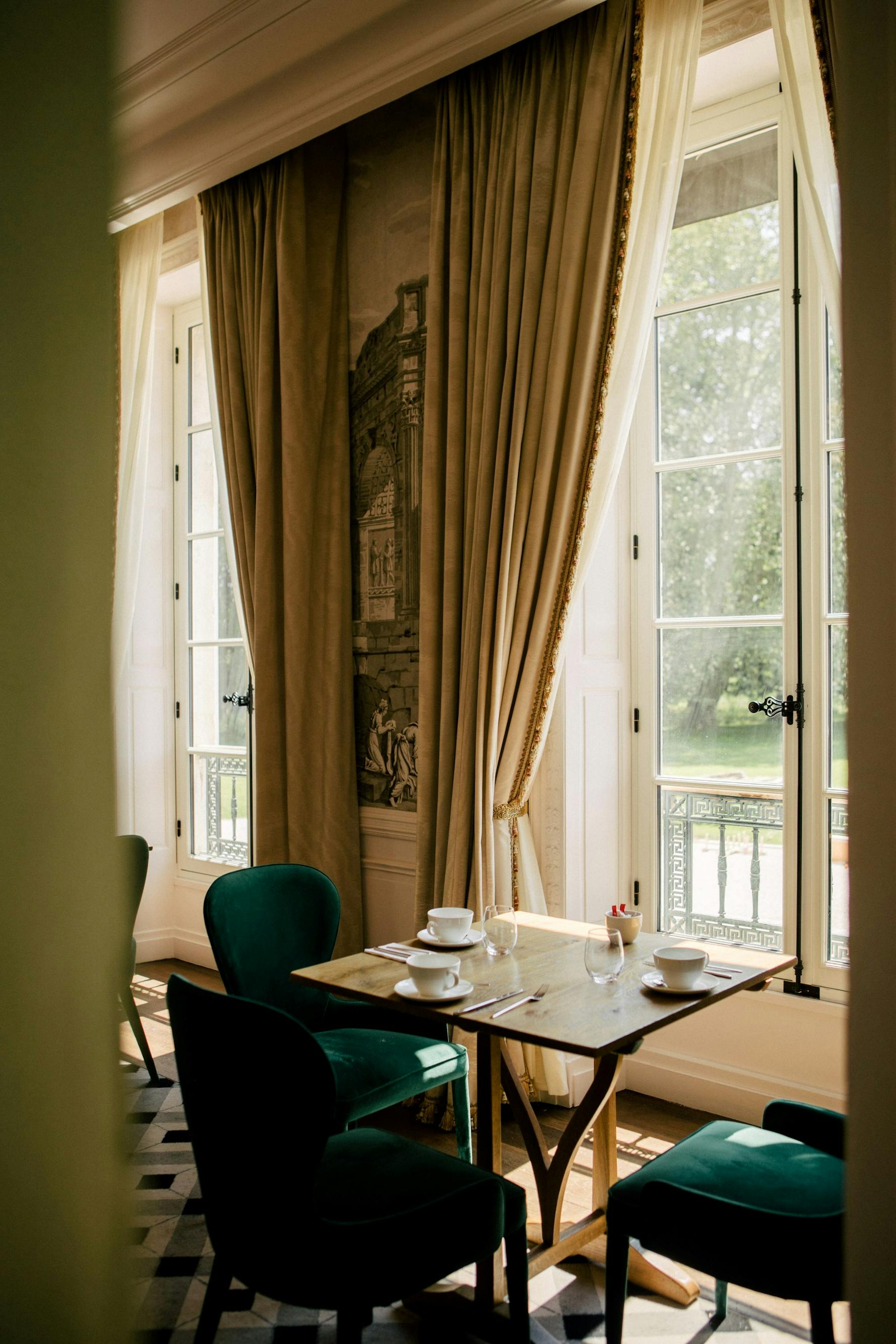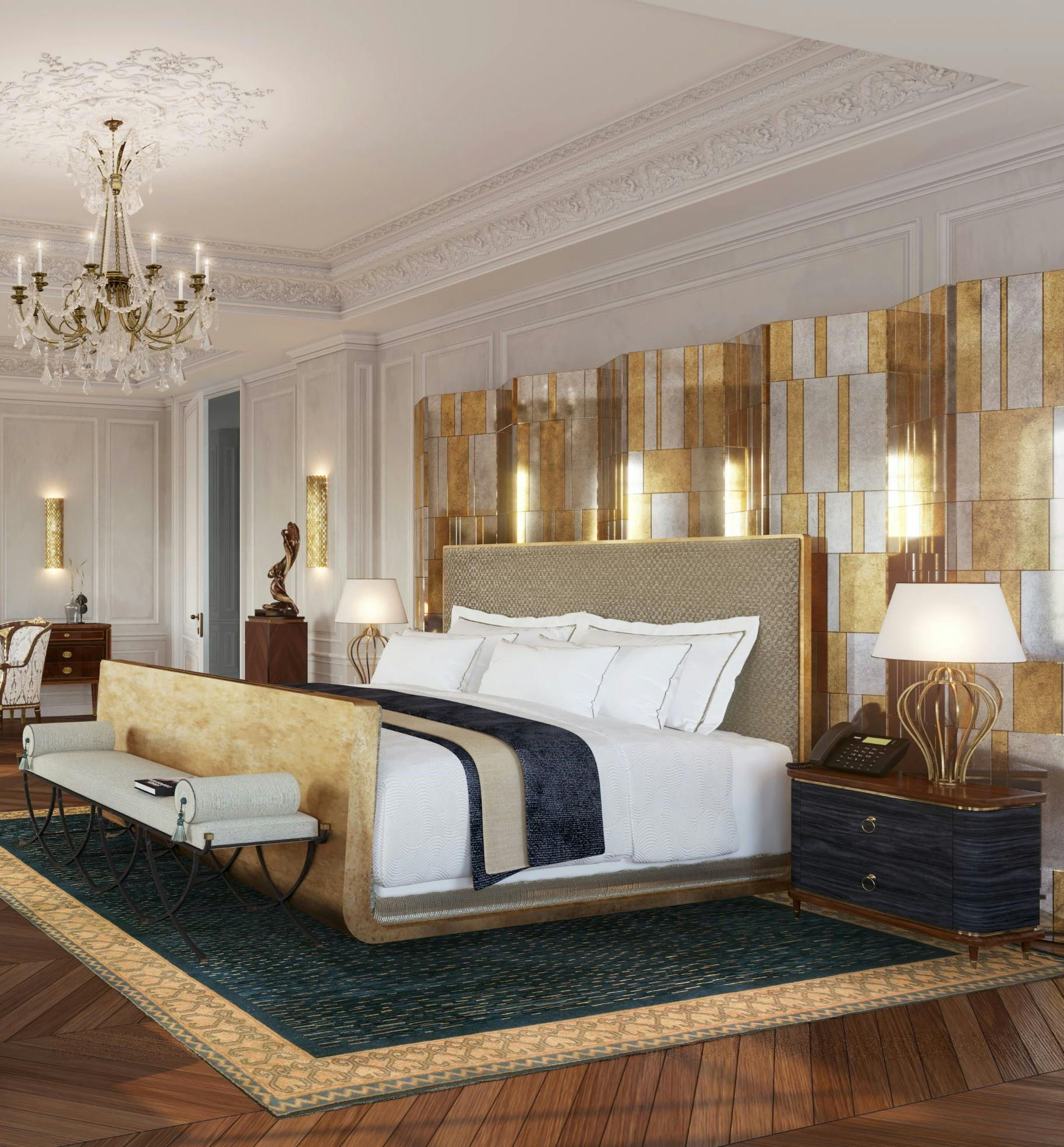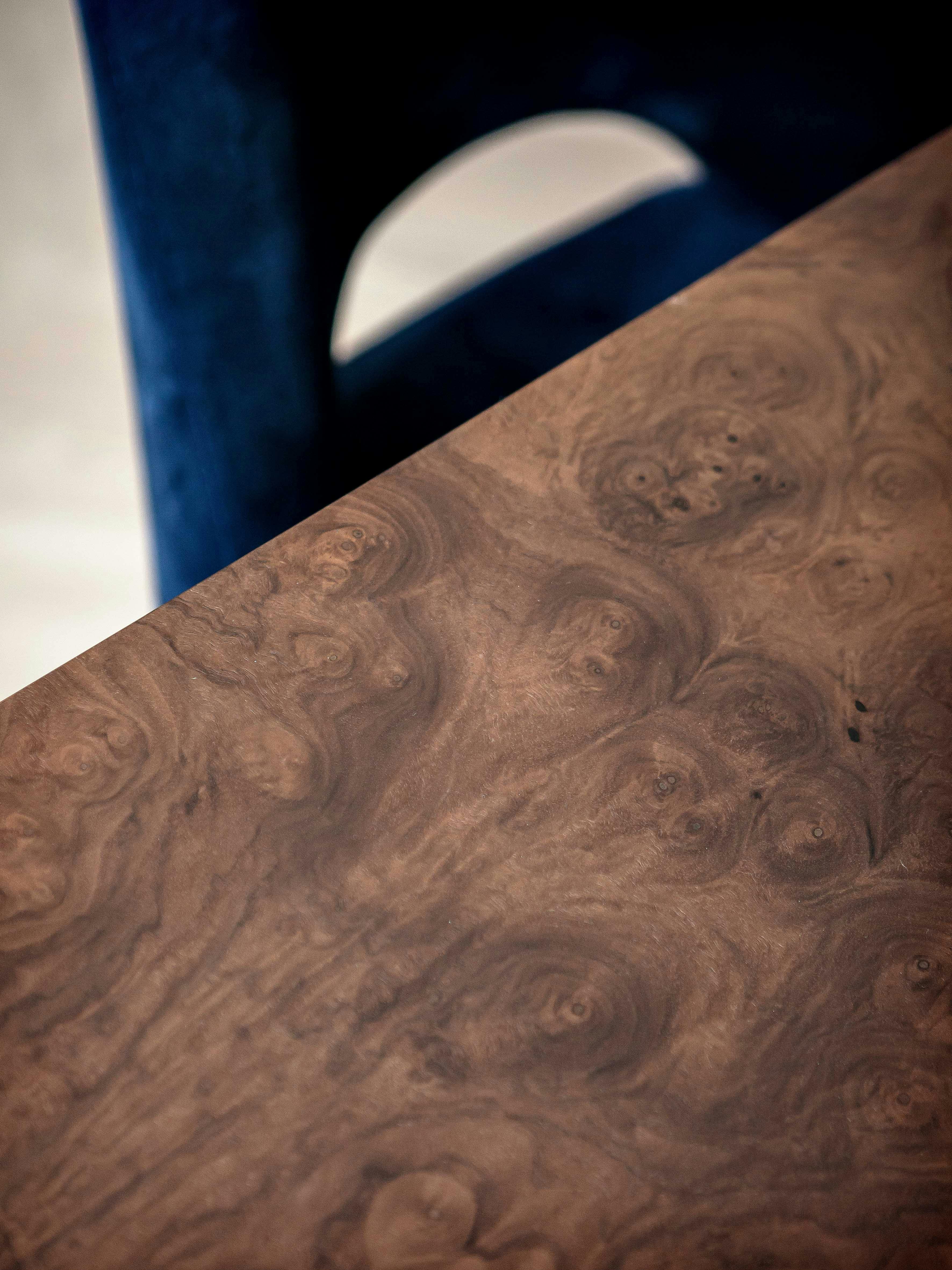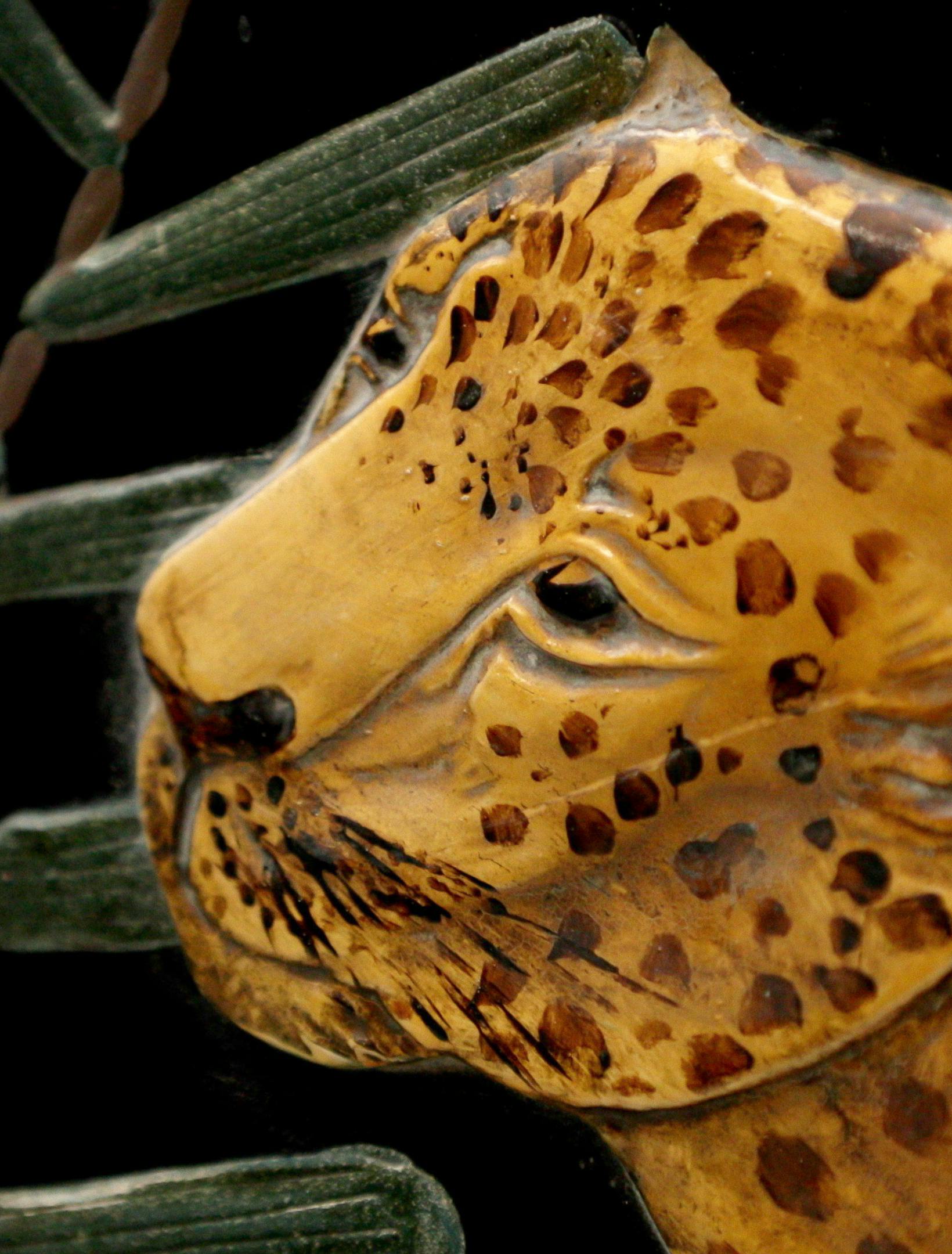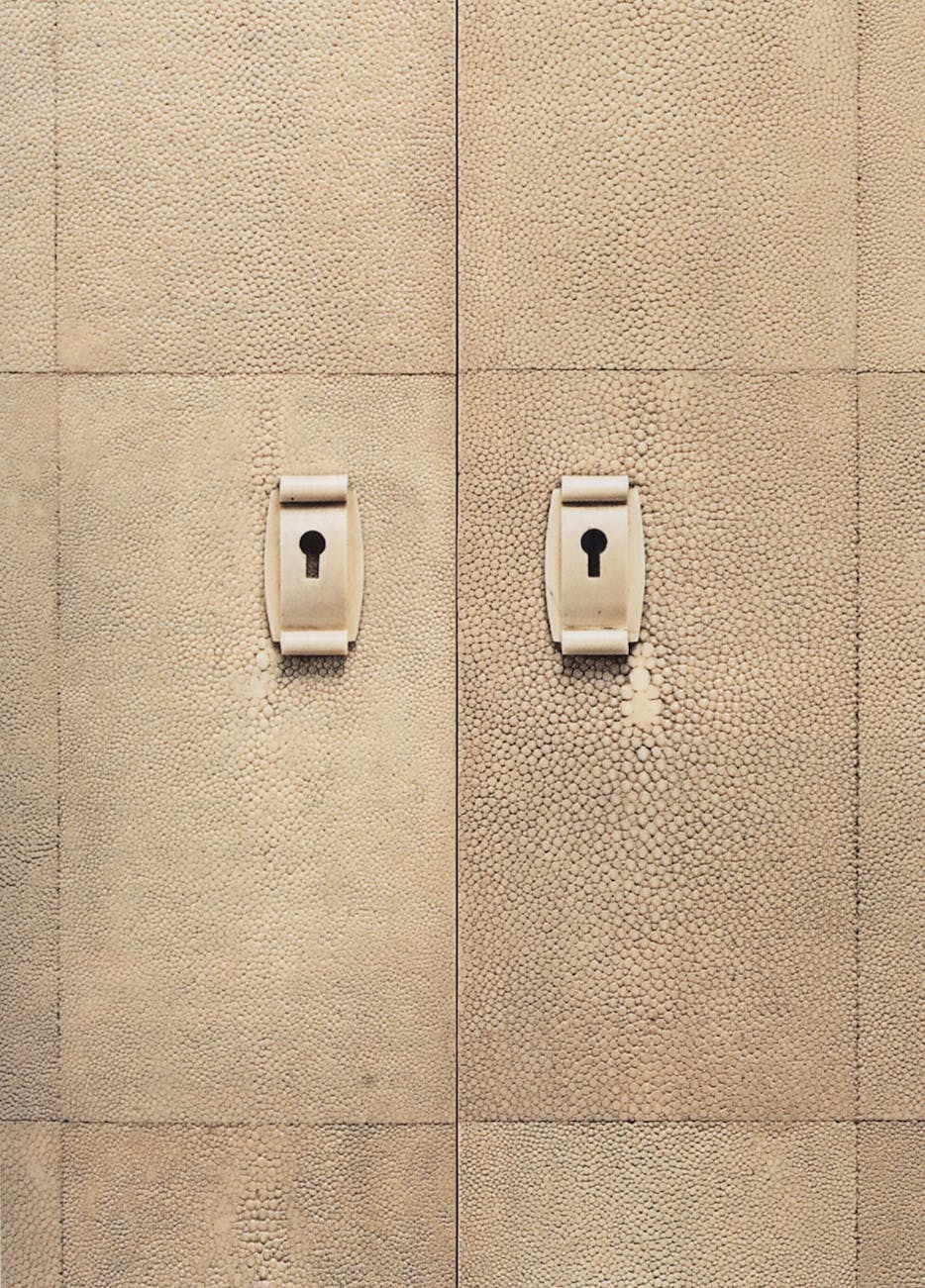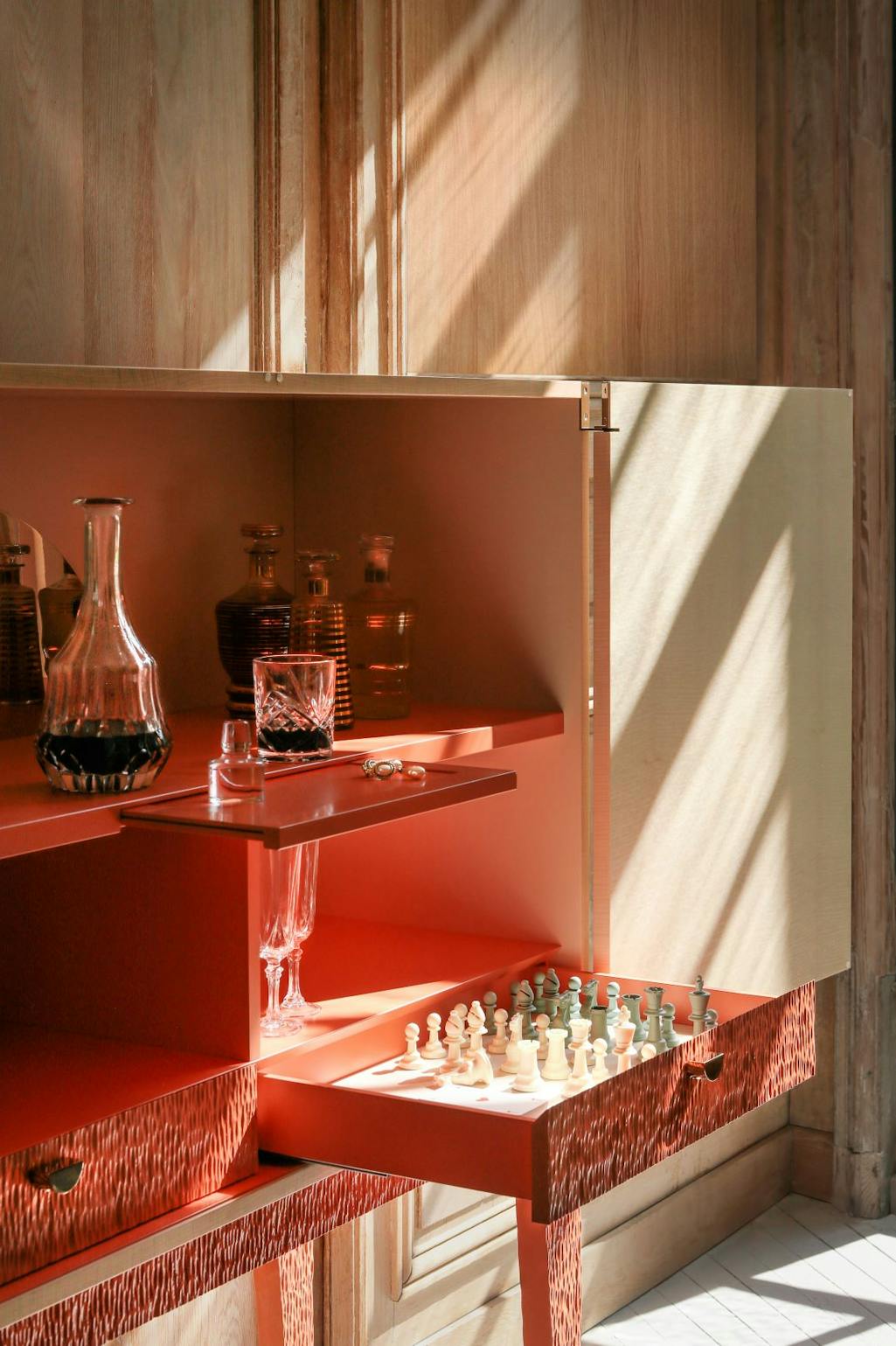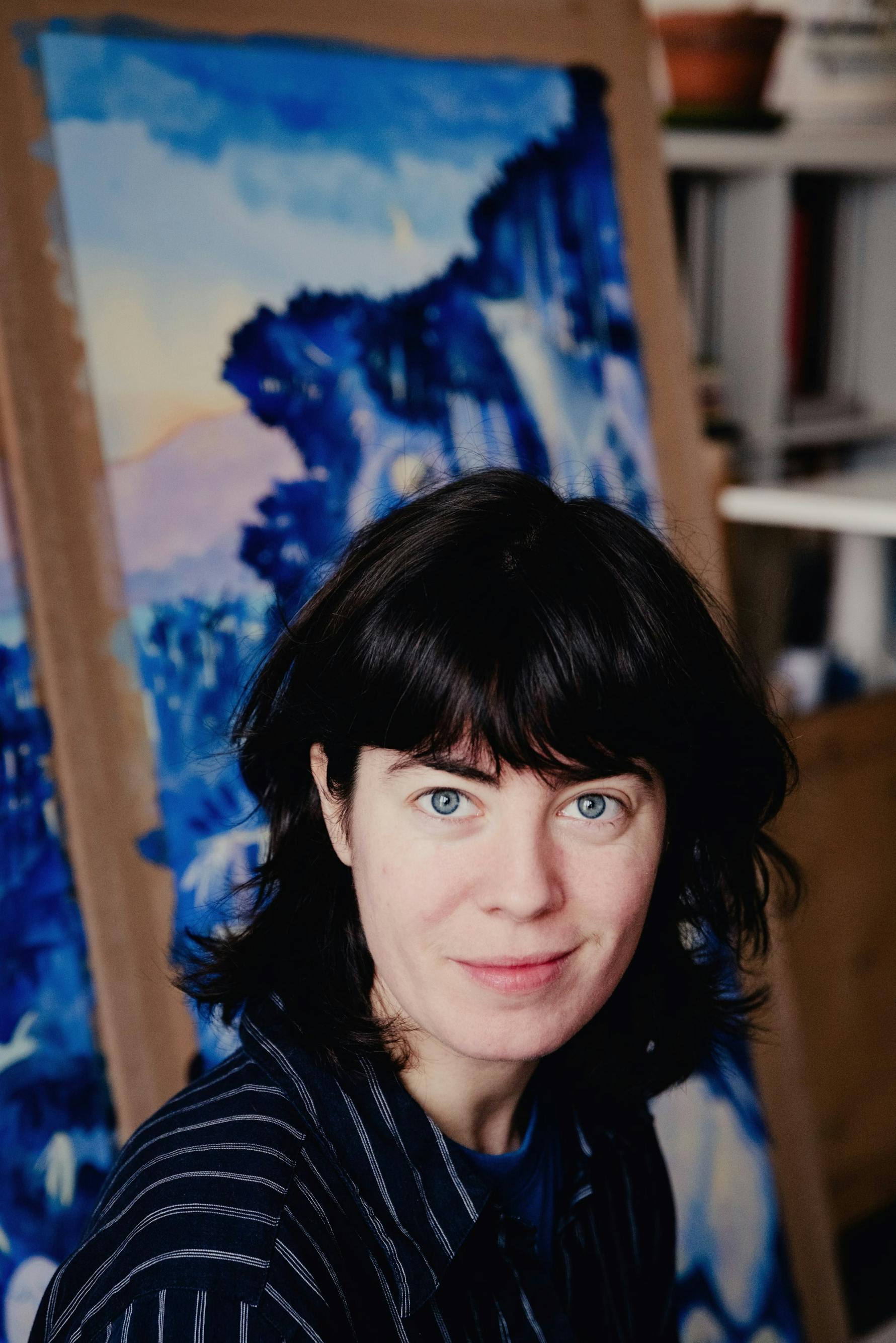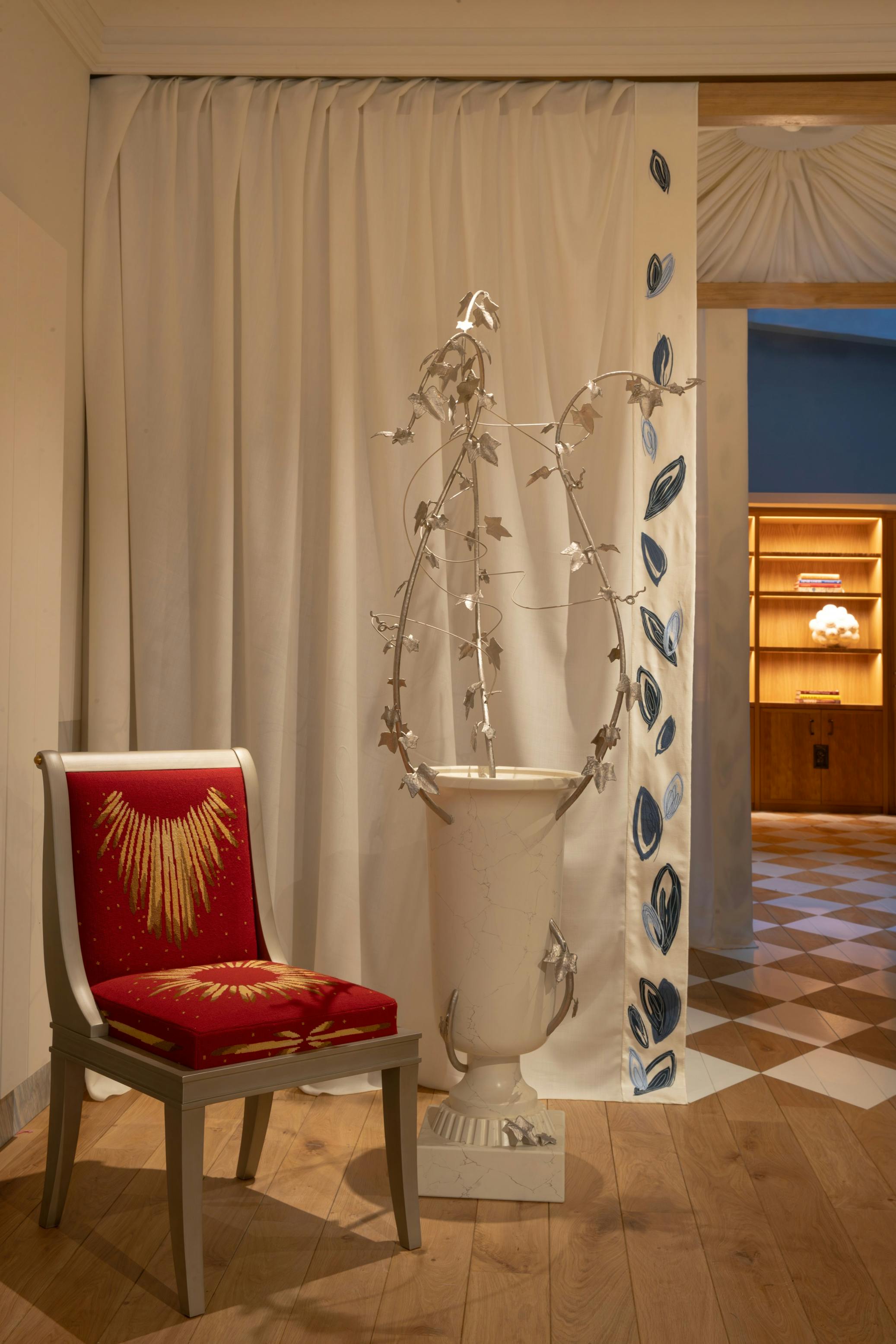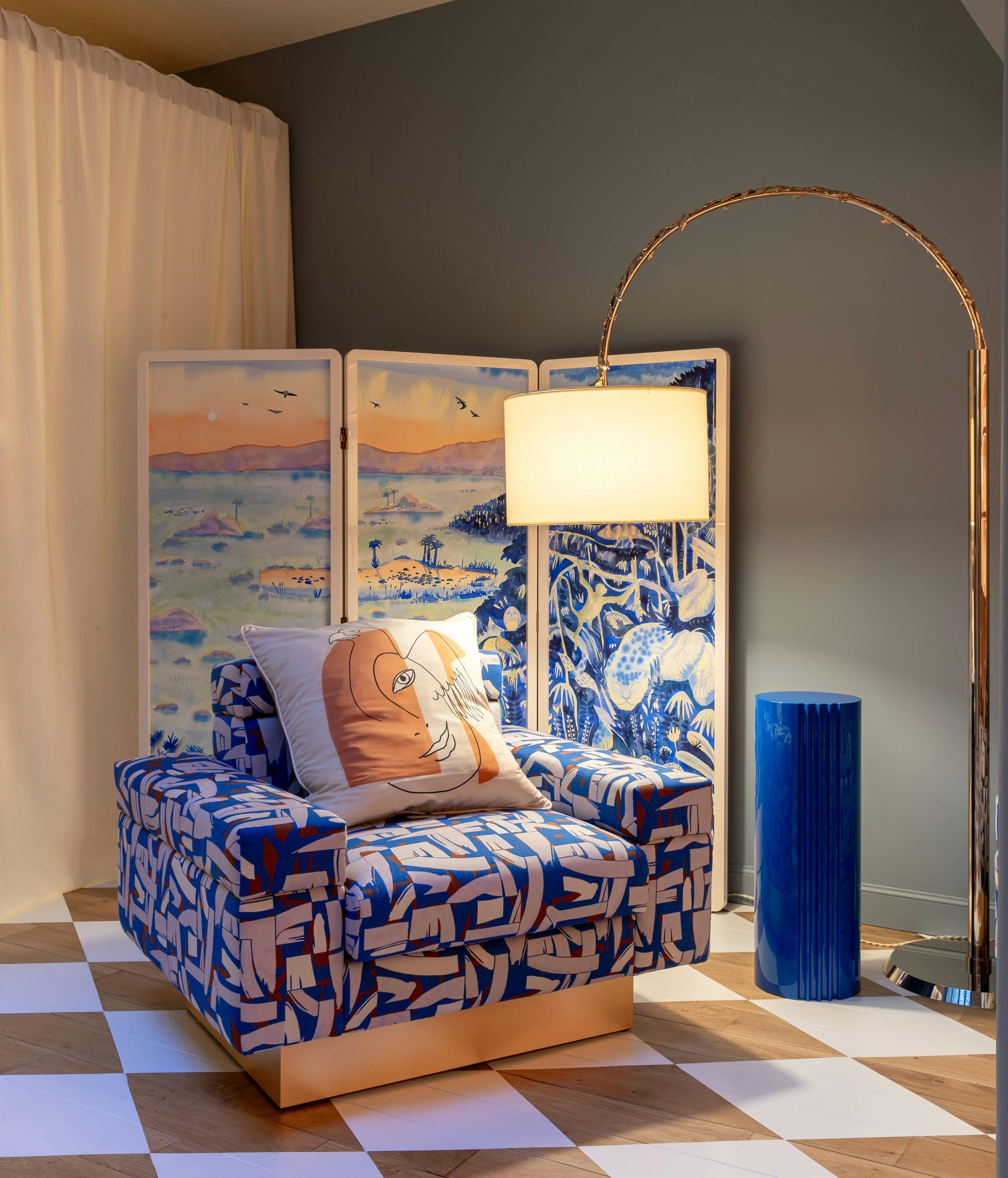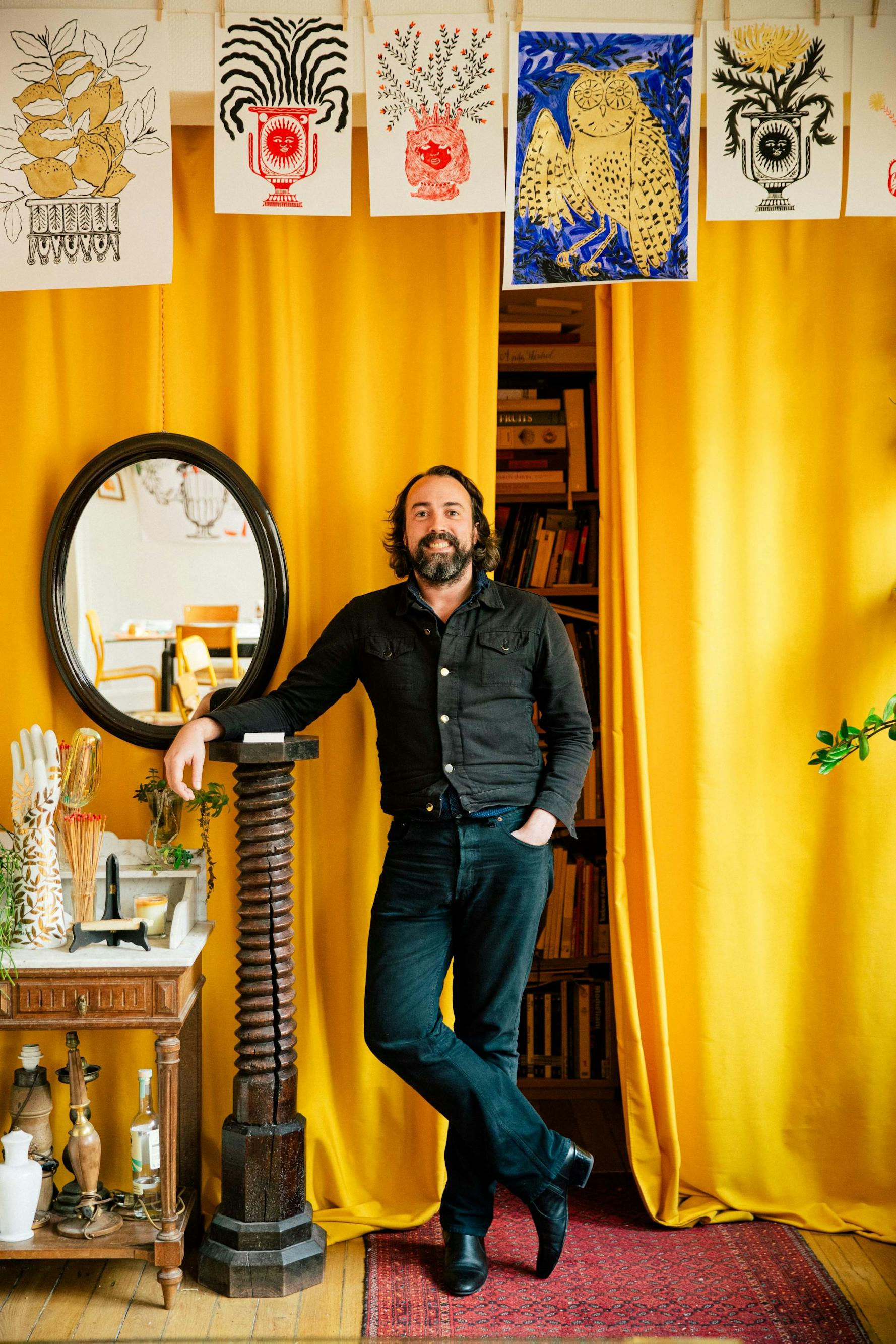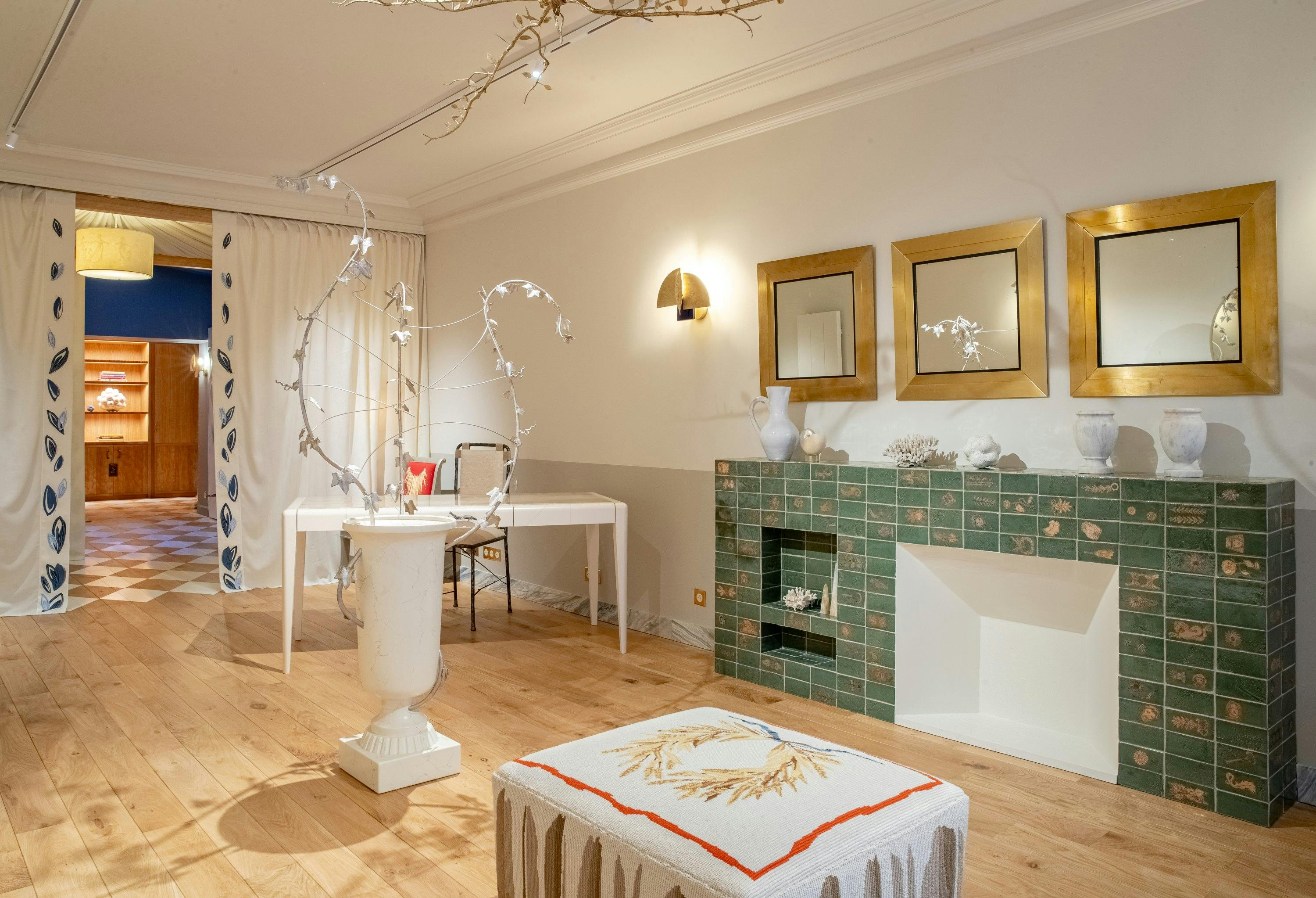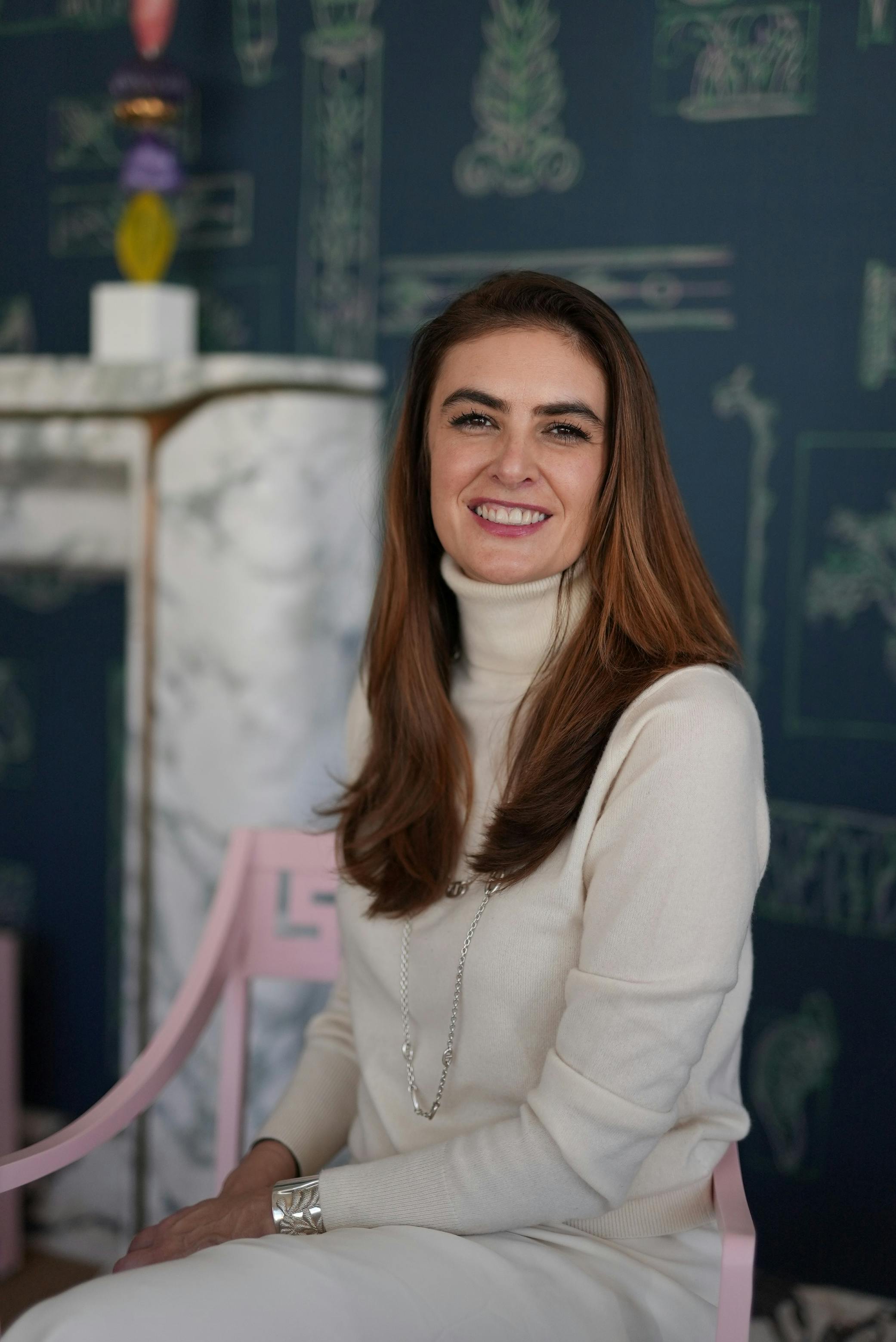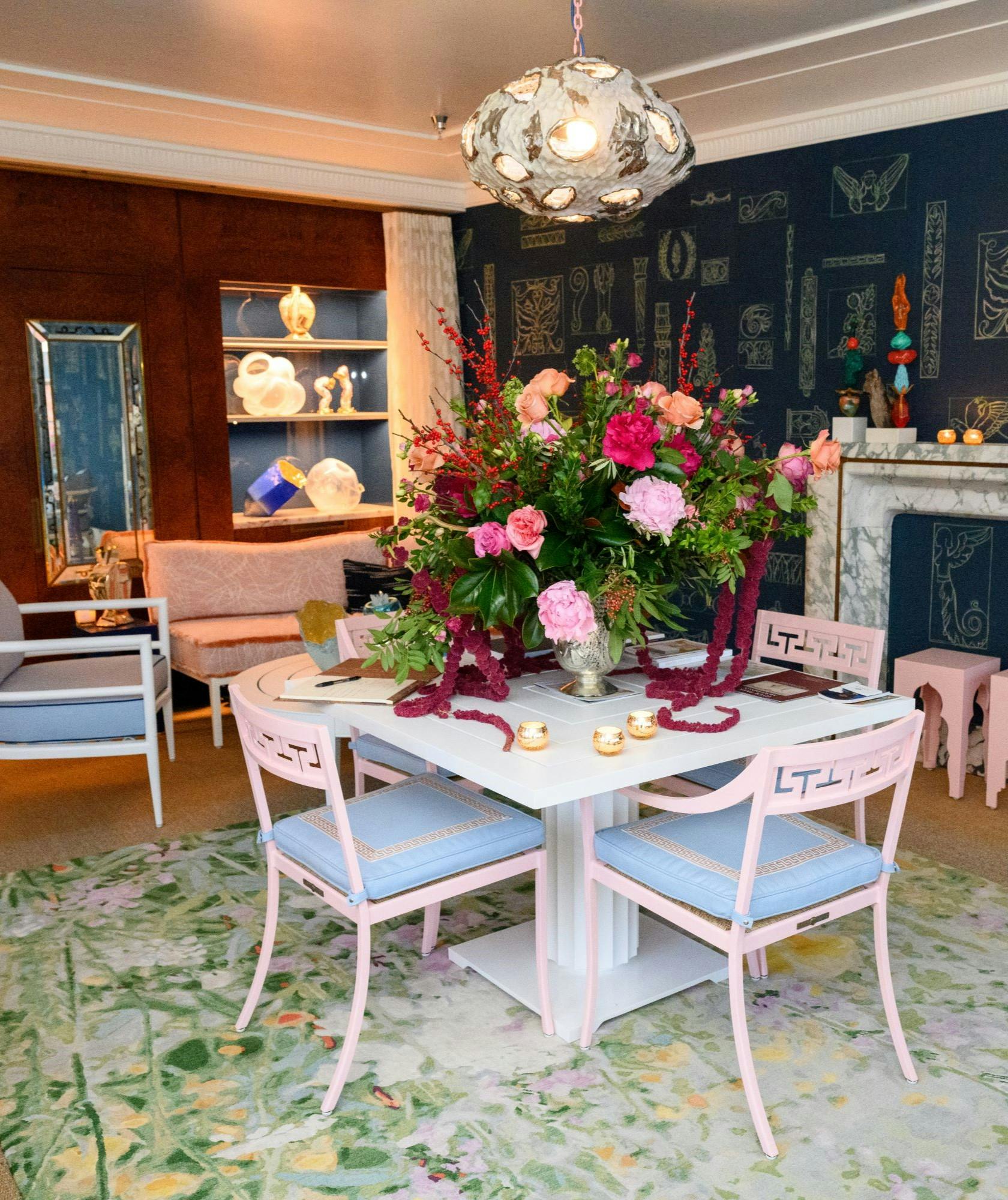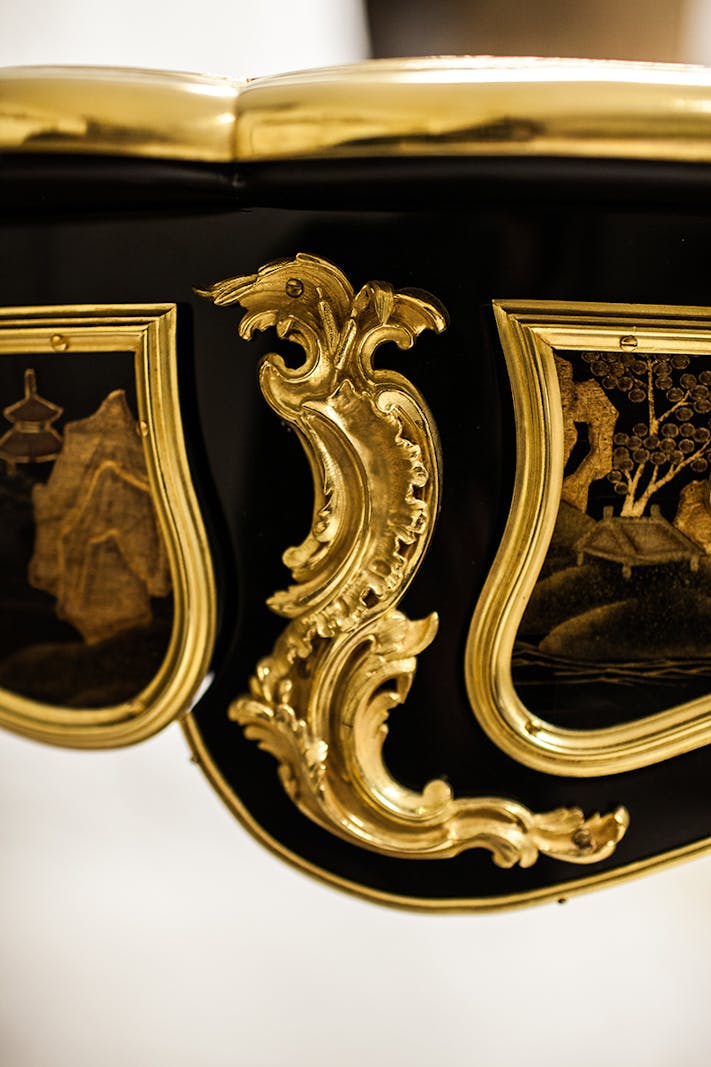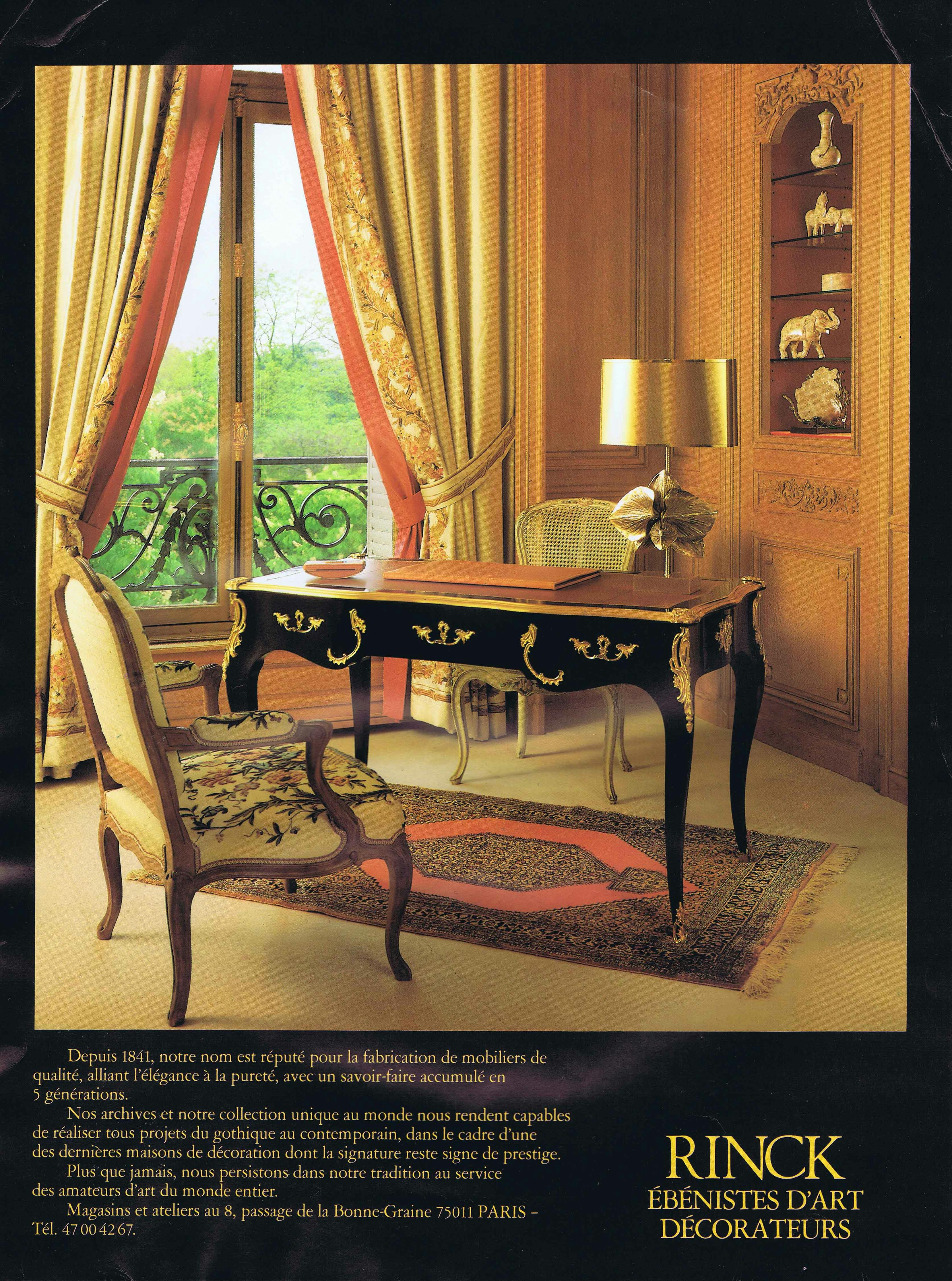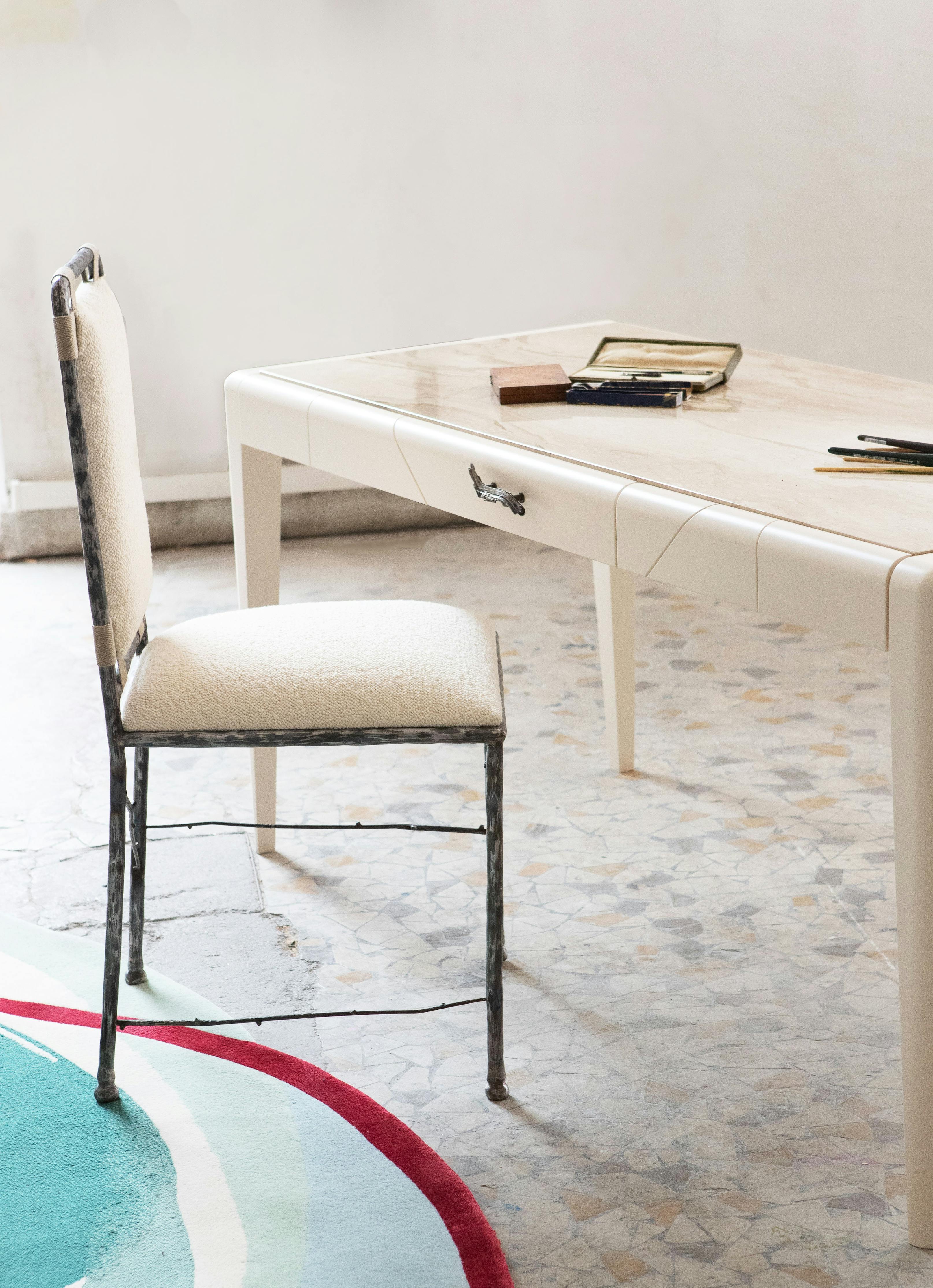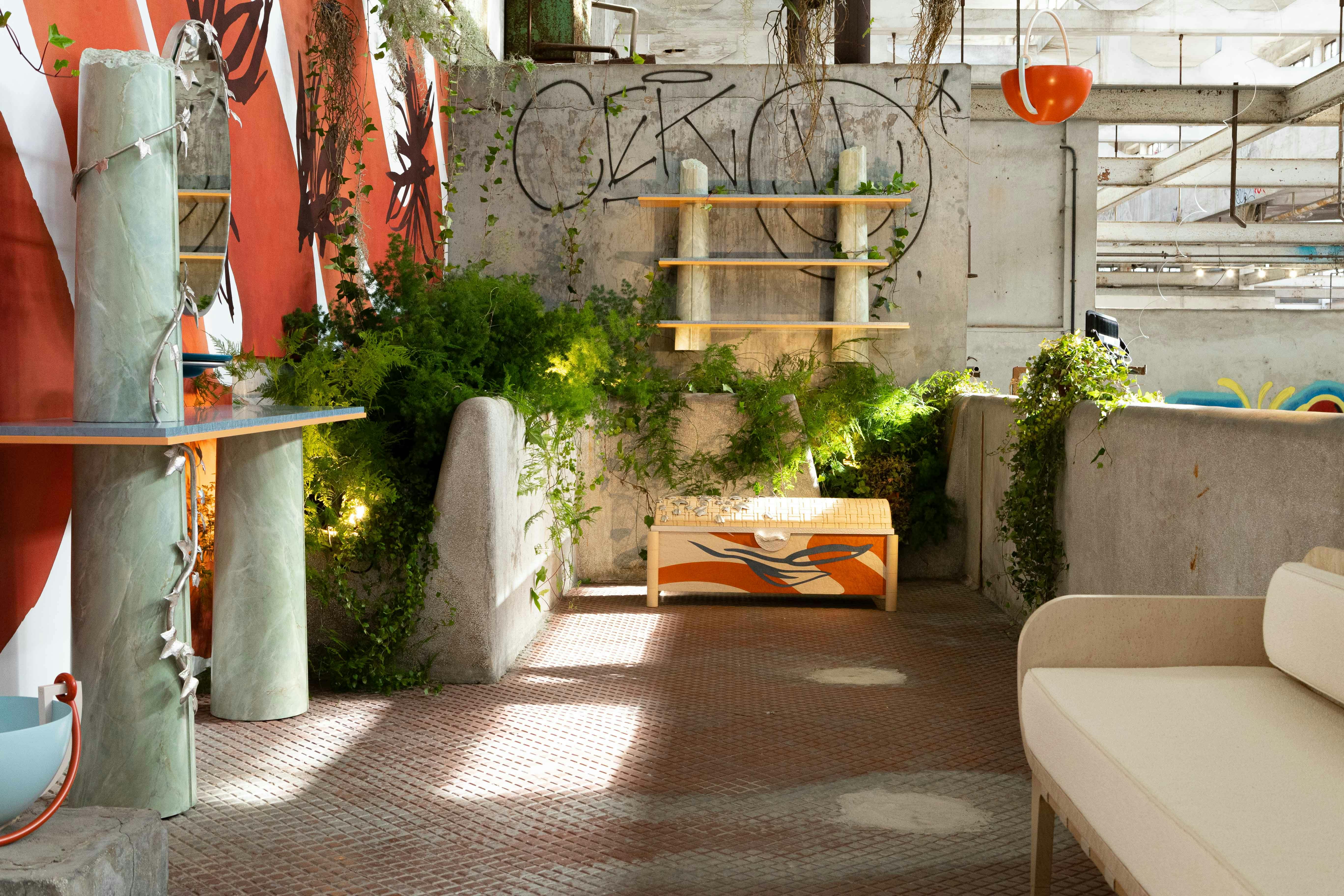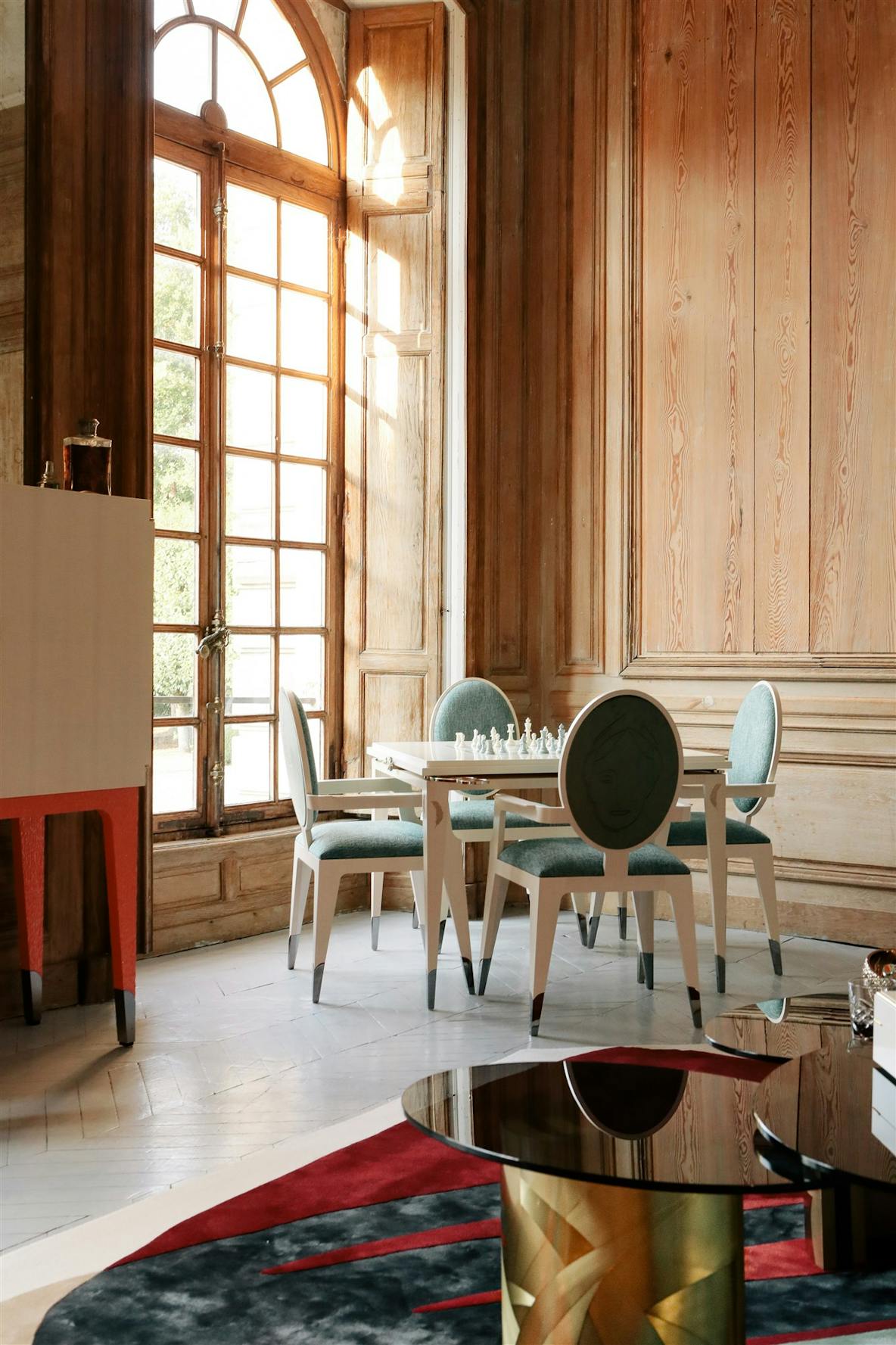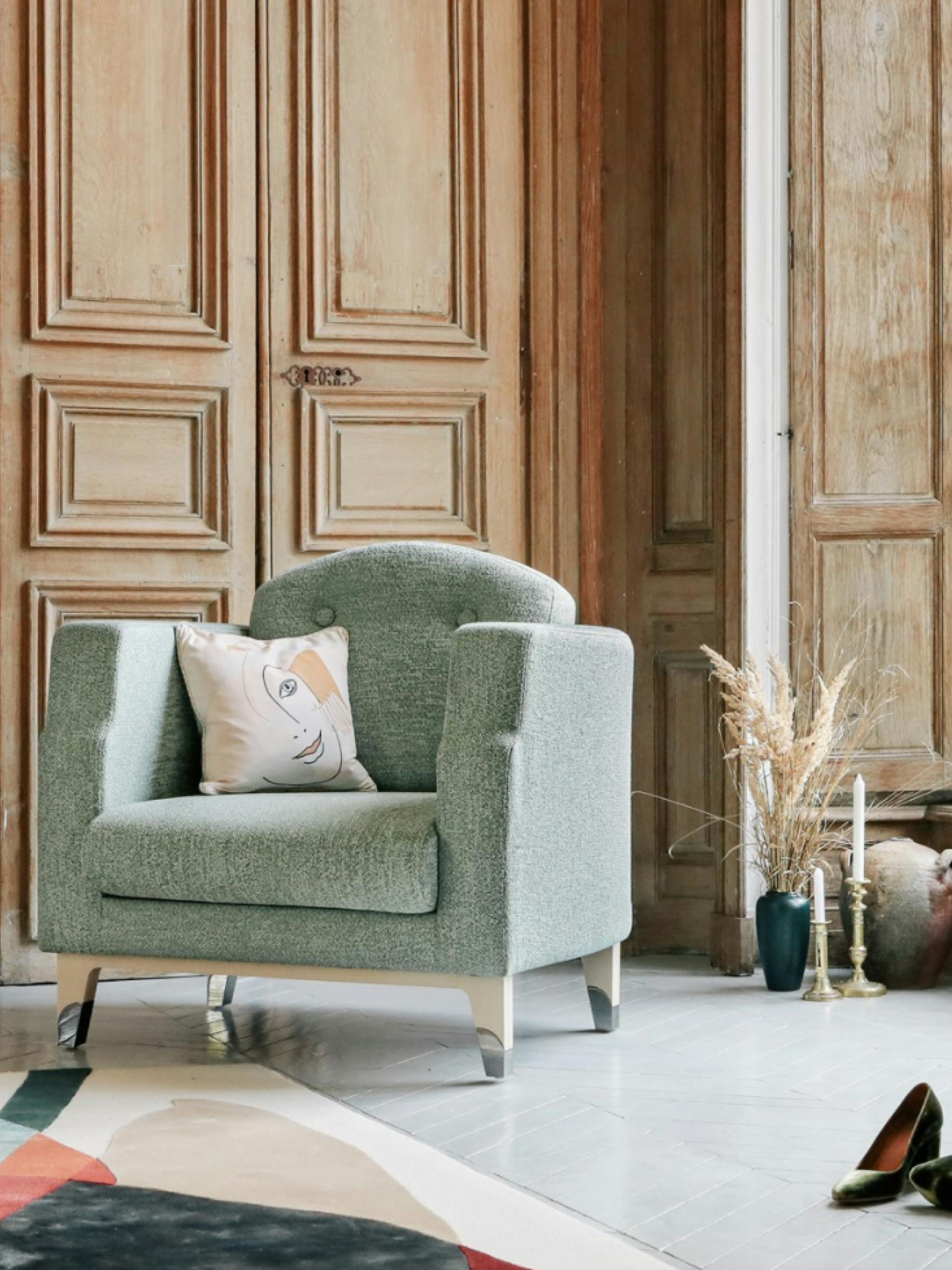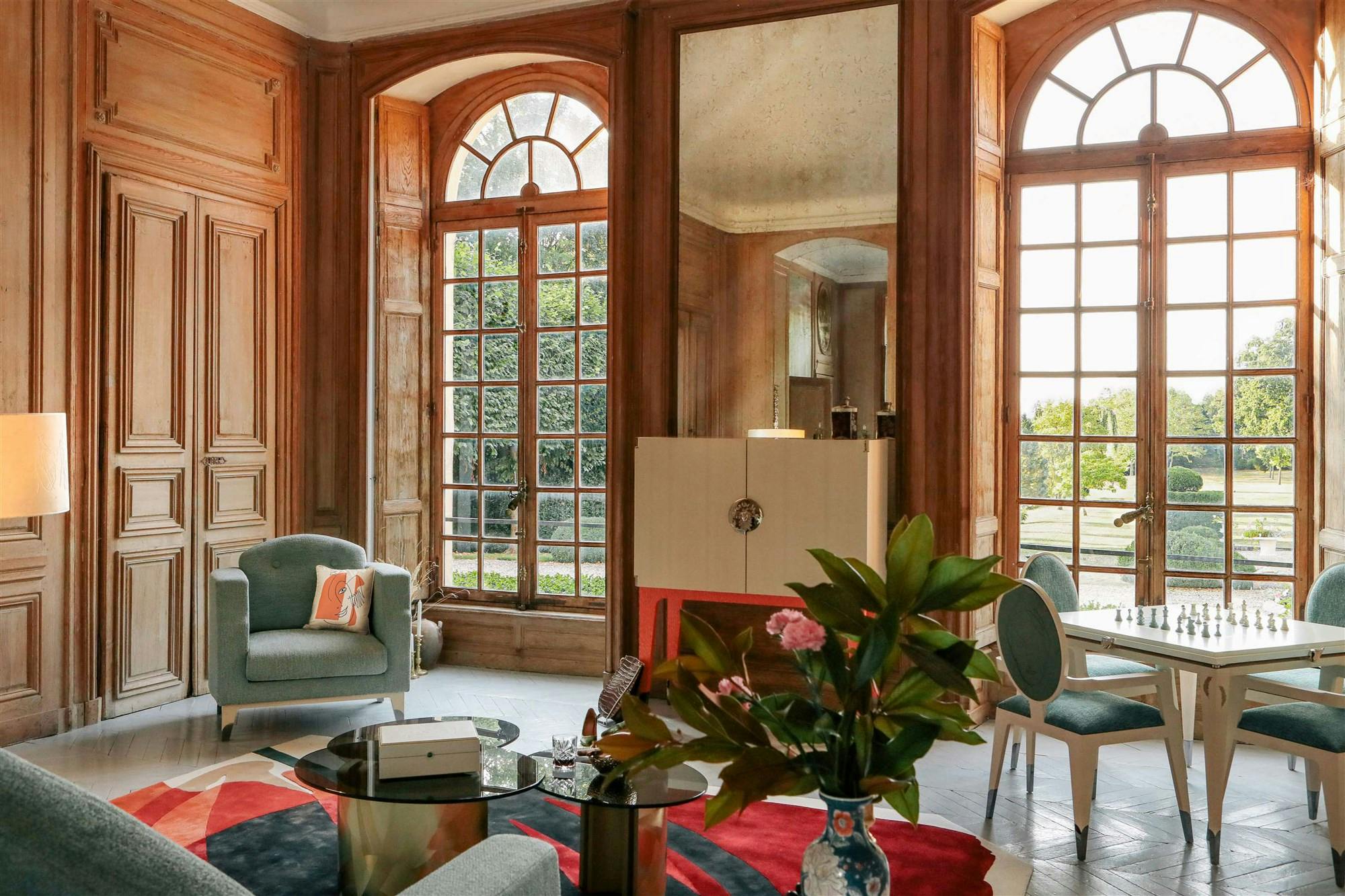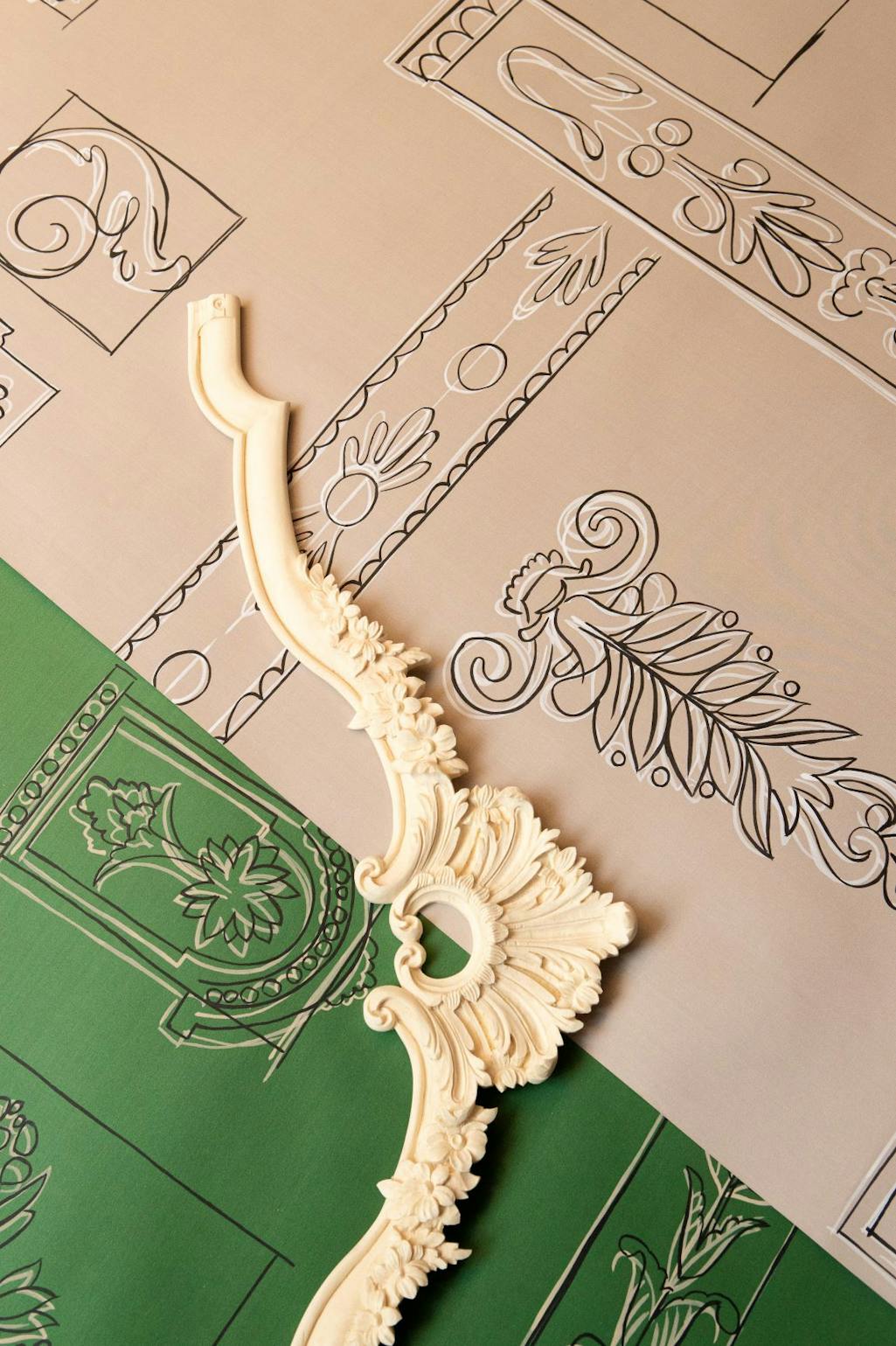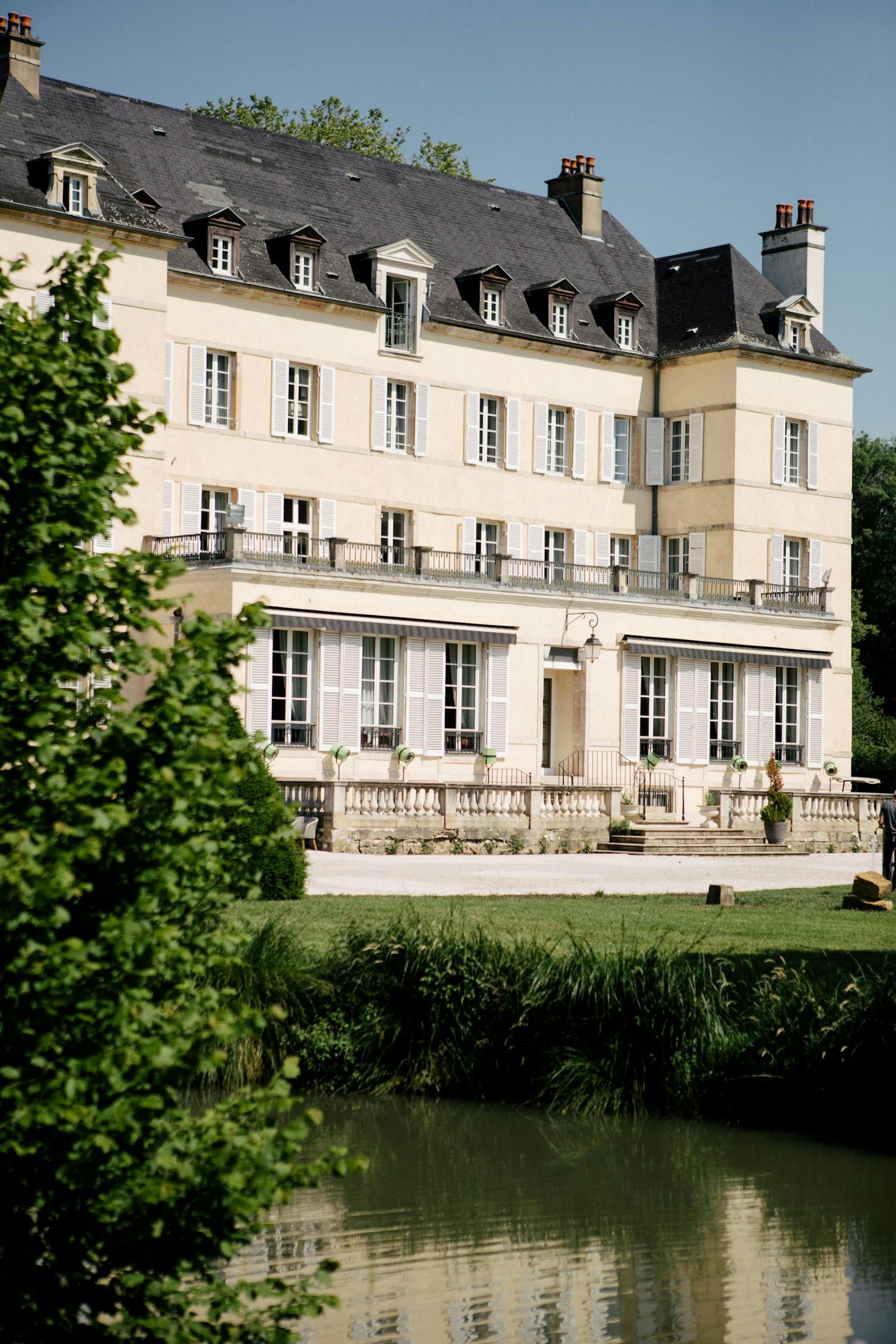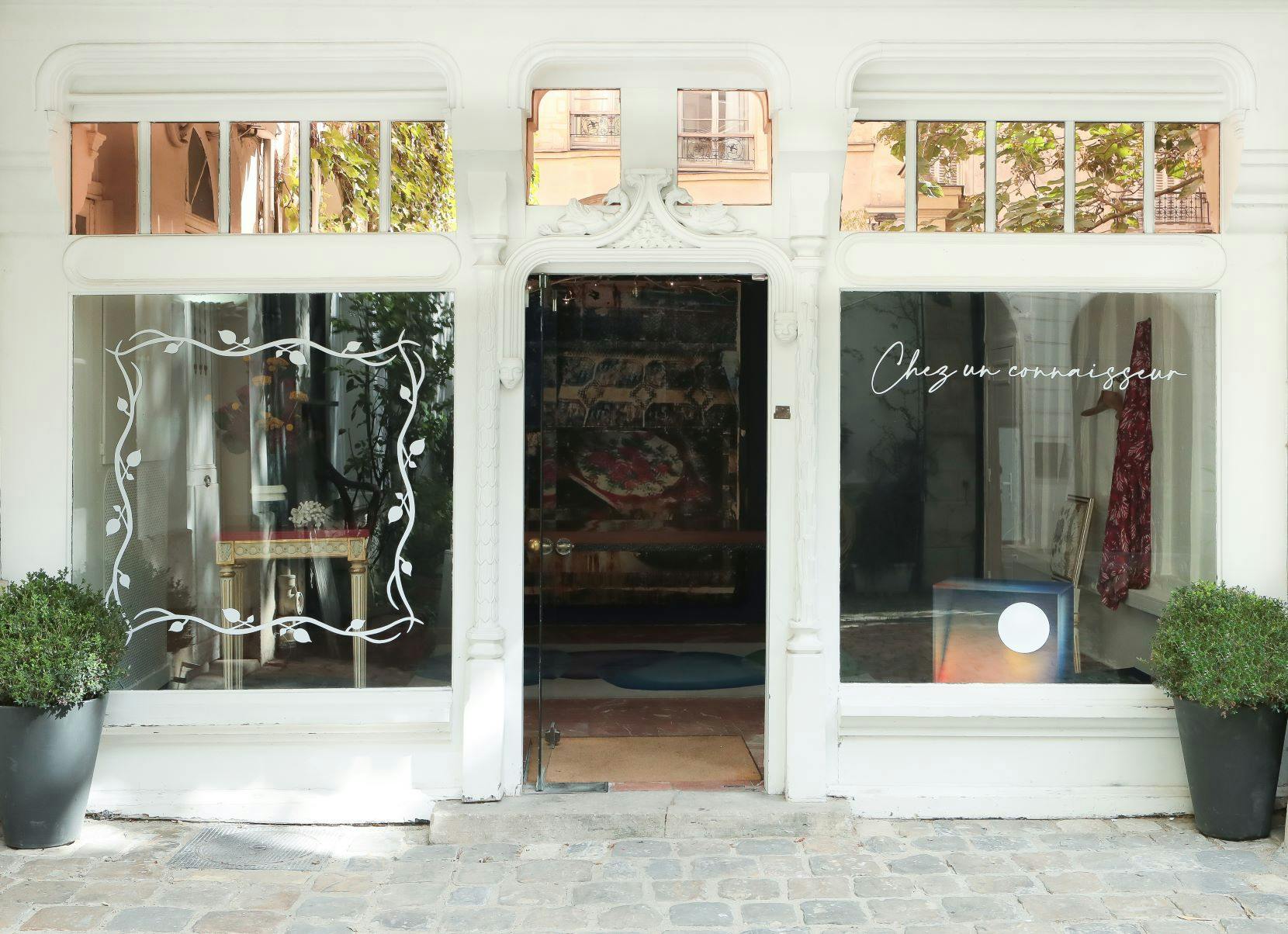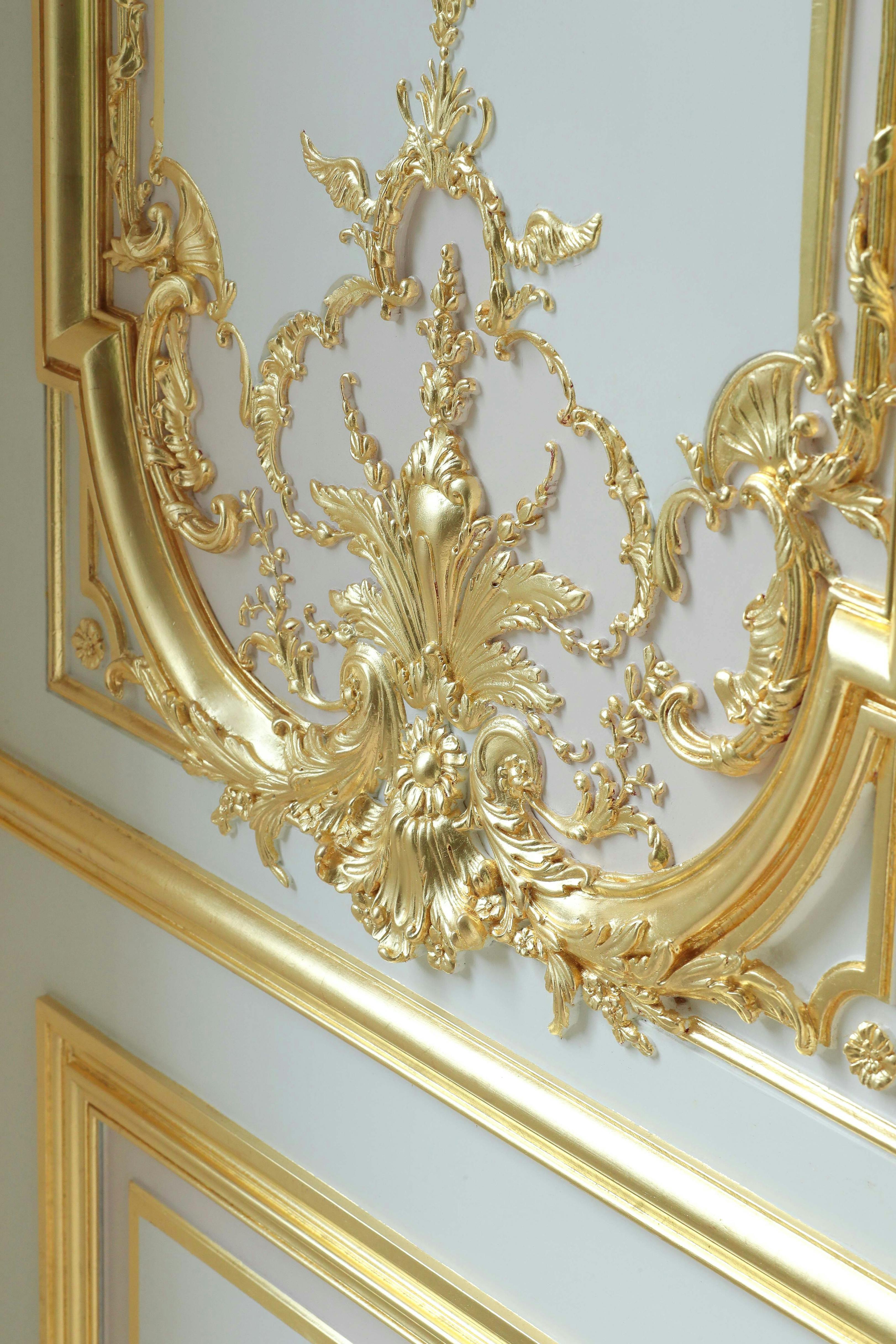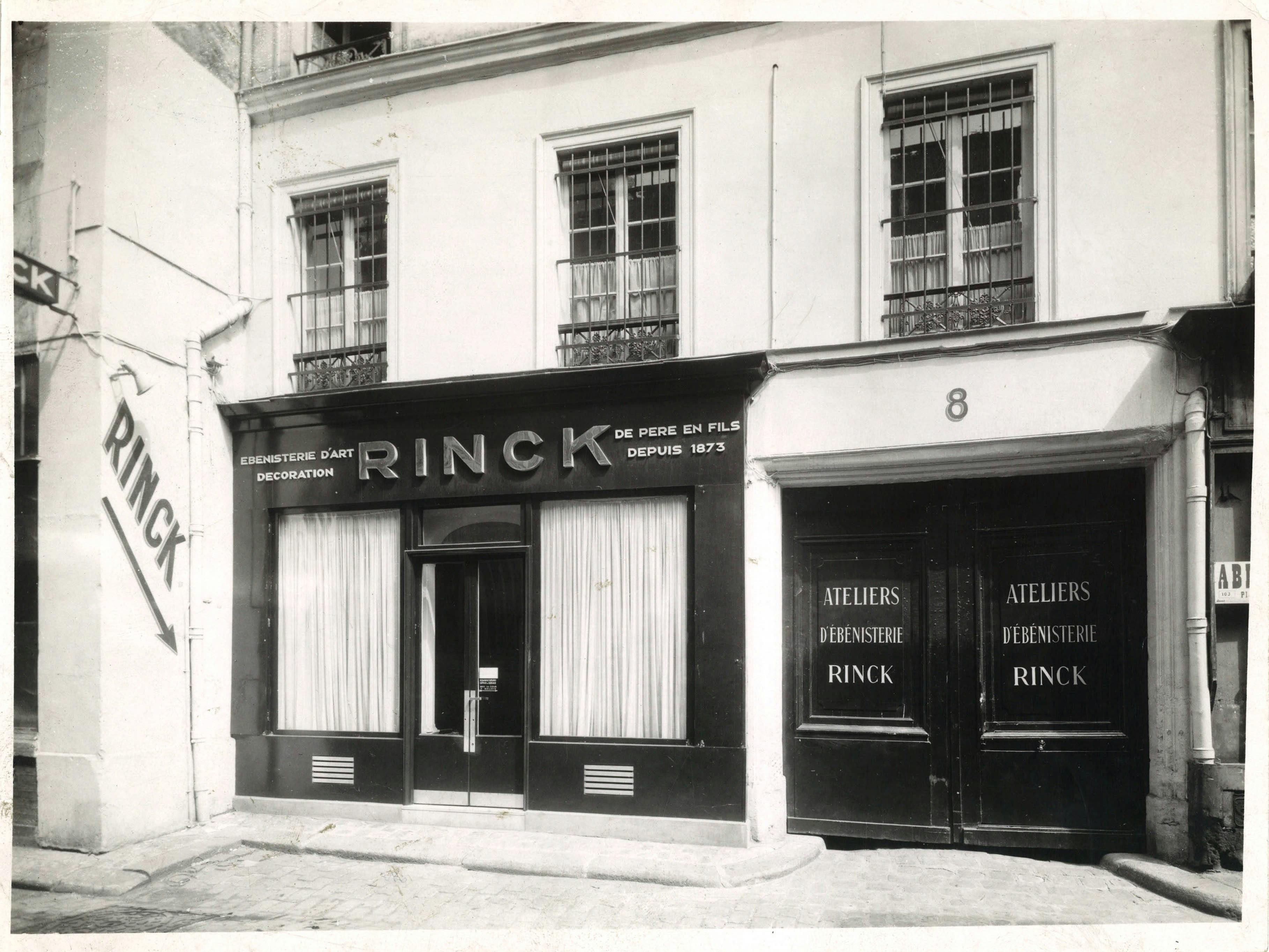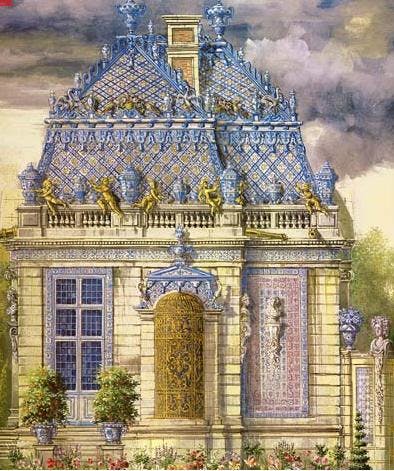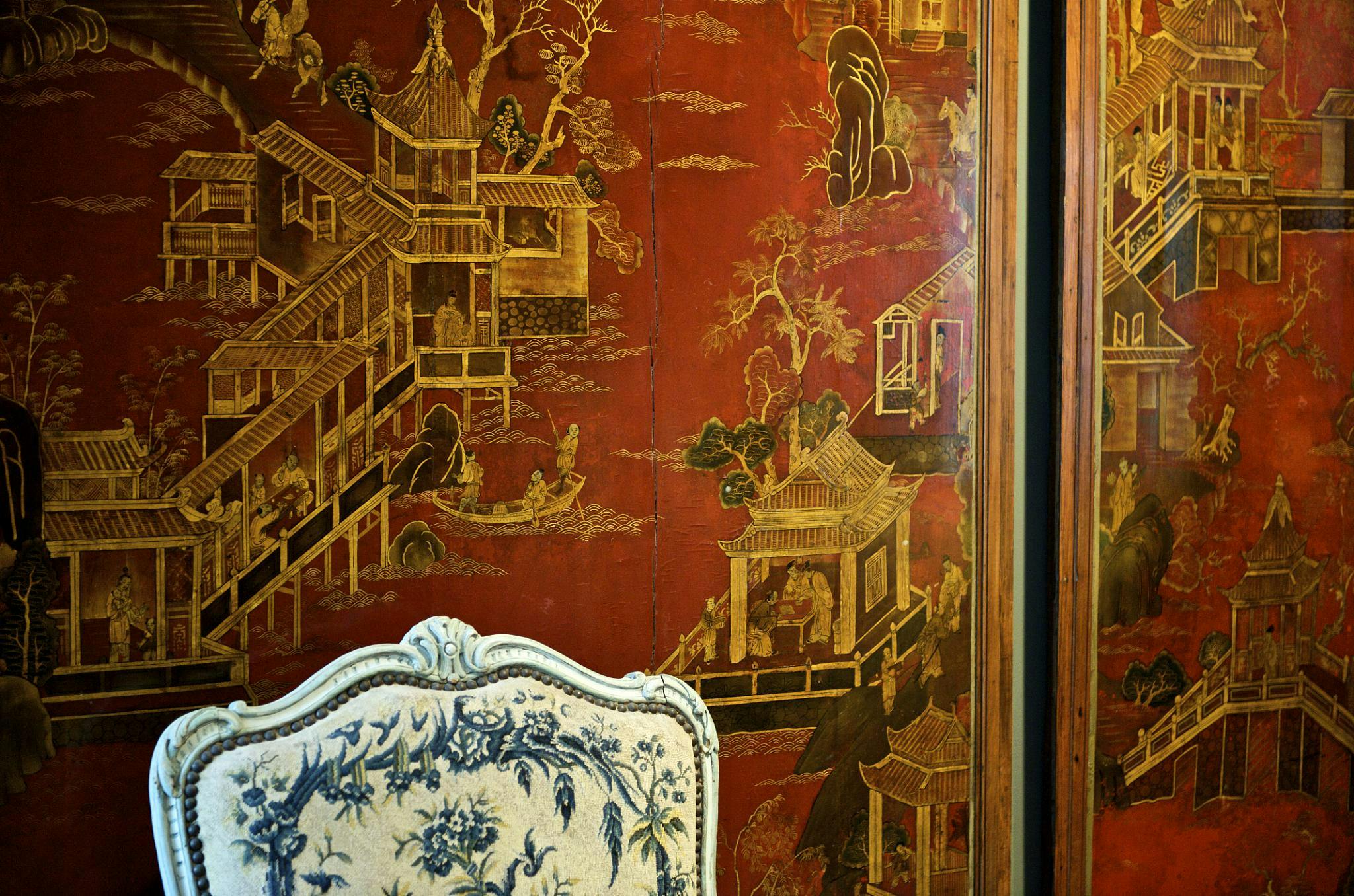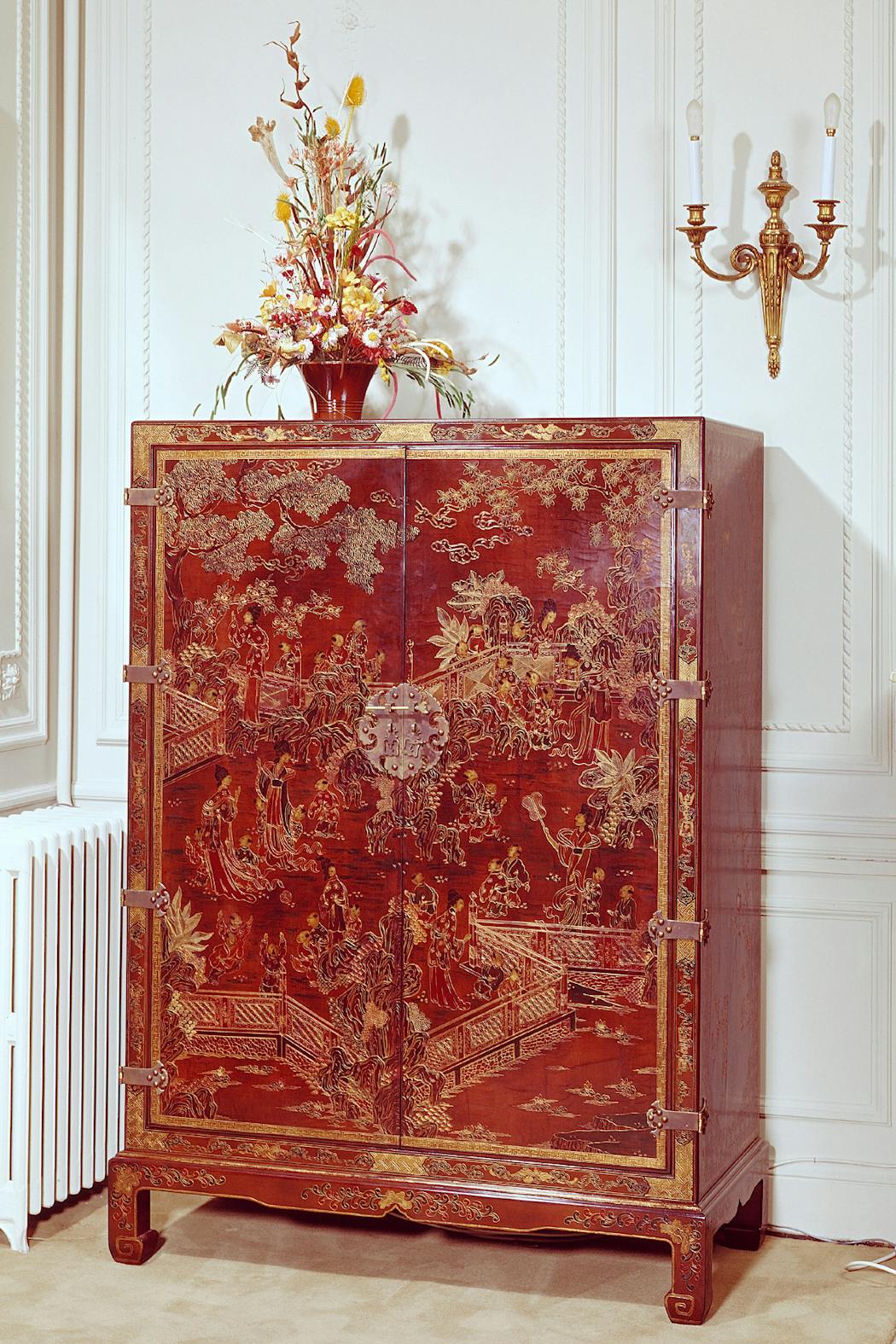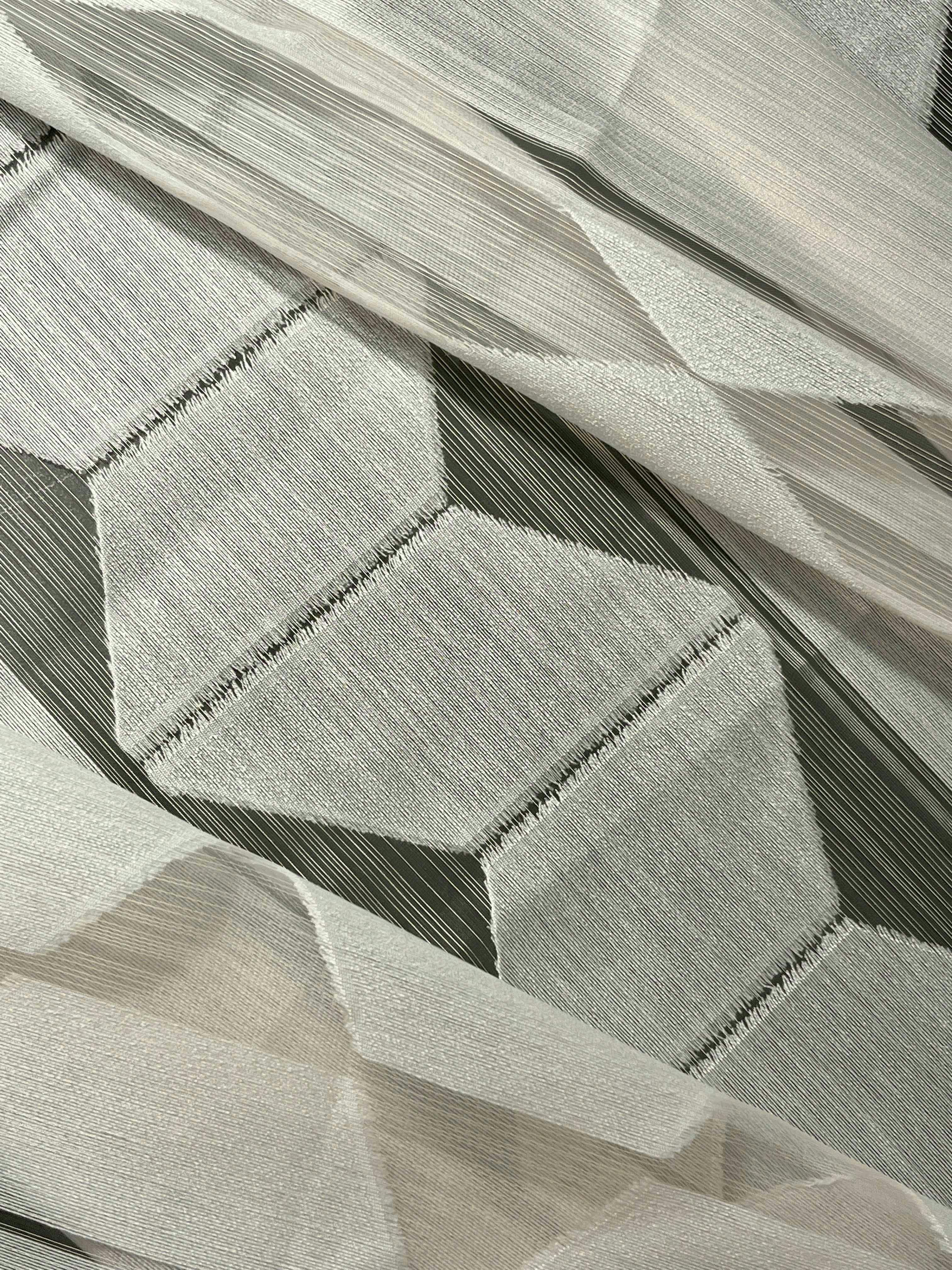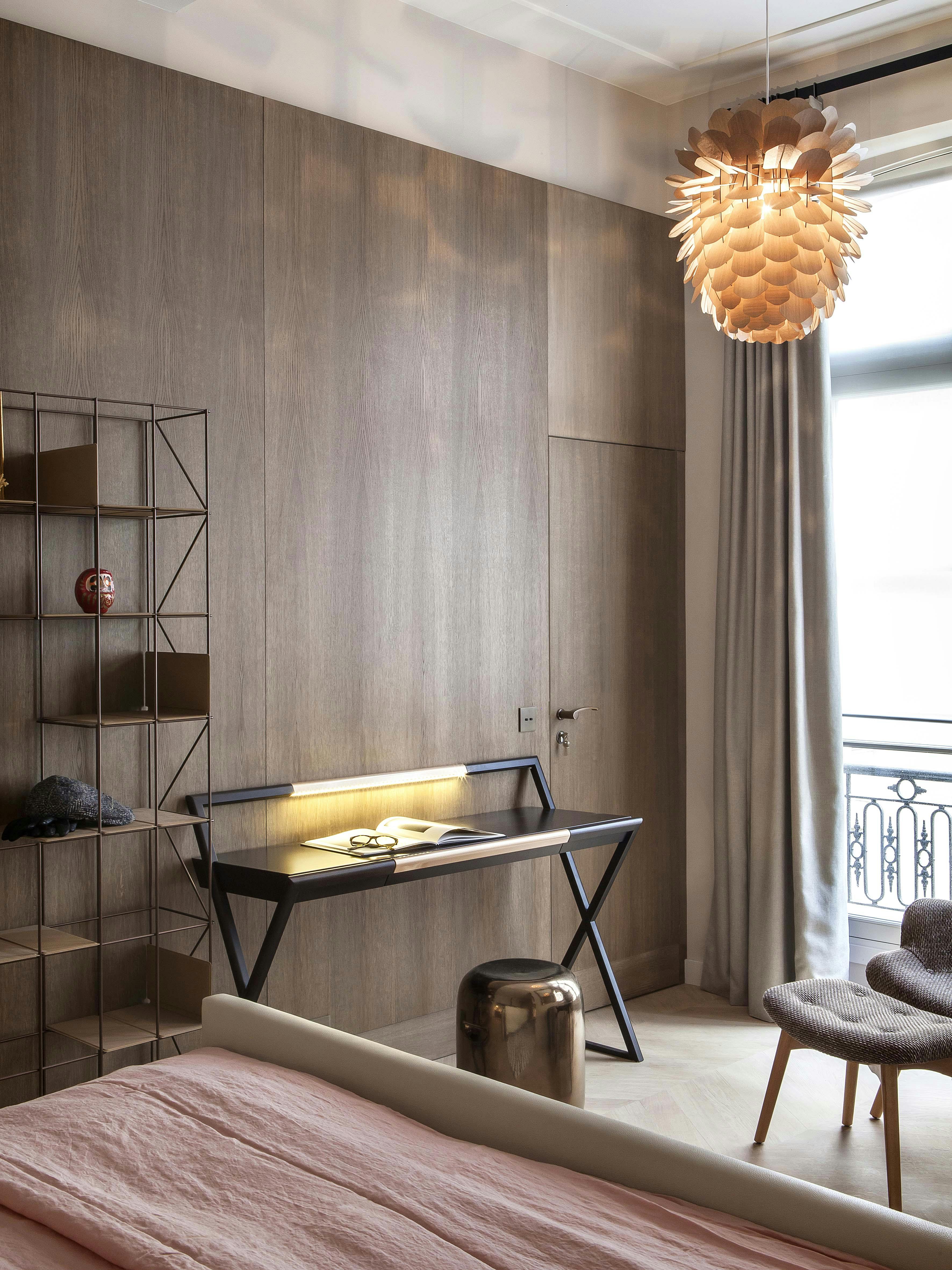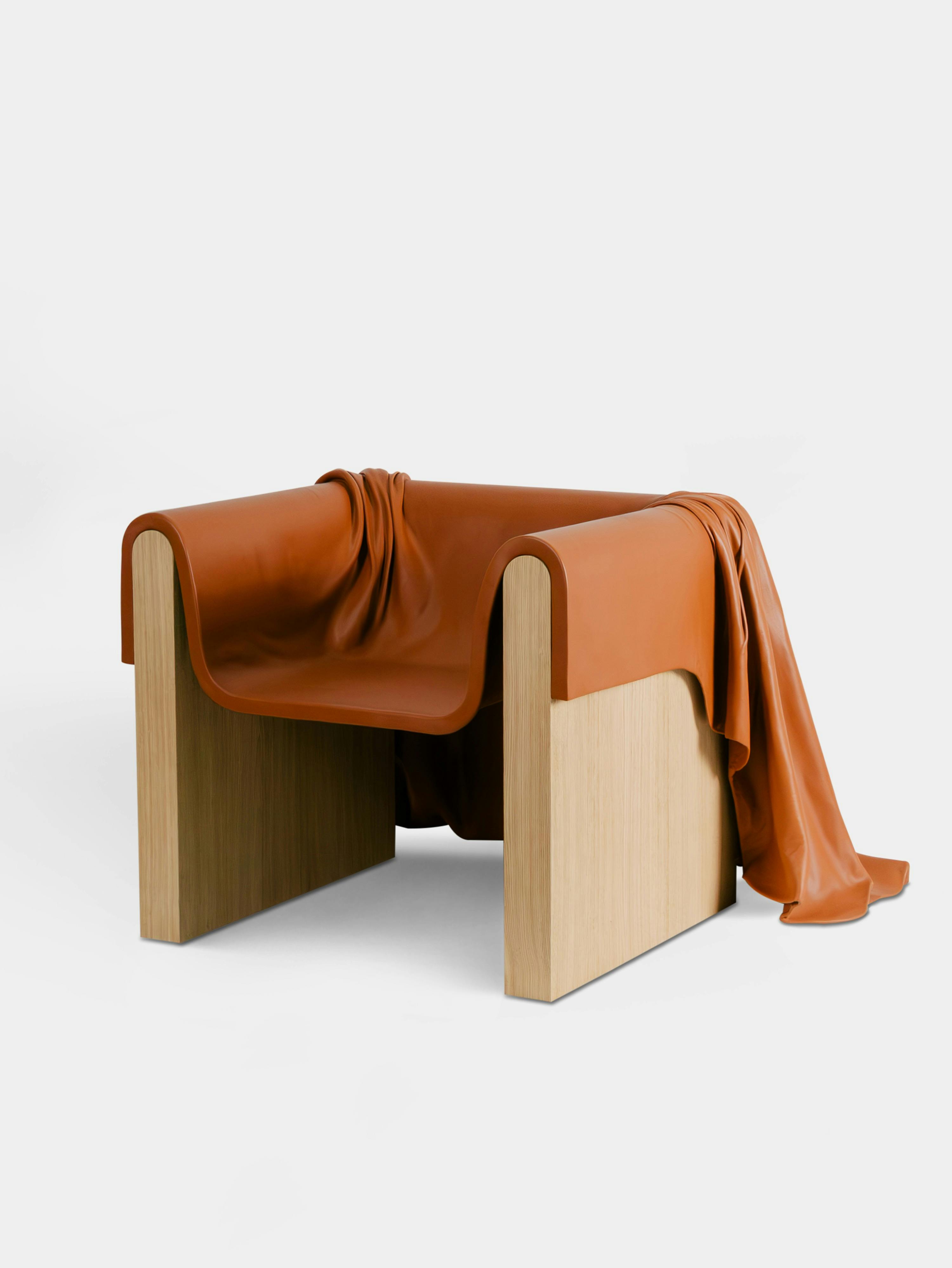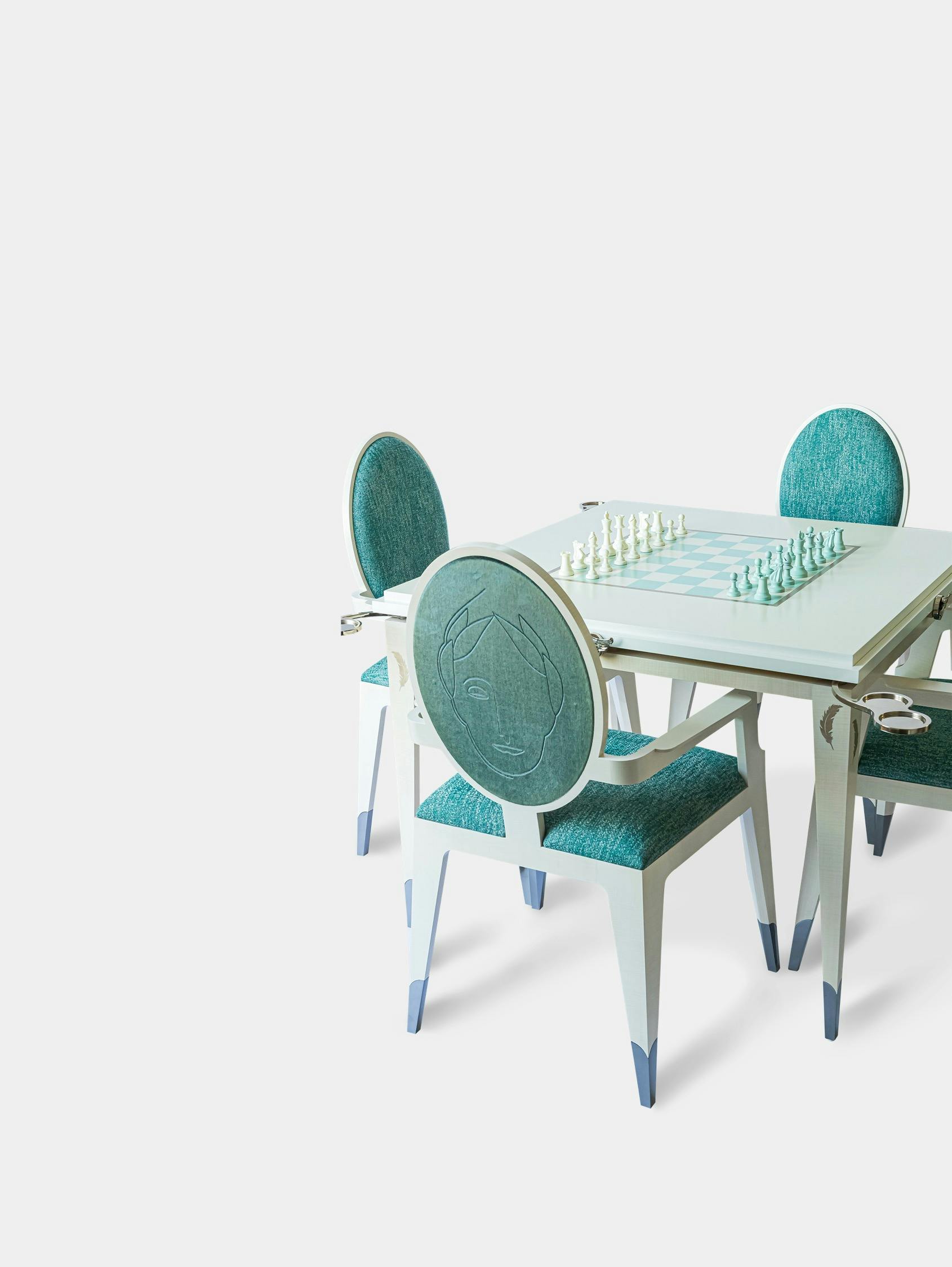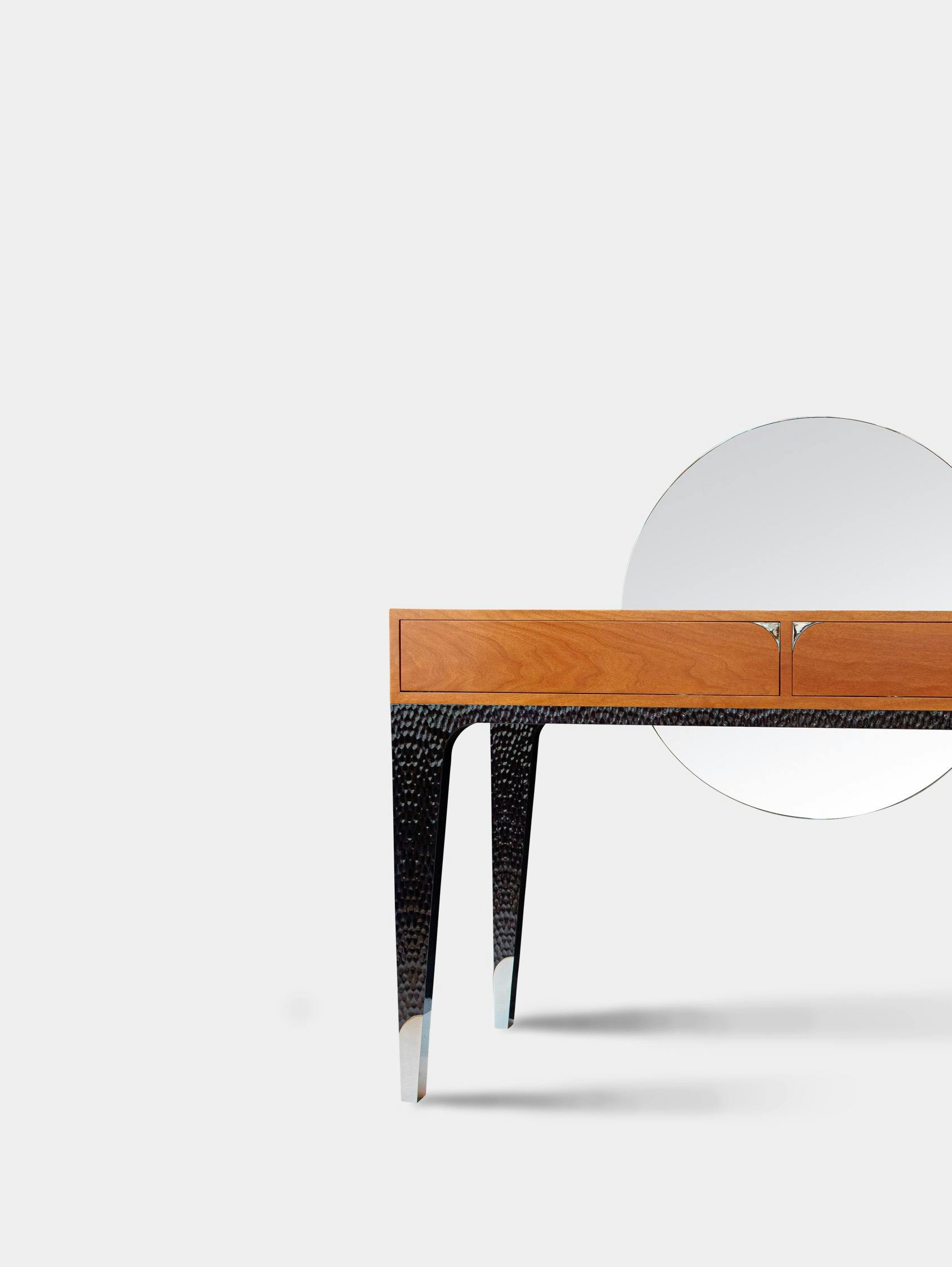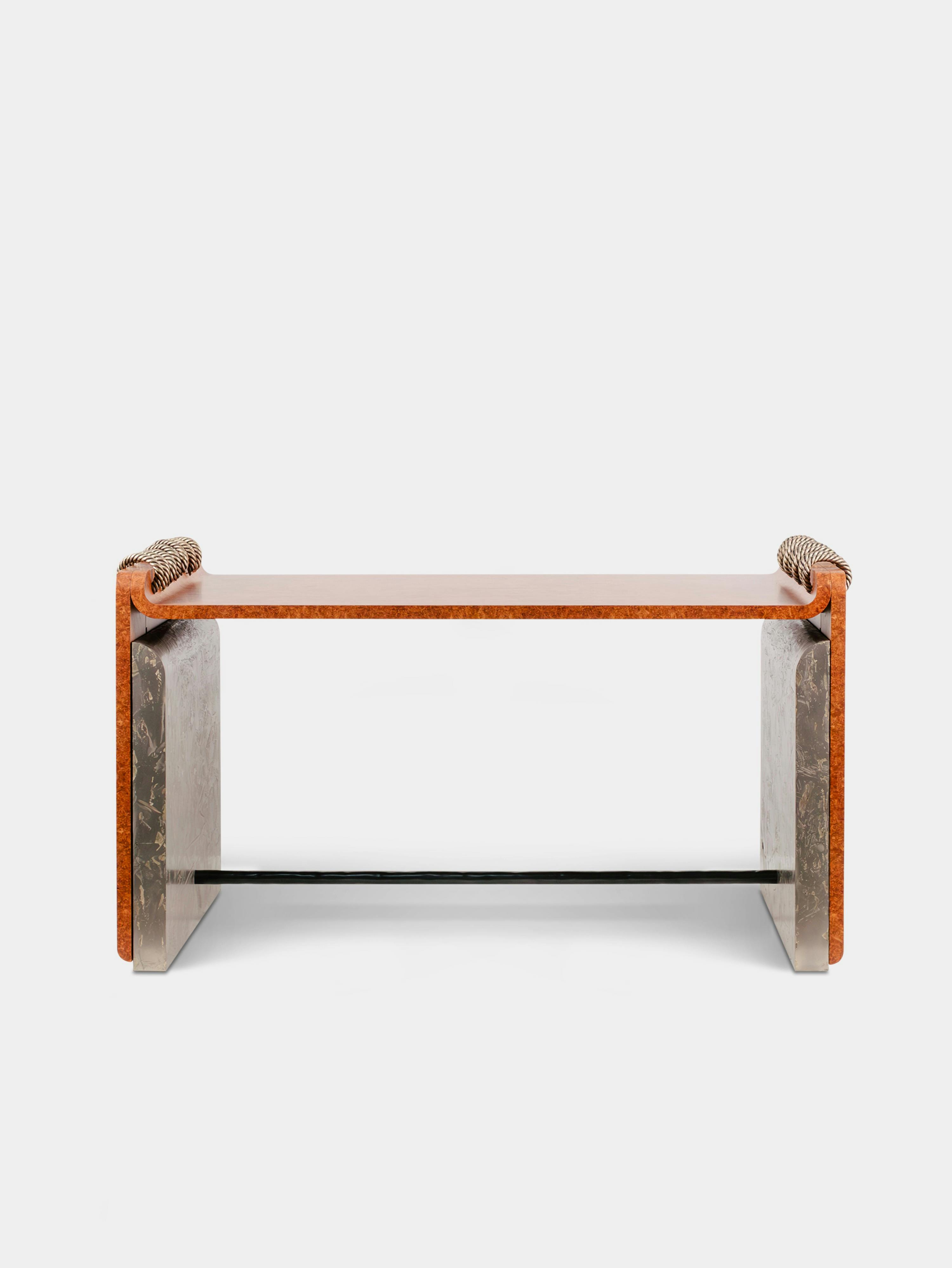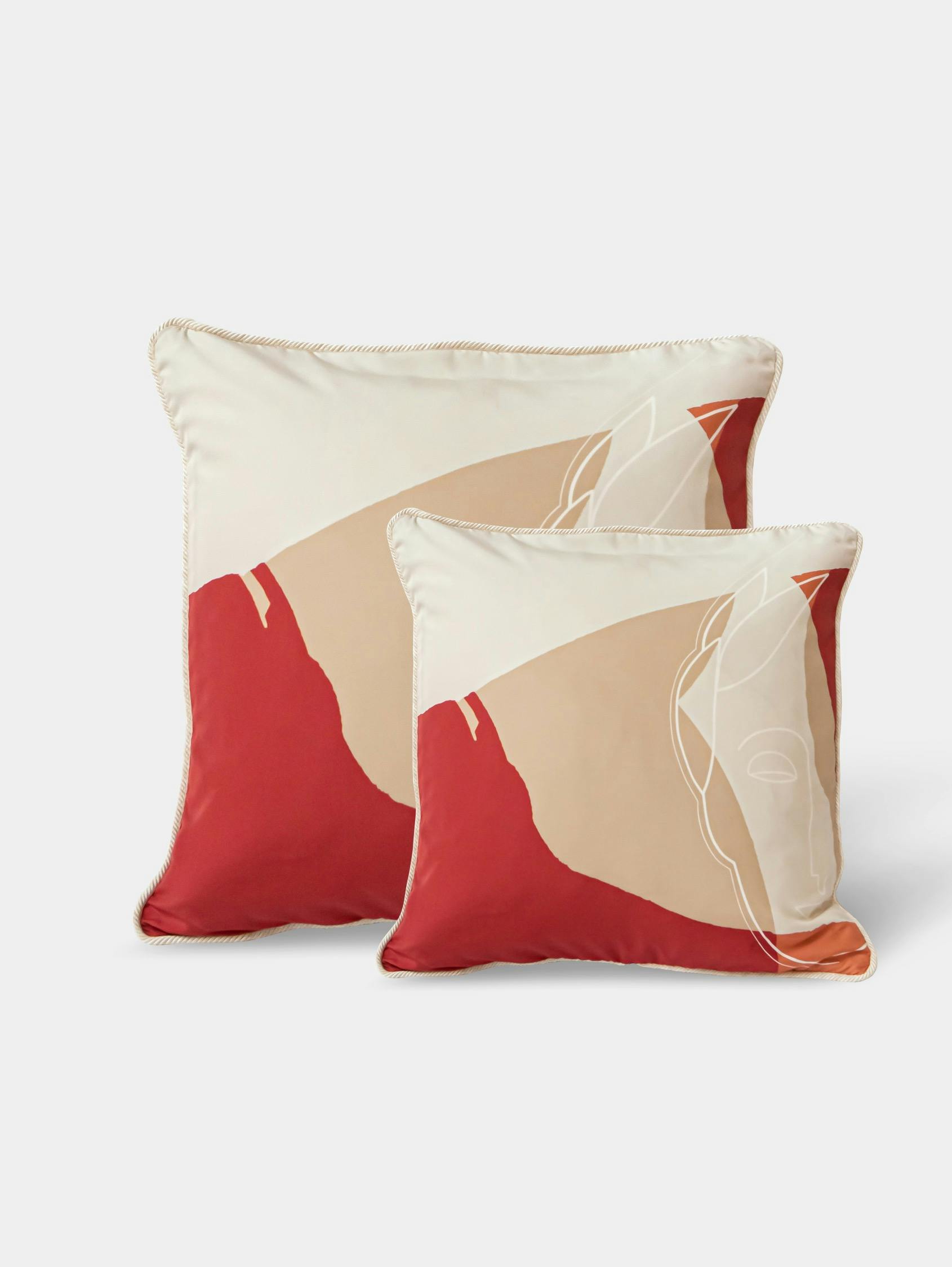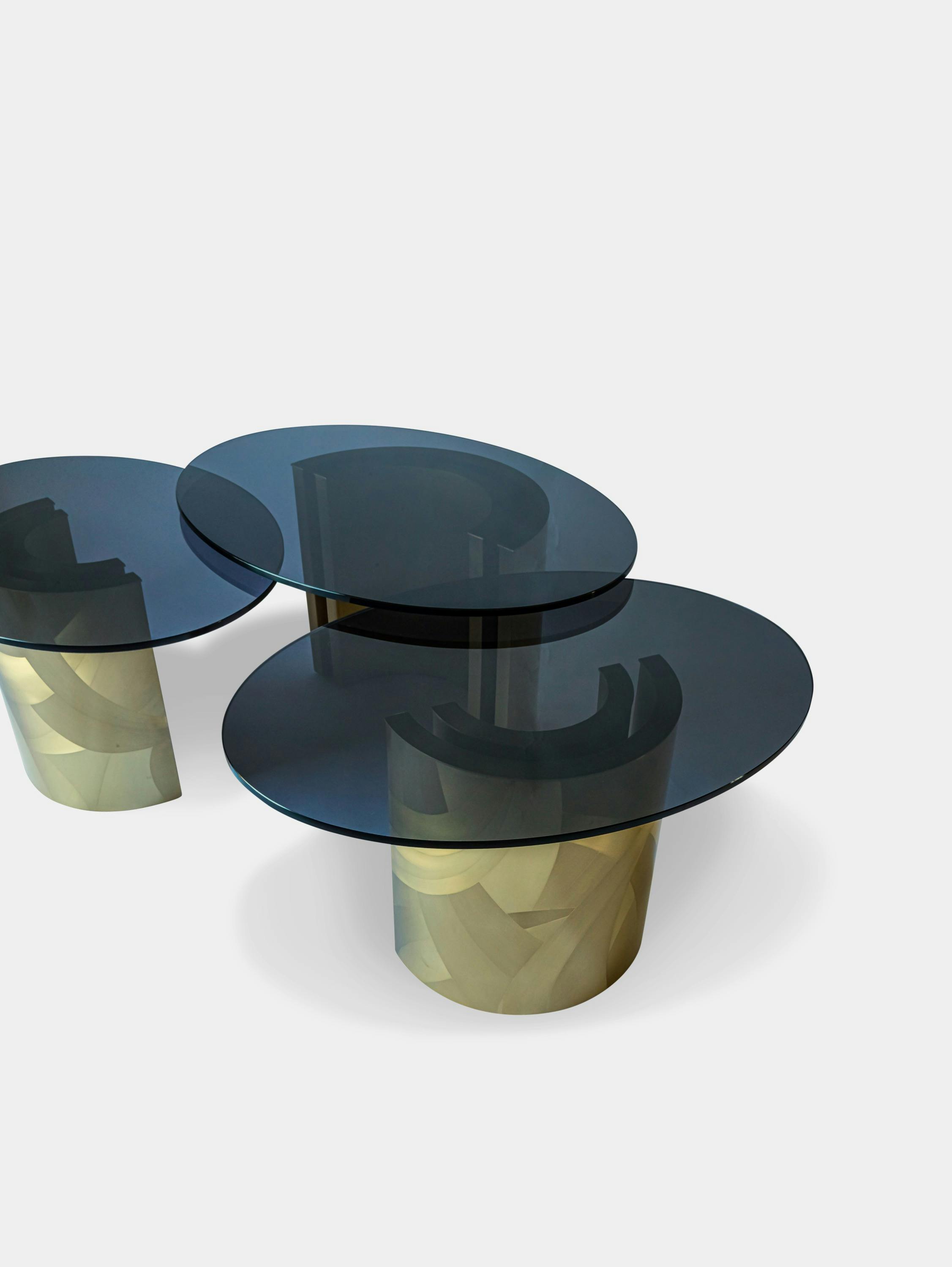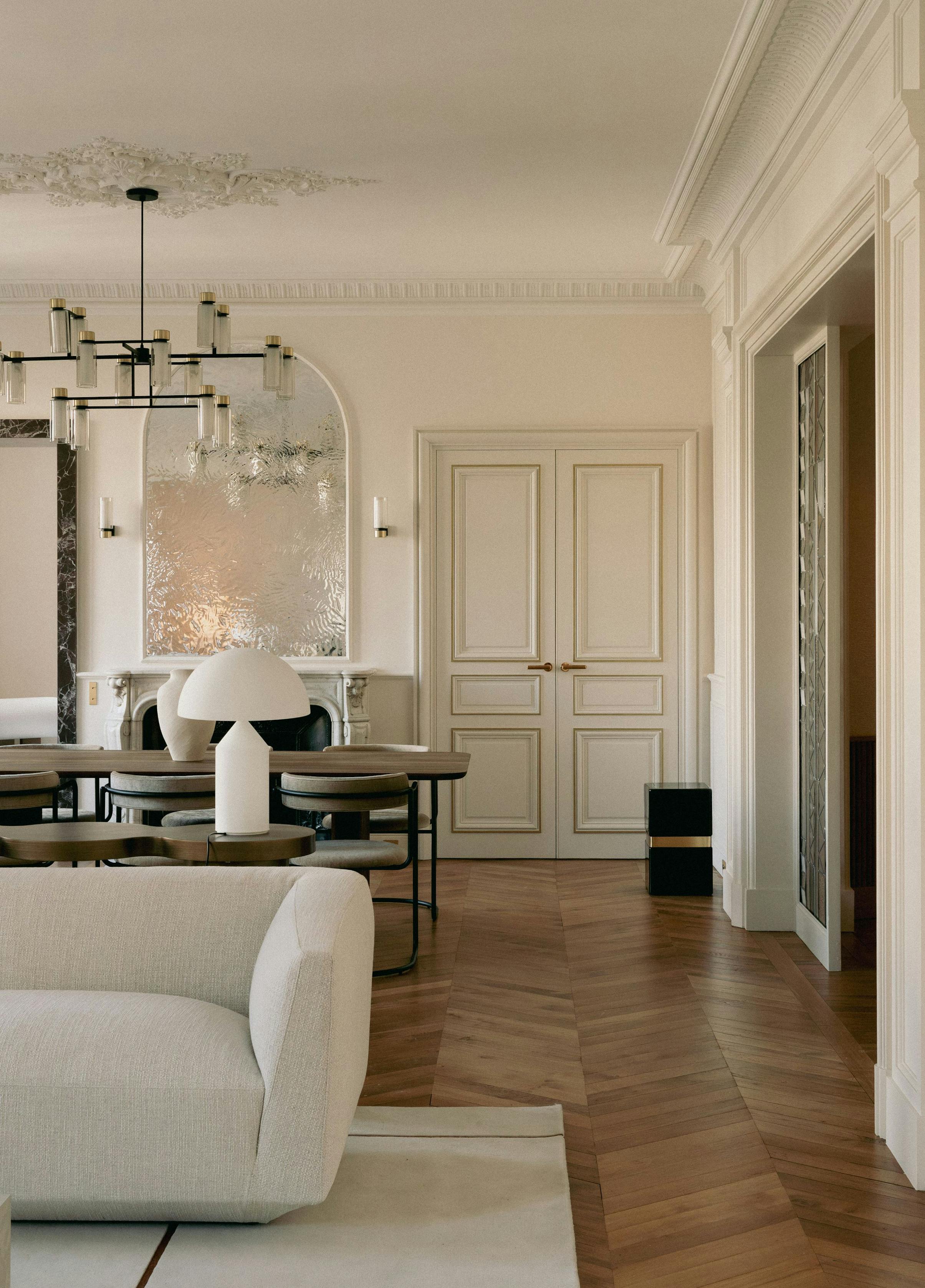
A Parisian interior reinterpreted
In Paris’s Golden Triangle, a 220 sqm Haussmannian apartment — complete with a service room — has regained its rhythm. The brief entrusted to Rinck was not to alter its envelope, but to rethink the very way it is lived in: reorganising functions, refining circulation, and restoring coherence to its uses, without erasing the heritage that forms its fabric.
Inside the Interior Design Studio
Rinck’s interior architecture team takes you behind the scenes of their craft. Discover how each project is approached with creativity and dedication, reflecting our commitment to bringing our clients’ visions to life.
The Art of Stained Glass
Nolwenn de Kergommeaux, an exceptional master glassmaker, carries forward an ancestral savoir-faire in her Parisian atelier, Au Passeur de Lumière. Together with her team, she collaborates with Rinck, creating bespoke stained-glass pieces designed specifically for some of our interior architecture projects. Learn more about her craft in this interview.
Rinck x The Guild of Saint Luke, a rediscovered Heritage
On one side, Valentin Goux, President and Artistic Director of Rinck; on the other, John Whelan, founder of the London studio The Guild of Saint Luke, renowned for his subtle reinterpretations of decorative heritage.
From their encounter emerged a creative dialogue, a conversation between Paris and London, past and present, wood and metal.
Shaping the Dream of the New Orient Express
A hundred years ago, the Art Deco movement marked the height of a distinctly French art of living. Defined by pure lines and sumptuous materials, it sealed an unprecedented dialogue between architecture, decoration, and craftsmanship.
Today, that spirit is reborn on the rails, through a project both technical and poetic: the New Orient Express, imagined by Maxime d’Angeac for the Accor group. And to bring this dream to life, the designer turned to Rinck as the project's conductor, entrusting the creation of the bar and restaurant cars to the Maison’s experts.
Now on display in Paris through the exhibition “1925–2025: One Hundred Years of Art Deco” at the Musée des Arts Décoratifs.
Paris Design Week 2025: September 4–13
Galerie Rinck transforms to celebrate the legacy of Art Deco. On Rue de Beaune, time seems to stand still, inviting visitors to rediscover the spirit of the 1930s — a time when ensembliers décorateurs shaped complete worlds, from furniture to textiles, lighting to carpets.
"What's New What's Next": September 18 in NY
Rinck unveils the transformation of its space at the New York Design Center for “What’s New, What’s Next.” Designed as a living gallery, this showroom embodies the encounter between furniture, art, and exceptional craftsmanship, and exclusively showcases Le Jour, a sculpture created in collaboration with French artist Simon Buret.
Monaco Yacht Show: September 24–27
Rinck unveils Nereus, a furniture capsule inspired by the marine world, at the Monaco Yacht Show. Flowing lines, luminous textures, and rare craftsmanship come together to create exceptional pieces, designed to stand the test of time.
When Embroidery Elevates Material
In the shadows of the Parisian workshops, threads are stretched, intertwined, and made to capture the light. Since 1873, Maison Hurel has carried on the delicate art of haute couture embroidery. With Rinck, it marks a meeting where ancestral gestures converse with new inspirations — a story that Martin Hurel shares in this interview.
Call for graphic designers
Rinck is looking for a graphic designer to revamp its print communication materials & enrich its visual identity.
La Nuit: A Work by Simon Buret for Rinck
As part of its Opus Memoria collection, Rinck unveils a new collaboration with artist Simon Buret: La Nuit, a monumental, sculptural, poetic bronze statue.
Dialogue at the Crossroads of Art
In this joint interview, the artists Simon Buret and Valentin Goux, President and Artistic Director of Rinck, reflect on their first encounter, the inspirations that shaped their collaboration, and the artistic and technical choices that led to the creation of La Nuit — a sculptural work emblematic of the Opus Memoria collection. A conversation in two voices, where poetry meets craftsmanship, echoing the spirit of this singular piece.
Behind the Bronze: The Birth of La Nuit
Bringing La Nuit to life took months of dialogue—between sculpture, material, and flame. This film follows the creation of the piece from clay to bronze, unveiling the intricate, spectacular world of fine art foundry work.
The Story of an Extraordinary Work
With Simon Buret’s poetic, sculptural work entitled La Nuit, Rinck brings another singular creation into the fold of its Opus Memoria collection. This monumental bronze sculpture aligns with an artistic approach specific to this collection: imagining the fictional legacy of a multidisciplinary creator expressed through exceptional pieces in which arts, materials, and narratives intersect.
Opus Memoria Exhibition in New York
Discover Rinck’s latest collectible pieces — on view from May 15 to July 25 at the New York Design Center, NYC.
Rinck at Art Paris
In April 2025, Rinck returns to the Grand Palais for the contemporary art fair, Art Paris. For this 27th edition, Art Paris introduces several new features, including a section dedicated to contemporary design in limited editions. Valentin Goux, President and Artistic Director of Rinck, shares insights into the exceptional pieces showcased on the balconies of the Grand Palais. He also reflects on the century-old history of Rinck and the Grand Palais, an iconic venue where the house has always displayed its creations.
French Design Art Edition: Meeting with the Exhibition Curators
During Art Paris, we had the opportunity to sit down with Sandy Saad and Jean-Paul Bath. As co-directors of the Le French Design association, they are also the curators behind the exhibition at the Grand Palais and its brand-new section, French Design Art Edition. They shared their vision for this exciting new field.
TR-73: A Design Icon Reimagined
Rinck marks its return to the Grand Palais during Art Paris with an iconic piece reimagined: the TR73. First presented in 1973 at the Salon National des Beaux-Arts, this chair has been given a fresh update. Staying true to its avant-garde design, it is now reimagined with an environmentally conscious twist. Gone is the original Altuglas, replaced by recycled plexiglass – an evolution that reflects Rinck's commitment to eco-responsible design.
The Rinck x Zuretti Outdoor Collection: Nature meets Craftsmanship
This collection, the consequence of a dialogue between savoir-faire and innovation, combines the refinement of top-quality materials with a visionary design that will elegantly adapt to contemporary spaces. Every detail was studied with care and concern to produce sustainable furniture that is as functional as it is beautiful.
Rinck: Tradition meets Innovation
For nearly two centuries, since its founding in 1841, Rinck has been the embodiment of artisanal excellence, flawlessly dovetailing time-honored tradition and cutting-edge invention. The company’s history is deeply rooted in exceptional craftsmanship, while ever keeping pace with changes in tastes, technologies, and the demands of the day.
From Concept to Craft
Bertille Goux, designer at Rinck, discusses the research work on materials and finishes, revealing the behind-the-scenes of creation. Between aesthetic ambitions and technical constraints, she shares her ongoing dialogue with the workshops' artisans, their expertise, and their ability to bring our vision to life. An exploration of the subtle balance between innovation and craftsmanship, where each finish becomes a signature.
Opus Memoria
Valentin Goux, President and Artistic Director of Rinck, takes us on a journey to discover the Opus Memoria collection.
Poetic Accumulation and Illusions
In 2025, Rinck unveils its new furniture collection, Opus Memoria – an artistic exploration inspired by the vision of an illusory demiurge creator whose entire existence was devoted to accumulating works. Each piece embodies the imagination of an ingenious and multifacted artist working in the realms of music, painting, and sculpture, leaving behind a wake of unique artistic “totems.”
The Art of Ceramics
Discover the work of the ceramist Pauline Krähenbühl, who contributed to the creation of the Opus Memoria side table.
Timeless elegance and Parisian Art de Vivre
Located in the heart of Paris, in the Faubourg Saint-Honoré district, this apartment, nestled within a Haussmannian building, embodies the timeless elegance of Parisian architecture.
The renovation project involved a complete reconfiguration of the interior space, seamlessly blending the updated elements of a classic apartment with the selection and bespoke creation of contemporary furnishings.
In the Faubourg of Luxury: where art meets power
Beyond the fortifications of medieval Paris, one of the world’s most elegant urban districts was about to emerge from a swampy tract of land. The history of the Faubourg Saint-Honoré is, in and of itself, a synopsis of the birth and establishment of a lifestyle at once refined and rational, a stylish art de vivre to which greater Paris adheres to this day.
The Art of stained glass
Nolwenn de Kergommeaux, an exceptional master glassmaker, preserves an ancestral craft in her workshop, Au Passeur de Lumière.
A Common Visual Language: From Sketch to Technical Drawing
In the world of artistic creation, drawing holds a central place. It is the starting point of every work, a visual language that transcends materials to bring imagination to life. In this video series, explore how drawing, in all its forms, guides the transformation of spaces and objects.
A History of Ornament
Ornament was a divisive subject in the 20th century, rejected by the modern movement as a sign of decadence, while considered by traditionalists to be a lingua franca uniting the realms of architecture and decoration. This debate has since been pushed aside by architectural post-modernism and contemporary – and deliberately eclectic – interior decoration. Let us look back upon a notion that is as old as humanity itself.
The Chair: The Embodiment of an Era, A Diary of Design
Of all the furniture invented by humankind, the chair is undoubtedly the piece that best reflects the era it inhabits. In the 18th century, it was a symbol of power in the form of aristocratic armchairs that could be taken on one’s travels or moved from room to room. In the 19th century, it was bourgeois, mushrooming in family dining rooms, only to become an ever-changing designer object a century later. The chair has long kept pace with and reflected changing lifestyles, representing, in its appearance, the twists and turns of its time.
The Grand Hotels of Paris: Prestigious Commissions for Rinck
The finest hotels of Paris, the embodiment of French luxury since the 19th century, symbolize both contemporary sophistication and rare refinement. They have played host to the world’s most celebrated travelers. Rinck’s archives hold precious records of projects done for some of the greatest names in French hospitality.
Creativity, Harmony and Savoir-faire
How can one succinctly describe what makes a decoration and interior architecture agency unique? Is it a specific style? This is often the case, but the term falls short.
Inside the Interior Design Studio
Rinck’s interior architecture team takes you behind the scenes of their craft. Discover how each project is approached with creativity and dedication, reflecting our commitment to bringing our clients’ visions to life.
A Specialized Hospitality Department
In September 2024, Rinck is opening a new millwork and cabinetry design and engineering department based in Paris and Bourg-de-Péage, specializing in the interior-outfitting of hotel and restaurant projects.
Decoding the Key Phases of an Interior Design Project
If there’s one subject that’s often unclear to many new clients, it’s this: How does an interior architecture and design project actually unfold? Where does the interior architect’s responsibility end and where does the responsibility begin for the various companies working onsite to actually make the project a reality? What are the creative development phases?
Unveiling the Art of Veneers
Matthieu de Penfentenyo - Site Manager, Rinck Furniture Workshop - reveals the secrets of Art Deco veneers. Explore precious wood species and their manufacturing techniques.
The Art of Lacquer: Family Heritage and Modernity at Atelier Midavaine
Immerse yourself in the captivating universe of Atelier Midavaine with Anne Midavaine, who shares the fascinating history of this house founded in 1930. Inheriting an ancestral tradition of cellulose lacquer, the workshop embodies both the craftsmanship of yesteryear and contemporary innovation.
Reflecting on the 1925 Decorative Arts Exhibition
Leafing through the guide to the 1925 Exposition Internationale des Arts Décoratifs et Industriels Modernes – the International Exhibition of Modern Decorative and Industrial Arts – is a very pleasant journey indeed, one that takes you through space and time.
Crafting Elegance: Exploring Gouged Wood
Gouged wood, an ancient woodcarving technique, has left an indelible mark on the world of furniture, interior architecture, and millwork, particularly during the Art Deco period.
Exploring the Watercolor World of Morgane Guerry
Enter the world of illustrator and watercolorist Morgane Guerry, through her two collaborations with Rinck. From painting a ceiling to creating an original folding screen, Morgane reveals an artistic process where limits are often made to be pushed, questioned and finally transcended.
Rinck Finds a Home on the Rive Gauche
Galerie Rinck at 18 rue de Beaune in Paris displays the company’s contemporary creations and features a private reception lounge for clients.
A Seventies inspiration
To mark the opening of the new Galerie Rinck, our furniture-design teams have created some remarkable pieces made especially to furnish the private lounge area at the rear of the space
Meet Arnold d'Alger
The artist Arnold d'Alger, founder of the Bazar d'Alger, presents in a video of the ornamentation work he did for the mantelpiece in Galerie Rinck.
The Specialists: Rinck’s Essential Partners
The Galerie Rinck, a veritable showcase for our furniture designs, displays some of our finest savoir-faire, trades that are among the most emblematic in French decorative arts.
A video conversation with Sarah Magness
Architect and interior designer Sarah Magness talks about the creation of the Palm Beach Atelier.
Amboyna burl and verre églomisé
Amélie Chappedelaine, Project Manager at Rinck, tells us about the work carried out by our millwork workshop on the collaborative showroom the Palm Beach Atelier.
The History of the Desk - Part I
Armoires and cupboards, tables and chairs, sofas and beds : Of all the furniture handed down to us by history, the piece that is surely the most powerfully linked to the evolution of society is the desk. The reasons for this are clear when we recall this object’s primary purpose : writing.
The History of the Desk - Part II
In 2024, Rinck turned 183. Nearly two centuries of history that have seen an ever-increasing number of projects. It goes without saying that the company has designed and produced an incalculable number of desks during this time. Let’s look at just of few of them, those that are perhaps the most emblematic.
The Creative Process behind Amarante
Designed as a complete ensemble for a home office, watch the creation of the Amarante collection.
Passage collection
The 2023 Passage collection explore the ties between nature and mankind’s intervention therein. A house’s informal entrance, often accessed through a side or back door and traditionally known as the “mudroom” in English country houses and American homes, is the symbolic point of passage from outdoors to indoors, from vegetation to civilization. It seemed a space conducive to creative reflection and inspiration.
The Making of the Hébé Collection
Our 2021 collection of contemporary furniture, the Hébé Collection, was unveiled last January. Over the course of last year, a video team went behind the scenes at our workshops, filming the fascinating phases of the collection’s design and manufacturing.
Now, in sight and sound, you can witness this collaboration between our designers, interior architects, and craftspeople in an alliance of savoir-faire and creativity that is the very essence of Rinck.
A history of the smoking room
It was a requisite room in the mansions and elegant dwellings of yesteryear, now reminiscent of a bygone era of club chairs, smoking jackets, and sparkling social lives : the smoking room.
A detailed look at the Hébé collection
The Hébé collection, created by Rinck over the course of 2020, was unveiled in January 2021. It is a feminine vision of the smoking room, rife with symbolism of the goddess of eternal youth, cupbearer to the gods and goddesses. Could it suggest a longing to make merry, to escape these morose times in which we find ourselves ? Indeed.
Fromental by Rinck, The Classicist Sketchbook
Rinck introduces a hand-painted silk wallcovering: Fromental by Rinck “The Classicist Sketchbook", with the prestigious hand-painted and hand-embroidered wallcoverings company Fromental. Watch Valentin Goux and Lizzie Deshays disccuss their first collaboration.
A Castle Metamorphosis
The Rinck interior architecture and design agency took on a captivating, challenging project: transforming a care-worn Burgundian hotel, the Château de Saulon, into a top-quality boutique hotel. And that challenge was met, as the property – now completely renovated inside and out – was awarded a fourth Michelin star as soon as it reopened.
At home with a connoisseur
In March 2020, while planning our September event, the Rinck team was overcome by a great yearning for insouciance, a desire for a life that was again carefree. Locked down like the rest of the world, we imagined getting together, sharing a drink, seeing exhibits, going out on the town, dancing. Rather like reminiscing about a simpler – albeit idealized – world of the late Seventies while standing in the midst of the unprecedented challenges of 2020. So our teams dreamed up a colorful interior, that of an enthusiastic collector, a man who would have invited us to have a drink at his place – after coming out of the legendary Le Palace nightclub – to watch the sun come up over Paris.
La boiserie by Rinck
For more than two years, while our interior architecture studio has been working on a Louis XV interior-design project, we have been documenting the creative process. These slices of Rinck life are precious treasures for our archives, tracing the birth of a boiserie de style, from the first sketches to the scale drawings, from the sculpting to the gilding. This information serves as testament to our method as applied to neoclassical interior architecture – one of Rinck’s specialties since the late 19th century – as we design interior décors that satisfy our clients’ express wishes and precise tastes.
Where have all the ensembliers décorateurs gone ?
If you follow us on any social network, or if you have already read any coverage of Rinck, or if you had the opportunity to read the special issue ofConnaissance des Artsmagazine that featured our company, you are sure to have noticed at least one thing: Rinck calls itself an “Ensemblier Décorateur.”
The history of chinoiseries in France - Part I
In 1368, while the Hundred Years’ War was still raging in France, five thousand miles away, China’s new Hongwu Emperor Zhu Yuanzhang had ousted the Mongols from power and established the Ming dynasty. Galvanized by the end of foreign dynastic domination, the Middle Empire closed its borders to the rest of the world, with very few exceptions. Seventy years earlier, in 1298, the story of a Venetian merchant in the court of Kublai Khan had sparked tremendous interest in Europe.
The history of chinoiseries en France - Part II
In the mid-18th century, after several decades of the ornamental decadence of the rocaille style, a great many in the aristocracy andgrande bourgeoisie(upper class or gentry) sought greater simplicity in their décors. The Louis XVI style was poised to appear, two decades before the reign of the same name, heralded by the Transition style, which, as the name suggests, marked the shift from one to the other.
The History of chinoiseries in France - Part III
At the dawn of the French Revolution, the chinoiseries décor trend, already quite battered by the neoclassicism of the Louis XVI style, was on the verge of vanishing completely with the last glimmers of lavish 18th-century pomp. Chinese-style ornamentation was the hallmark of a bygone era, a period of splendor and nonchalance come to be seen as decadent, with chinoiseries hereafter considered vulgar, ostentatious, and passé. Fashions now called for an imitation of Greek and Roman antiquity, viewed as the epitome of republican virtue. The Directoire style advocated simplicity and sobriety.
Rinck & Thevenon
The inspiration for the Rinck x Thevenon collection, imagined by the Rinck design studio, was the amalgamation of a number of the company's archives.
From the cubist wallpaper unearthed in a 1930s magazine to the panel in églomisé glass that Rinck presented at the 1939 New York World Fair’s to the marquetry friezes found on Rinck-crafted desks. A common thread wove it-self around and through these ins-pirations: a determination to make nature a vital unifying theme.
Two visions of the Study
Shaped by both history and work organization, our conceptions of the office are constantly evolving. Hortense Leluc, decoration and design journalist, and Anne Bony, design historian, invite us into their respective studies and share their perspectives on these environments.
